Category: Parliament
Role of Parliamentary Committees in Indian Democracy
15, Apr 2023
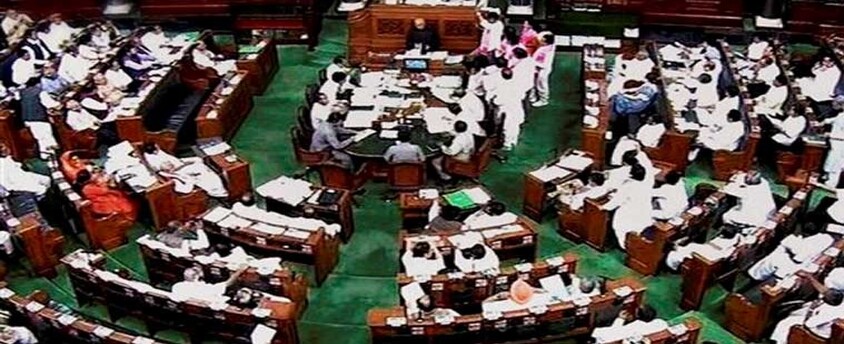
Why in News?
- Parliamentary committees are constituted to delve deeper into matters of public concern and develop expert opinions.
Genesis & Types of Parliamentary Committee:
- Origin: As is the case with several other practices of Indian parliamentary democracy, the institution of Parliamentary Committees also has its origins in the British Parliament
- In independent India, the first Public Accounts Committee was constituted in April 1950.
- Constitutional Provisions: Parliamentary committees draw their authority from Article 105 (on privileges of Parliament members) and Article 118 (on Parliament’s authority to make rules for regulating its procedure and conduct of business).
- Types: Most committees are ‘standing’ as their existence is uninterrupted and usually reconstituted on an annual basis; some are ‘select’ committees formed for a specific purpose, for instance, to deliberate on a particular bill.
- In 1993, 17 Departmentally-related Standing Committees (DRSCs), later increased to 24, were constituted in the Parliament.
- These committees drew members from both Houses roughly in proportion to the strength of the political parties in the Houses.
- Allocation of Business: The chair uses her discretion to refer a matter to a parliamentary committee but this is usually done in consultation with leaders of parties in the House.
- The practice of regularly referring bills to committees began in 1989 after government departments started forming their own standing committees.
- Prior to that, select committees or joint committees of the houses were only set up to scrutinise in detail some very important bills.
- Some Important Parliamentary Committees in Finances: Financial control is a critical tool for Parliament’s authority over the executive; hence finance committees are considered to be particularly powerful.
- The three financial committees are the Public Accounts Committee, the Estimates Committee and the Committee on Public Undertakings.
Significance of Parliamentary Committee System:
- Inter-Ministerial Coordination: They are envisaged to be the face of Parliament in a set of inter- related departments and ministries.
- They are assigned the task of looking into the demands for grants of the ministries/departments concerned, to examine Bills pertaining to them, to consider their annual reports, and to look into their long-term plans and report to Parliament.
- Instrument For Detailed Scrutiny: Committee reports are usually exhaustive and provide authentic information on matters related to governance.
- Bills that are referred to committees are returned to the House with significant value addition.
- Besides the standing committees, the Houses of Parliament set up ad hoc committees to enquire and report on specific subjects that are assigned the task of studying a Bill closely and reporting back to the House.
- Also, in the discharge of their mandate, they can solicit expert advice and elicit public opinion.
- Acting As Mini-Parliament: These Committees are smaller units of MPs from both Houses, across political parties and they function throughout the year.
- Also, Parliamentary committees are not bound by the populistic demands that generally act as hindrance in working of parliament.
- As committee meetings are ‘closed door’ and members are not bound by party whips, the parliamentary committee work on the ethos of debate and discussions.
- Moreover, they work away from the public glare, remain informal compared to the codes that govern parliamentary proceedings, and are great training schools for new and young members of the House.
How has the Role of Parliamentary Committees Declined Recently?
- During the course of the 17th Lok Sabha, only 14 Bills have been referred for further examination so far.
- As per data from PRS, as little as 25% of the Bills introduced were referred to committees in the 16th Lok Sabha, as compared to 71% and 60% in the 15th and 14th Lok Sabha, respectively.
Way Forward:
- Strengthen the role of parliamentary committees by giving them more resources, powers, and authority to hold the executive accountable.
- Encourage greater participation from civil society, experts, and stakeholders in the committee proceedings to ensure diverse perspectives and informed decision-making.
- Ensure transparency and accountability in committee proceedings by live streaming and recording meetings and making reports and recommendations publicly available.
- Develop a culture of bipartisan consensus-building within committees to ensure that the interests of all stakeholders are represented and to promote a more productive and efficient legislative process.
Lok Sabha adjourned amid continued sloganeering by Opposition
24, Mar 2023
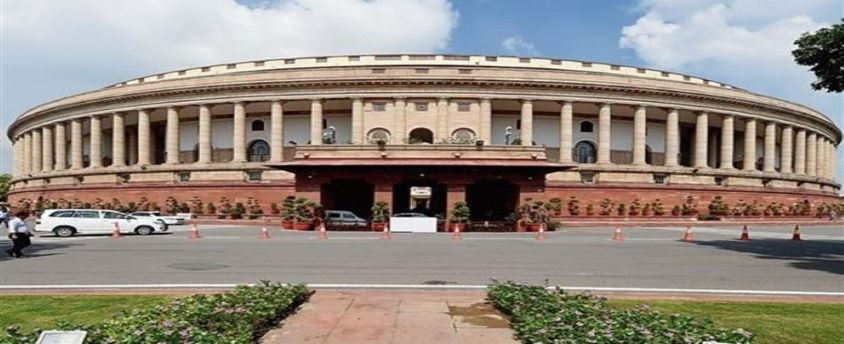
Why in News?
- As Opposition MPs resorted to sloganeering over demand for JPC probe into the Adani issue, proceedings in the Lok Sabha were adjourned.
About:
- A sitting of Parliament can be terminated by adjournment or adjournment sine die or prorogation or dissolution (in the case of the Lok Sabha).
- Adjournment: It suspends the work in a sitting for a specified time, which may be hours, days or weeks.
- Adjournment sine die: It means terminating a sitting of Parliament for an indefinite period.
- In other words, when the House is adjourned without naming a day for reassembly.
- The power of adjournment as well as adjournment sine die lies with the presiding officer (Speaker or Chairman) of the House.
What the Constitution says on Parliamentary Sessions?
- Article 85 requires that there should not be a gap of more than six months between two sessions of Parliament.
- Please note, the Constitution does not specify when or for how many days Parliament should meet.
- The maximum gap between two sessions of Parliament cannot be more than six months. That means the Parliament should meet at least twice a year.
- A ‘session’ of Parliament is the period between the first sitting of a House and its prorogation.
Who shall convene a session?
- In practice, the Cabinet Committee on Parliamentary Affairs, comprising senior ministers, decides on the dates for parliament’s sitting and it is then conveyed to the president.
- So, the executive, headed by the prime minister, which steers the business to be taken up by parliament will have the power to advise the president to summon the legislature.
What are the other different sessions in Parliament?
- Summoning of Parliament: Summoning is the process of calling all members of the Parliament to meet.
The President summons each House of the Parliament from time to time. The gap between two sessions of the Parliament cannot exceed 6 months, which means the Parliament meets at least two times in one year.
- Prorogation: Prorogation is the end of a session. A prorogation puts an end to a session. The time between the Prorogation and reassembly is called Recess. Prorogation is the end of session and not the dissolution of the house (in case of Lok Sabha, as Rajya Sabha does not dissolve).
- Quorum: Quorum refers to the minimum number of the members required to be present for conducting a meeting of the house.
The Constitution has fixed one-tenth strength as quorum for both Lok Sabha and Rajya Sabha. Thus, to conduct a sitting of Lok Sabha, there should be at least 55 members present while to conduct a sitting of Rajya Sabha, there should be at least 25 members present.
Why is a Parliamentary Session important?
- Law-making is dependent on when Parliament meets.
- Also, a thorough scrutiny of the government’s functioning and deliberation on national issues can only take place when the two Houses are in session.
- Predictability in the functioning of Parliament is key to a well-functioning democracy.
JPC demand on Adani issue
21, Mar 2023
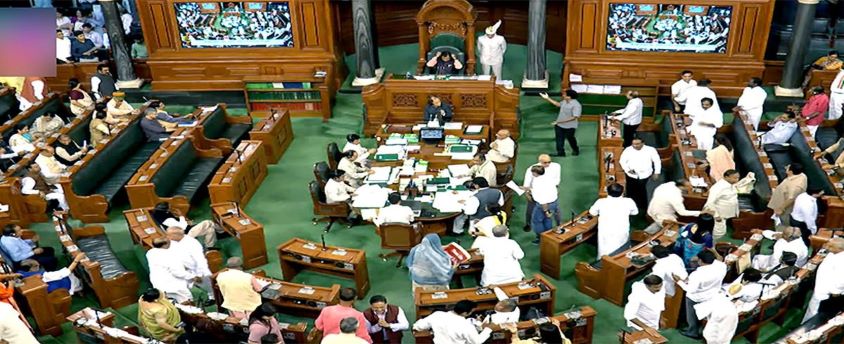
Why in News?
- Both Houses of Parliament remained paralysed over the BJP’s insistence on an apology from Congress leader Rahul Gandhi for his democracy remarks and the Opposition’s demand for a joint parliamentary committee (JPC) probe into the alleged stock manipulation by the Adani Group.
About the Hindenberg group and its report:
- Hindenburg Research is a company that specializes in forensic financial research.
- It especially looks for accounting irregularities; undisclosed related-party transactions; illegal/ unethical business or financial reporting practices; and undisclosed regulatory, product, or financial issues in companies.
- In late January, Hindenburg Research, which specializes in short selling, published a report critical of the group’s finances.
- The research firm, which has short positions in Adani companies through US-traded bonds and non-Indian-traded derivative instruments, said key listed companies in the group had “substantial debt” which has put the entire group on a “precarious financial footing”.
Outcome of the report:
- The seven listed firms have still lost about half their market value – or more than USD 100 billion combined – since the US-based short-seller last week questioned the group over its debt levels, Reuters reported. The listed Adani firms now have a combined market value of USD 108 billion, versus USD 218 billion before Hindenburg’s report.
- The report has also caused a political storm in the country with opposition stalling the parliament and demanding a JPC or Supreme court led investigation of the allegations against the Adani Group on the basis of the Hindenburg report.
What is a JPC?
- A Joint Parliamentary Committee (JPC) is set up to examine a particular bill presented before the Parliament, or for the purpose of investigating cases of financial irregularities in any government activity.
- The JPC is an ad-hoc body.
- It is set up for a given period of time and is aimed at addressing a specific issue.
- In order to set up a JPC, a motion is passed in one House and supported by the other House.
- The committee’s members are decided by Parliament.
- The number of members can vary. There are twice as many Lok Sabha members as the Rajya Sabha.
Powers and Functions of JPC:
- A JPC is authorised to collect evidence in oral or written form or demand documents in connection with the matter.
- The proceedings and findings of the committee are confidential, except in matters of public interest.
- The government can take the decision to withhold a document if it is considered prejudicial to the safety or interest of the State.
- The Speaker has the final word in case of a dispute over calling for evidence.
- The committee can invite interested parties for inquiry and summon people to appear before it.
- The committee gets disbanded following the submission of its report to Parliament.
The Parliamentary committee report on the Earth Sciences Ministry
13, Feb 2023

Why in News?
- According to a Parliamentary committee report, the Ministry of Earth Sciences (MoES) made progress but has been ‘sluggish’ on a few counts.
- Genesis & Types of Parliamentary Committee:
- Origin: As is the case with several other practices of Indian parliamentary democracy, the institution of Parliamentary Committees also has its origins in the British Parliament
- In independent India, the first Public Accounts Committee was constituted in April 1950.
- Constitutional Provisions: Parliamentary committees draw their authority from Article 105 (on privileges of Parliament members) and Article 118 (on Parliament’s authority to make rules for regulating its procedure and conduct of business).
- Types: Most committees are ‘standing’ as their existence is uninterrupted and usually reconstituted on an annual basis; some are ‘select’ committees formed for a specific purpose, for instance, to deliberate on a particular bill.
- In 1993, 17 Departmentally-related Standing Committees (DRSCs), later increased to 24, were constituted in the Parliament.
- These committees drew members from both Houses roughly in proportion to the strength of the political parties in the Houses.
- Allocation of Business: The chair uses her discretion to refer a matter to a parliamentary committee but this is usually done in consultation with leaders of parties in the House.
- The practice of regularly referring bills to committees began in 1989 after government departments started forming their own standing committees.
- Prior to that, select committees or joint committees of the houses were only set up to scrutinise in detail some very important bills.
- Some Important Parliamentary Committees in Finances: Financial control is a critical tool for Parliament’s authority over the executive; hence finance committees are considered to be particularly powerful.
- The three financial committees are the Public Accounts Committee, the Estimates Committee and the Committee on Public Undertakings.
Significance of Parliamentary Committee System:
- Inter-Ministerial Coordination: They are envisaged to be the face of Parliament in a set of inter- related departments and ministries.
- They are assigned the task of looking into the demands for grants of the ministries/departments concerned, to examine Bills pertaining to them, to consider their annual reports, and to look into their long-term plans and report to Parliament.
- Instrument For Detailed Scrutiny: Committee reports are usually exhaustive and provide authentic information on matters related to governance.
- Bills that are referred to committees are returned to the House with significant value addition.Besides the standing committees, the Houses of Parliament set up ad hoc committees to enquire and report on specific subjects that are assigned the task of studying a Bill closely and reporting back to the House.
- Also, in the discharge of their mandate, they can solicit expert advice and elicit public opinion.
- Acting As Mini-Parliament: These Committees are smaller units of MPs from both Houses, across political parties and they function throughout the year.
- Also, Parliamentary committees are not bound by the populistic demands that generally act as hindrance in working of parliament.
- As committee meetings are ‘closed door’ and members are not bound by party whips, the parliamentary committee work on the ethos of debate and discussions.
- Moreover, they work away from the public glare, remain informal compared to the codes that govern parliamentary proceedings, and are great training schools for new and young members of the House.
Major schemes of MoES:
- The atmosphere and Climate Research-Modelling Observing Systems and Services (ACROSS)
- Ocean-Services, Modelling, Application, Resources, and Technology (O-SMART)
- POLAR SCIENCE AND CRYOSPHERE RESEARCH (PACER)
- Seismology and Geosciences (SAGE)
- Research, Education, Training, and Outreach (REACHOUT)
- Deep Ocean Mission (DOM)
Way ahead:
- To revisit its performance in terms of the realization of physical targets set under various
- As acquiring the funds has been challenging, getting in-principle approval from the Department of Expenditure for different initiatives.
Lack of Quorum in Lok Sabha
10, Feb 2023
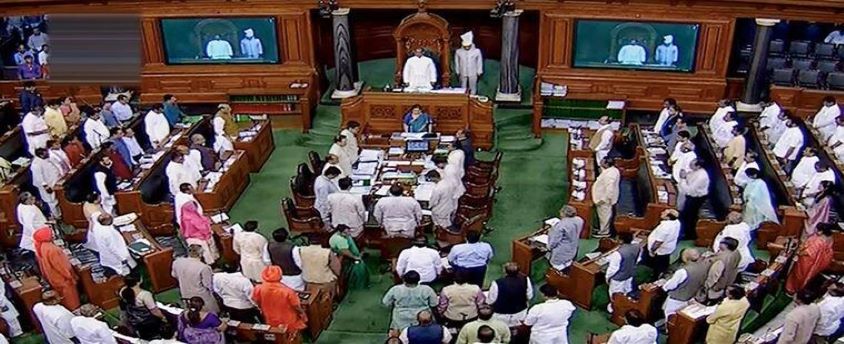
Why in News?
- The Lok Sabha began a discussion on the general Budget but the House had to be adjourned before the scheduled time due to lack of quorum.
What is Quorum?
- Quorum is the minimum number of members of a deliberative assembly necessary to conduct the business of that assembly.
- Article 100 of the Indian Constitution states that the quorum to constitute a meeting of either House of Parliament shall be one-tenth of the total number of members of that House.
- This means that the quorum of Lok Sabha (Lower House) is 55 and that of Rajya Sabha (Upper House) is 25.
Who decides the Quorum?
- The quorum is usually decided at the beginning of the session and if it is not present when a vote is taken, the vote is invalid.
- In the event of inadequate quorum, the Speaker or the Chairman can adjourn the House or suspend the sitting till the quorum is present.
Challenging a Quorum:
- Furthermore, the quorum can be challenged by any member of the House.
- In the event that the quorum is challenged, the Speaker or the Chairman can direct that a count of the members present be taken.
- If the quorum is not present, the House is adjourned. However, if the quorum is present, the business of the House is resumed.
Other important events in Parliament:
- Summoning of Parliament: Summoning is the process of calling all members of the Parliament to meet. The President summons each House of the Parliament from time to time. The gap between two sessions of the Parliament cannot exceed 6 months, which means the Parliament meets at least two times in one year.
- Adjournment: Adjournment terminates the sitting of the House which meets again at the time appointed for the next sitting. The postponement may be for a specified time such as hours, days or weeks. If the meeting is terminated without any definite time/ date fixed for the next meeting, it is called Adjournment sine die.
- Prorogation: Prorogation is the end of a session. A prorogation puts an end to a session. The time between the Prorogation and reassembly is called Recess. Prorogation is the end of session and not the dissolution of the house (in case of Lok Sabha, as Rajya Sabha does not dissolve).
Deadline for comments on Digital Data Protection Bill extended
19, Dec 2022

Why in News?
- The Ministry of Electronics and Information Technology has extended the last date for receiving public comments on the Digital Personal Data Protection Bill, 2022, till January 2, 2023.
About the new draft:
- The Bill seeks to establish a comprehensive legal framework governing digital personal data protection in India, recognizing both the –
- Rights of citizens (Digital Nagrik), societal rights to protect their personal data – a strict user-consent regime for data processing.
- Duties/obligations of the Data Fiduciary (consumer internet and social-media companies) to process and use collected data lawfully.
Background:
- The revamped draft was released after the government withdrew an earlier version – the Personal Data Protection Bill, 2019, that sparked outrage from Big Tech and civil society.
- The 2019 Bill was prepared by former Supreme Court judge B N Srikrishna, to guarantee the protection of persons’ personal data and to establish a Data Protection Authority.
- The government has decided to come up with a fresh bill that fits into the comprehensive suggestions made by the Joint Committee of Parliament (JCP) on the 2019 Bill.
- The JPC had submitted many recommendations (such as broad data protection in line with KS Puttaswamy judgement of 2017) to the 2019 Bill in 2021.
Key provisions of the Digital Personal Data Protection Bill, 2022:
- Data Protection Board: It will act as the adjudicating body to enforce the provisions of the Bill.
- Data Protection Officer and independent data auditor: They will be appointed by businesses of “significant” size (based on the volume of data they process), to evaluate compliance with provisions of the law.
- Easing cross-border data flows:
- The new Bill relaxes data localisation rules and permits data to flow to certain global destinations, based on their data security landscape.
- The previous Bill mandated enterprises to keep a copy of sensitive personal data within India and prohibited the transfer of critical personal data from the country, the most important concern expressed by IT firms.
- Right to correction/eraser: Users will have the right to have their personal data in the custody of enterprises corrected and erased.
- Duties of companies:
- Companies will not be obligated to keep user data that no longer serves a business purpose.
- Companies should not process personal data that could harm minors (less than 18 years of age).
- Promoting start-up ecosystem: The government may also exclude certain enterprises from Bill’s restrictions based on the volume of users and personal data handling.
- Exemptions: The Central government has been empowered to exempt its agencies from adhering to provisions of the Bill in the interest of –
- Sovereignty and integrity of India,
- Security of the state,
- Friendly relations with foreign states,
- Maintenance of public order or preventing incitement to any cognisable offence.
- Penalties: Focus is more on financial penalties than a criminal conviction.
- For companies: Between Rs 50 – 500 crore for data breaches and noncompliance.
- For users: A consumer who submits false documents for an online service or makes bogus grievance complaints may face a Rs 10,000 fine.
Significance:
- Based on global best practices: The government says that it has reviewed the Personal Data Protection laws of Singapore, Australia, the European Union and the US.
- Economic benefits: The bill draft also considers the country’s 1 trillion-dollar Digital Economy goals and the rapidly growing innovation and startup ecosystem.
Concerns:
- State agencies are granted broad-vague exemptions. This may not meet the ‘necessity’ and ‘proportionality’ tests outlined in the landmark right to privacy judgement (KS Puttaswamy case) of 2017.
- The independence of a proposed regulator – the Data Protection Board, has been reduced. Unlike the Data Protection Authority, which is envisioned as a statutory body under the 2019 Bill, the appointment of the chairperson and members of the Board is entirely up to the discretion of the central government.
- Relaxing data localisation requirements will make it difficult to detect and investigate non-compliance and breaches.
RS sees Adjournment as Congress Demands Debate on Chinese Incursion
17, Dec 2022

Why in News?
- Rajya Sabha faced an adjournment recenty as the Congress party insisted for a debate on the “Chinese incursion” in Arunachal Pradesh.
About:
- A sitting of Parliament can be terminated by adjournment or adjournment sine die or prorogation or dissolution (in the case of the Lok Sabha).
- Adjournment: It suspends the work in a sitting for a specified time, which may be hours, days or weeks.
- Adjournment sine die: It means terminating a sitting of Parliament for an indefinite period.
- In other words, when the House is adjourned without naming a day for reassembly.
- The power of adjournment as well as adjournment sine die lies with the presiding officer (Speaker or Chairman) of the House.
What the Constitution says on Parliamentary Sessions?
- Article 85 requires that there should not be a gap of more than six months between two sessions of Parliament.
- Please note, the Constitution does not specify when or for how many days Parliament should meet.
- The maximum gap between two sessions of Parliament cannot be more than six months. That means the Parliament should meet at least twice a year.
- A ‘session’ of Parliament is the period between the first sitting of a House and its prorogation.
Who shall convene a session?
- In practice, the Cabinet Committee on Parliamentary Affairs, comprising senior ministers, decides on the dates for parliament’s sitting and it is then conveyed to the president.
- So, the executive, headed by the prime minister, which steers the business to be taken up by parliament will have the power to advise the president to summon the legislature.
What are the other different sessions in Parliament?
- Summoning of Parliament: Summoning is the process of calling all members of the Parliament to meet. The President summons each House of the Parliament from time to time. The gap between two sessions of the Parliament cannot exceed 6 months, which means the Parliament meets at least two times in one year.
- Prorogation: Prorogation is the end of a session. A prorogation puts an end to a session. The time between the Prorogation and reassembly is called Recess. Prorogation is the end of session and not the dissolution of the house (in case of Lok Sabha, as Rajya Sabha does not dissolve).
- Quorum: Quorum refers to the minimum number of the members required to be present for conducting a meeting of the house. The Constitution has fixed one-tenth strength as quorum for both Lok Sabha and Rajya Sabha. Thus, to conduct a sitting of Lok Sabha, there should be at least 55 members present while to conduct a sitting of Rajya Sabha, there should be at least 25 members present.
Why is a Parliamentary Session important?
- Law-making is dependent on when Parliament meets.
- Also, a thorough scrutiny of the government’s functioning and deliberation on national issues can only take place when the two Houses are in session.
- Predictability in the functioning of Parliament is key to a well-functioning democracy.
Private Members Bill
10, Dec 2022

Why in News?
- The introduction of a private member bill by a BJP member on implementation of Uniform Civil Code (UCC) across the country witnessed vociferous protest from the Opposition members in Rajya Sabha recently.
Who is a Private Member?
- Any MP who is not a Minister is referred to as a private member.
- The purpose of private member’s bill is to draw the government’s attention to what individual MPs see as issues and gaps in the existing legal framework, which require legislative intervention.
Admissibility of a private member’s Bill:
- The admissibility is decided by the Chairman for Rajya Sabha and Speaker in the case of Lok Sabha.
- Its rejection by the House has no implication on the parliamentary confidence in the government or its resignation.
- The procedure is roughly the same for both Houses:
- The Member must give at least a month’s notice before the Bill can be listed for introduction.
- The House secretariat examines it for compliance with constitutional provisions and rules on legislation before listing.
Is there any exception?
- While government Bills can be introduced and discussed on any day, private member’s Bills can be introduced and discussed only on Fridays.
Has a private member’s bill ever become a law?
- As per PRS Legislative, no private member’s Bill has been passed by Parliament since 1970. To date, Parliament has passed 14 such Bills, six of them in 1956. In the 14th Lok Sabha, of the over 300 private member’s Bills introduced, roughly four per cent were discussed, the remaining 96 per cent lapsed without a single dialogue.
Winter Session of Parliament
08, Dec 2022

Why in News?
- Both Lok Sabha and Rajya Sabha conducted business as usual on the first day of the 2022 Winter Session, as opposed to a turbulent previous session.
Background:
- Article 85 says the President can summon a session of Parliament “at such time and place as he thinks fit”. Thus, a session can be called on the recommendation of the government, which decides its date and duration.
- As per parliamentary records, there have only been three instances in the past of the winter session not being held — in 1975, 1979 and 1984.
What the Constitution says?
- Article 85 requires that there should not be a gap of more than six months between two sessions of Parliament.
- Therefore, with the monsoon session of Parliament held in September, the government has no constitutional compulsion to hold a winter session.
- Besides, the Constitution does not specify when or for how many days Parliament should meet.
Why is a Parliamentary Session important?
- Law-making is dependent on when Parliament meets.
- Also, a thorough scrutiny of the government’s functioning and deliberation on national issues can only take place when the two Houses are in session.
- Predictability in the functioning of Parliament is a key to a well-functioning democracy.
How does it help to have Parliament in session throughout the year?
- There are three main advantages.
- It enables detailed planning of legislative and policy work all year round.
- It negates the need for enacting Ordinances.
- It enables accountability of government functioning by Parliament throughout the year.
Elections to 13 Rajya Sabha seats on March 31
09, Mar 2022

Why in News?
- The Election Commission recently announced polls to fill 13 Rajya Sabha seats across six states falling vacant in April, including those of Congress veterans AK Antony and Anand Sharma, that are scheduled to be held on March 31.
About the Rajya Sabha Polls:
- A third of MPs in the Rajya Sabha (which is a permanent House and is not subject to dissolution), from each State, retire once in two years and polls are held to fill up the vacancies.
- Only elected members of the State Legislative Assemblies can vote in a Rajya Sabha election.
- The legislators send a batch of new members to the Upper House every two years for a six-year term.
- In addition, vacancies that arise due to resignation, death or disqualification are filled up through by-polls after which those elected serve out the remainder of their Predecessors’ term.
Composition of Rajya Sabha
- A bloc of MPs belonging to one or more parties can elect a member of their choice if they have the requisite numbers.
- This is to avoid the principle of majority, which would mean that only candidates put up by ruling parties in the respective States will be elected.
- The Delhi and Puducherry Assemblies elect members to the Rajya Sabha to represent the two UTs.
What is the Election Process?
- Polling for a Rajya Sabha election will be held only if the number of candidates exceeds the Number of Vacancies.
- Since the strength of each party in the Assembly is known, it is not difficult to estimate the number of seats a party would win in the Rajya Sabha poll.
- In many states, parties avoid a contest by fielding candidates only in respect to their strength. Where an extra candidate enters the fray, voting becomes necessary.
- Candidates fielded by political parties have to be proposed by at least 10 members of the Assembly or 10% of the party’s strength in the House, whichever is less.
- For independents, there should be 10 proposers, all of whom should be members of the Assembly.
Voting Procedure:
- Voting is by single transferable vote, as the election is held on the principle of proportional representation.
- A single transferable vote means electors can vote for any number of candidates in order of their preference.
- A candidate requires a specified number of first preference votes to win. Each first choice vote has a value of 100 in the first round.
- To qualify, a candidate needs one point more than the quotient obtained by dividing the total value of the number of seats for which elections are taking place plus one.
- Example: If there are four seats and 180 MLAs voting, the qualifying number will be 180/5= 36 votes or value of 3,600.
Why do not the Rajya Sabha Polls have a Secret Ballot?
- The Rajya Sabha polls have a system of the open ballot, but it is a limited form of openness.
- As a measure to check rampant cross-voting, which was taken to mean that the vote had been purchased by corrupt means.
- There is a system of each party MLA showing his or her marked ballots to the party’s authorised agent (called Whip), before they are put into the ballot box.
- Showing a marked ballot to anyone other than one’s own party’s authorised agent will render the vote invalid.
- Not showing the ballot to the authorised agent will also mean that the vote cannot be counted.
- And independent candidates are barred from showing their ballots to anyone.
Is there any NOTA option in voting?
- The ECI issued two circulars, on January 24, 2014, and November 12, 2015, giving Rajya Sabha members the option to press the NOTA button in the Upper House polls.
- However, in 2018, the Supreme Court struck down the provision, holding that the ‘none of the above’ option is only for General Elections. It cannot be applied to indirect elections based on Proportional Representation.
Does cross-voting Attract Disqualification?
- The Supreme Court, while declining to interfere with the open ballot system, ruled that not voting for the party candidate will not attract disqualification under the anti-defection law.
- As voters, MLAs retain their freedom to vote for a candidate of their choice.
- However, the Court observed that since the party would know who voted against its own candidate, it is free to take disciplinary action against the legislator concerned.
Can a legislator vote without taking oath as a Member of the Assembly?
- While taking oath as a member is for anyone to function as a legislator, the Supreme Court has ruled that a member can vote in a Rajya Sabha election even before taking oath as a legislator.
- It ruled that voting at the Rajya Sabha polls, being a non-legislative activity, can be performed without taking the oath.
- It also said that a person becomes a member as soon as the list of elected members is notified by the ECI.
- Further, a member can also propose a Candidate before taking the oath.
Privilege Motion
12, Feb 2022
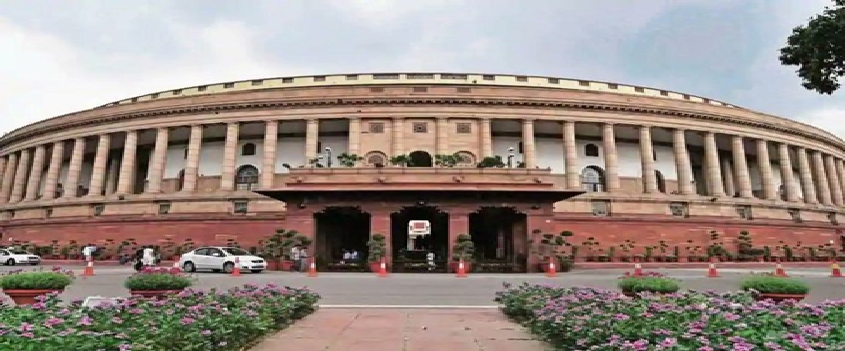
Why in News?
- An MP from Telangana submitted a Privilege Motion against PM regarding his remarks over the bifurcation of the erstwhile state of Andhra Pradesh.
What is Parliamentary Privilege?
- Parliamentary privilege refers to the right and immunity enjoyed by legislatures.
- The legislators are granted protection against civil or criminal liability for actions done or statements made in the course of their legislative duties.
- They are granted so that the MPs/MLAs can effectively discharge their functions.
- The powers, privileges and Immunities of either House of the Indian Parliament and of its Members and Committees are laid down in Article 105 of the Constitution.
- Article 194 deals with the powers, privileges and Immunities of the State Legislatures, their members and their committees.
What is a Privilege Motion?
- When any of the rights and immunities are disregarded, the offence is called a breach of privilege and is punishable under law of Parliament.
- A notice is moved in the form of a motion by any member of either House against those being held guilty of breach of privilege.
- Each House also claims the right to punish as contempt actions which, while not breach of any specific privilege, are offences against its authority and dignity.
What are the Rules Governing Privilege?
- Rule No 222 in Chapter 20 of the Lok Sabha Rule Book and correspondingly Rule 187 in Chapter 16 of the Rajya Sabha rulebook govern privilege.
- It says that a member may, with the consent of the Speaker or the Chairperson, raise a question involving a breach of privilege either of a member or of the House or of a committee thereof.
- The rules however mandate that any notice should be relating to an incident of recent occurrence and should need the intervention of the House.
- Notices have to be given before 10 am to the Speaker or the Chairperson.
What is the role of the Speaker/Rajya Sabha Chair?
- The Speaker/RS chairperson is the first level of scrutiny of a privilege motion.
- The Speaker/Chair can decide on the privilege motion himself or herself or refer it to the Privileges Committee of Parliament.
- If the Speaker/Chair gives consent under Rule 222, the member concerned is given an Opportunity to make a short statement.
What is the Privileges Committee?
- In the Lok Sabha, the Speaker nominates a committee of privileges consisting of 15 members as per respective Party Strengths.
- A report is then presented to the House for its consideration. The Speaker may permit a half-hour debate while Considering the report.
- The Speaker may then pass final orders or direct that the report be tabled before the House.
- A resolution may then be moved relating to the breach of privilege that has to be Unanimously Passed.
- In the Rajya Sabha, the deputy chairperson heads the committee of privileges, which consists of 10 Members.
Trinamool’s Derek O’Brien suspended for Unruly Behaviour
29, Dec 2021
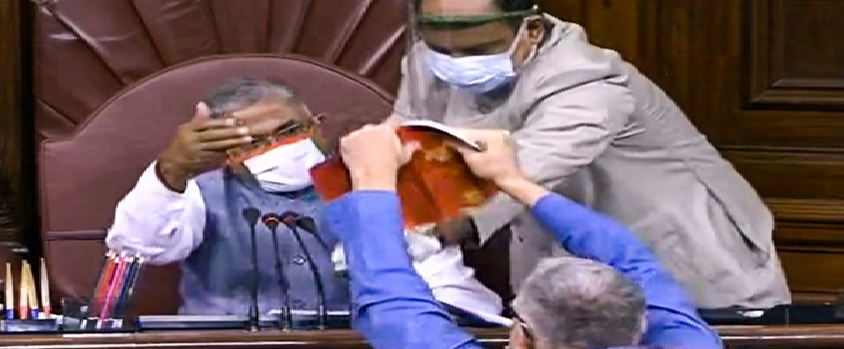
Why in News?
- Trinamool Congress floor leader Derek O’Brien was suspended from Rajya Sabha recently for the remaining days of the winter session for ‘unruly behaviour’ of hurling rule book at the Chair.
About Rule 256 of the General Rules of Procedure of the Rajya Sabha
- The Chairman invoked rule 256 to suspend them.
- Under Rule 256 (‘Suspension of Member’) “The Chairman may, if he deems it necessary, name a member who disregards the authority of the Chair or abuses the rules of the Council by persistently and willfully obstructing the business thereof.
- If a member is so named by the Chairman he shall forthwith put the question on a motion being made, no amendment, adjournment or debate being allowed, that the member (naming him) be suspended from the service of the Council for a period not exceeding the remainder of the Session:
- Provided that the Council may, at any time, on a motion being made, resolve that such suspension be terminated.
- A member suspended under this rule shall forthwith quit the precincts of the Council.
How is suspension under Rule 256 different from Suspension under Rule 255?
- Rule 255 provides for ‘Withdrawal of Member’; whereas Rule 256 provides for Suspension of a Member.
- Under Rule 255, “of the General Rules of Procedure of the Rajya Sabha, “The Chairman may direct any member whose conduct is in his opinion grossly disorderly to withdraw immediately from the Council and any member so ordered to withdraw shall do so forthwith and shall absent himself during the remainder of the day’s meeting.”
Differences in Powers of Speaker and Chairman of Rajya Sabha:
- Like the Speaker in Lok Sabha, the Chairman of Rajya Sabha is empowered under Rule Number 255 of its Rule Book to “direct any Member whose conduct is in his opinion grossly disorderly to withdraw immediately” from the House.
- Unlike the Speaker, however, the Rajya Sabha Chairman does not have the power to suspend a Member. The House has to adopt a motion suspending the Member from the service of the House for a period not exceeding the remainder of the session.
What is the Additional Power in Lok Sabha?
- Similar rules for the withdrawal (Rule 373) and suspension (Rule 374) are in place for Lok Sabha as well. Under Rule 374A, however, there is an additional provision for “automatic suspension” of an errant member: “Notwithstanding anything contained in Rules 373 and 374, in the event of grave disorder occasioned by a member coming into the well of the House or abusing the Rules of the House persistently and wilfully obstructing its business by shouting slogans or otherwise, such member shall, on being named by the Speaker, stand automatically suspended from the service of the House for five consecutive sittings or the remainder of the session, whichever is less.”
Procedure to be followed for suspension of Rajya Sabha MPs:
- The Chairman may “name a Member who disregards the authority of the Chair or abuses the rules of the Council by persistently and wilfully obstructing” business.
- In such a situation, the House may adopt a motion suspending the Member from the service of the House for a period not exceeding the remainder of the session.
- The House may, however, by another motion, terminate the suspension.
Efforts to bring Order in the House:
- As Chairman of Rajya Sabha, Vice-President Ansari had attempted several steps to bring order to the House. In 2013, he mooted a number of radical solutions to maintain decorum. This included:
- Naming and shaming MPs in the Rajya Sabha bulletin for stepping outside House rules. Those named were to include members who came into the Well, or indulged in other grossly disorderly behaviour. The telecast of proceedings to be deferred to prevent visuals of disorder from being made public.
How can Suspension of MPs be Justified?
- The solution to unruly behaviour has to be long-term and consistent with democratic values.There can be no question that the Enforcement of the supreme authority of the Presiding Officer is essential for smooth conduct of Proceedings.
- However, a balance has to be struck. It must be remembered that the job of the Presiding Officer is to run the House, not to lord over it.
PARLIAMENTARY STANDING COMMITTEES DEFER MEETINGS
26, Mar 2020
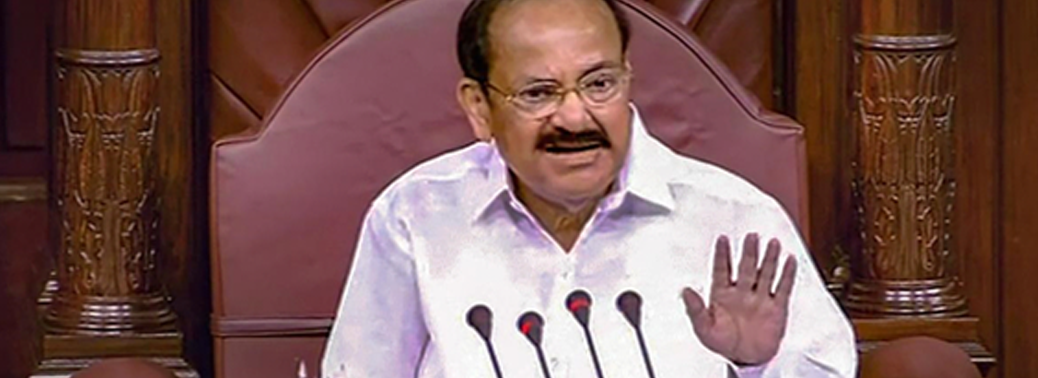
Why in News?
- All meetings of parliamentary standing committees have been deferred indefinitely because of the lockdown to curb the spread of COVID-19.
What are the Different Types of Committees?
- ‘Standing’ committees: Their existence is uninterrupted and usually reconstituted on an annual basis. Some standing committees are departmentally related.
- ‘Select’ committees formed for a specific purpose, for instance, to deliberate on a particular bill. Once the Bill is disposed of, that select committee ceases to exist.
- Finance committees are considered to be particularly powerful. The three financial committees are the Public Accounts Committee, the Estimates Committee and the Committee on Public Undertakings.
Constitutional Backing:
- Parliamentary committees draw their authority from Article 105 (on privileges of Parliament members) and Article 118 (on Parliament’s authority to make rules for regulating its procedure and conduct of business).
What is their Significance?
- Committee reports are usually exhaustive and provide authentic information on matters related to governance.
- Bills that are referred to committees are returned to the House with significant value addition.
- However, Parliament is not bound by the recommendations of committees.
Why have Parliamentary Committees?
- Parliament is the embodiment of the people’s will. Committees are an instrument of Parliament for its own effective functioning.
- The smaller cohort of lawmakers, assembled on the basis of the proportional strength of individual parties and interests and expertise of individual lawmakers, could have more open, intensive and better-informed discussions.
- Members of Parliament may have great acumen but they would require the assistance of experts in dealing with such situations. It is through committees that such expertise is drawn into law making.
- Executive accountability to the legislature is enforced through questions in Parliament also, which are answered by ministers. However, department standing committees go one step further and hear from senior officials of the government in a closed setting, allowing for more detailed discussions.
- This mechanism also enables parliamentarians to understand the executive processes closely.
Way Forward:
- Parliamentary committees don’t have dedicated subject-wise research support available. The knowledge gap is partially bridged by expert testimony from government and other stakeholders.
- Their work could be made more effective if the committees had full-time, sector-specific research staff.
- Currently, the rules of Parliament don’t require every bill to be referred to a parliamentary committee for scrutiny. While this allows the government greater flexibility and the ability to speed up legislative business, it comes at the cost of ineffective scrutiny by the highest law-making body. Mandatory scrutiny of all bills by parliamentary committees would ensure better planning of legislative business.
ELECTIONS TO 18 RAJYA SABHA POLLS DEFERRED DUE TO PANDEMIC
25, Mar 2020
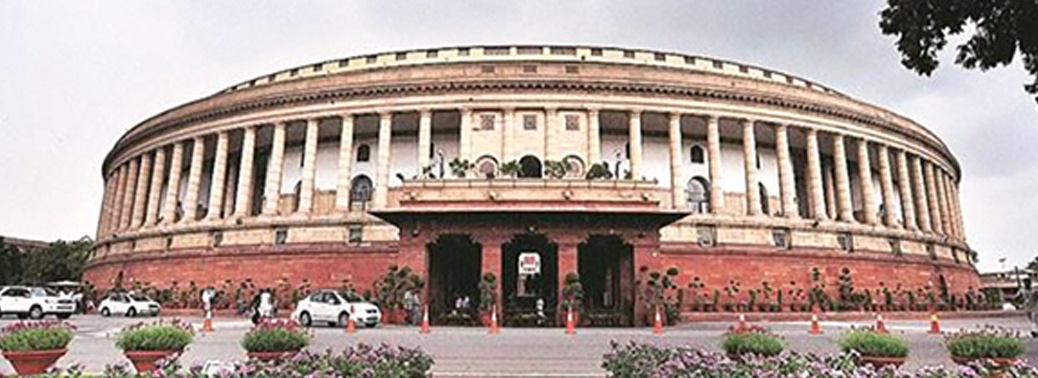
Why in News?
- Elections to 18 Rajya Sabha seats that were scheduled to take place have been deferred due to the Coronavirus pandemic by the Election Commission of India (ECI).
Composition of Rajya Sabha:
- Article 80 of the Constitution lays down the maximum strength of Rajya Sabha as 250, out of which 12 members are nominated by the President and 238 are representatives of the States and of the two Union Territories.
- The members nominated by the President are persons having special knowledge or practical experience in respect of such matters as literature, science, art and social service.
- The Vice-President is the ex-officio chairperson of the Rajya Sabha.
- The Deputy Chairman, who is elected from amongst the house’s members, takes care of the day-to-day matters of the house in the absence of the Chairman.
Allocation of Seats to Rajya Sabha:
- The Fourth Schedule to the Constitution provides for the allocation of seats to the States and Union Territories in Rajya Sabha.
- The allocation of seats is made on the basis of the population of each State.
- Consequent on the reorganization of States and formation of new States, the number of elected seats in the Rajya Sabha allotted to States and Union Territories has changed from time to time since 1952.
- Every Rajya Sabha MP has tenure of six years and elections to one-third seats are held every two years.
- According to Section 154 of the Representation of the People Act 1951, a member chosen to fill a casual vacancy will serve for the remainder of his predecessor’s term of office.
What are the Eligibilities to become a Member of Rajya Sabha?
- A member of the Rajya Sabha must:
- Be a citizen of India;
- Be at least 30 years old;
- Possess such other qualifications as may be prescribed in that behalf by or under any law made by Parliament.
Process of Rajya Sabha Election:
- The representatives of the States and of the Union Territories in the Rajya Sabha are elected by the method of indirect election.
- The representatives of each State and two Union territories are elected by the elected members of the Legislative Assembly of that State and by the members of the Electoral College for that Union Territory, as the case may be, in accordance with the system of proportional representation by means of the single transferable vote.
- To win a Rajya Sabha seat, a candidate should get a required number of votes. That number is found out using the below formula. Required vote = Total number of votes / (Number of Rajya Sabha seats + 1) + 1.
FINANCE BILL PASSED IN LOK SABHA WITHOUT DEBATE
24, Mar 2020
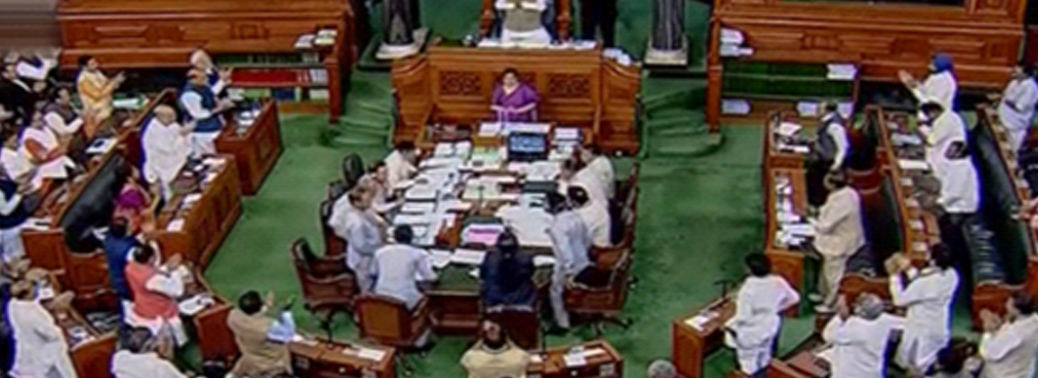
Why in News?
- The Lok Sabha passed the Finance Bill, by voice vote without discussion, amid ruckus in the House with opposition parties seeking a fiscal stimulus package in the wake of the Coronavirus outbreak.
Key Features of the Bill:
- In the Union Budget 2020-2021, the government proposed to spend Rs 30, 42,230 crore in the next financial year, 12.7% higher than the revised estimate of 2019-20. By passing the Bill, these financial proposals have been given effect.
- The government has assumed a nominal Gross Domestic Product (GDP) growth rate of 10% in 2020-21, versus the nominal growth estimate at 12% for 2019-20. It expects that receipts will increase by 16.3% to Rs 22, 45,893 crore, owing to higher estimated revenue from divestment.
- While several amendments were passed, finance minister withdrew some affecting non-resident Indians.
- In the passed Bill, NRIs having income above Rs 15 lakh from business in India will fall under the tax net, but their global income will not be taxed in India.
- Further, the tax deducted at source (TDS) rate on payment of dividend to non-resident and foreign company has been set at 20%.
- The finance minister had introduced the new system of optional income tax slabs for individual taxpayers, where deductions and exemptions cannot be claimed, which was also passed by the Upper House of Parliament.
- The proposal for taxing dividends in the hands of shareholders by abolishing the dividend distribution tax (DDT) was also passed. While the new rule kicks into effect from April 1, 2020, the government has clarified that shareholders will have no tax liability if the company issuing the dividend has paid the DDT before April 1.
What is the Finance Bill?
- The Finance Act is an act of Parliament by which the Union Government of India gives effects to the financial proposals given by the government for the following financial year.
- The finance bill is introduced to the Lower House after the Union Budget is presented by the Finance Minister. Once the proposals are passed by the parliament and assented to by the President, it becomes the Finance Act of that year.
- There is a new Finance Act every financial year which makes this act an act that renews itself every year. This act basically is an umbrella act that includes all the government’s financial policies.
How is the Finance Bill Passed?
- The Finance Bill is introduced in Lok Sabha. Rajya Sabha can recommend amendments in the bill. However, the bill has to be passed by the Parliament within 75 days of introduction.
What is the difference between a money bill and Finance bill?
- While all Money Bills are Financial Bills, all Financial Bills are not Money Bills.
- For example, the Finance Bill which only contains provisions related to tax proposals would be a Money Bill. However, a Bill that contains some provisions related to taxation or expenditure, but also covers other matters would be considered as a Financial Bill.
- The Compensatory Afforestation Fund Bill, 2015, which establishes funds under the Public Account of India and states, was introduced as a Financial Bill.
- Finance Bill has the provision of including recommendations from Rajya Sabha, however, in case of a Money Bill, it is not mandatory.
- In case of a Money Bill, Lok Sabha has the right to reject the recommendations of the Upper house or Rajya Sabha.
REVOCATION OF SUSPENSION OF MPS IN LOK SABHA
13, Mar 2020
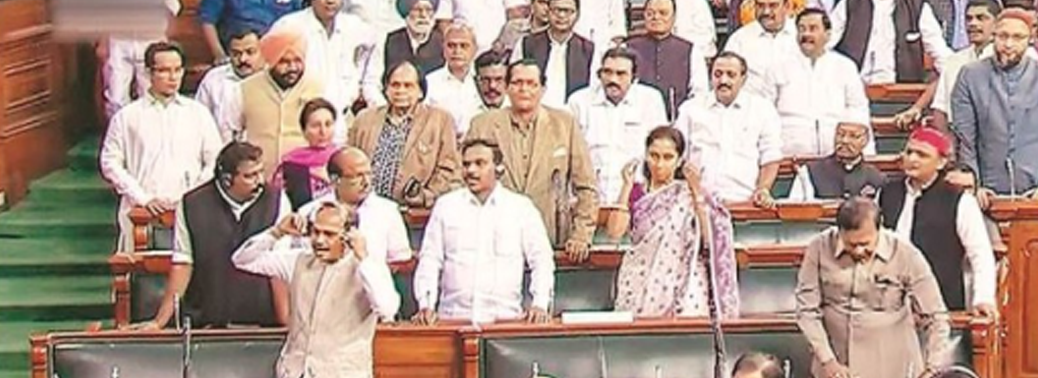
Why in News?
- Seven Congress members were recently suspended for unruly behaviour in the Lok Sabha and their suspension has been revoked recently.
What is the reason for suspending an MP?
- The general principle is that it is the role and duty of the Speaker of Lok Sabha to maintain order so that the House can function smoothly. This is a daunting task even at the best of times.
- In order to ensure that proceedings are conducted in the proper manner, the Speaker is empowered to force a Member to withdraw from the House (for the remaining part of the day), or to place him/her under suspension.
What are the Rules under which the Speaker Acts
- Rule Number 373 of the Rules of Procedure and Conduct of Business says: “The Speaker, if is of the opinion that the conduct of any Member is grossly disorderly, may direct such Member to withdraw immediately from the House, and any Member so ordered to withdraw shall do so forthwith and shall remain absent during the remainder of the day’s sitting.”
- To deal with more recalcitrant Members, the Speaker may take recourse to Rules 374 and 374A. Rule 374 says:
- “The Speaker may, if deems it necessary, name a Member who disregards the authority of the Chair or abuses the rules of the House by persistently and wilfully obstructing the business thereof.
- “If a Member is so named by the Speaker, the Speaker shall, on a motion being made forthwith put the question that the Member (naming such Member) be suspended from the service of the House for a period not exceeding the remainder of the session:
- Provided that the House may, at any time, on a motion being made, resolve that such suspension be terminated.
- “A member suspended under this rule shall forthwith withdraw from the precincts of the House.”
What is the Procedure for Revocation of a Member’s Suspension?
- While the Speaker is empowered to place a Member under suspension, the authority for revocation of this order is not vested in him/her. It is for the House, if it so desires, to resolve on a motion to revoke the suspension.
What happens in Rajya Sabha?
- Like the Speaker in Lok Sabha, the Chairman of the Rajya Sabha is empowered under Rule Number 255 of its Rule Book to “direct any Member whose conduct is in his opinion grossly disorderly to withdraw immediately” from the House.
- “Any Member so ordered to withdraw shall do so forthwith and shall absent himself during the remainder of the day’s meeting.”
- The Chairman may “name a Member who disregards the authority of the Chair or abuses the rules of the Council by persistently and wilfully obstructing” business.
- In such a situation, the House may adopt a motion suspending the Member from the service of the House for a period not exceeding the remainder of the session.
- The House may, however, by another motion, terminate the suspension.
- Unlike the Speaker, however, the Rajya Sabha Chairman does not have the power to suspend a Member.
Need of the Hour:
- A balance has to be struck. There can be no question that the enforcement of the supreme authority of the Speaker is essential for smooth conduct of proceedings. However, it must be remembered that her job is to run the House, not to lord over it.
- The solution to unruly behaviour has to be long-term and consistent with democratic values.
- A step in that same direction could be to discontinue the practice of herding people out of the visitors’ gallery when the House witnesses chaos. It has been suggested that it may perhaps be a good idea to let them be — and to also reserve a few blocks in the gallery for schoolchildren, who could see for themselves the conduct of Members.
PRIVATE MEMBER’S BILL
13, Feb 2020
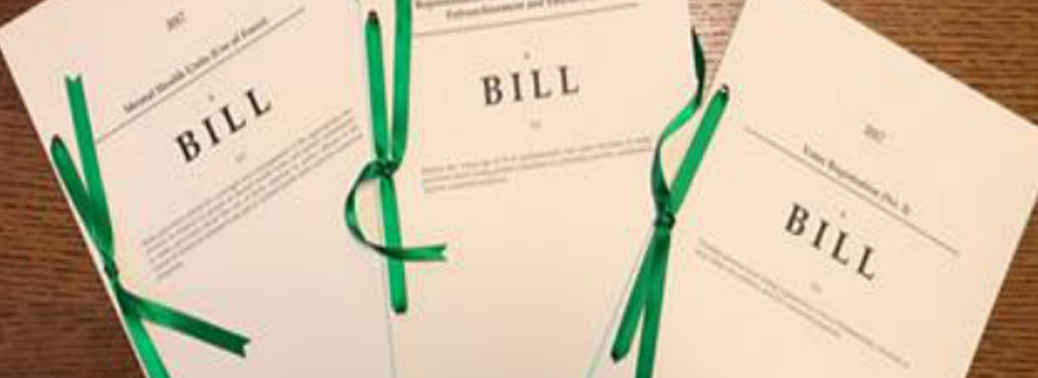
Why in News?
- Four Members of Parliament are ready with Private Member’s Bill in the Lok Sabha to deal with the surging Unemployment Crisis.
What is a Private Member’s Bill?
- Any MP who is not a Ministeris referred to as a private member. The bill introduced by such an MP is designated as the Private Member’s Bill.
- While government Billscan be introduced and discussed on any day, private member’s Bills can be introduced and discussed only on Fridays.
What are the Bills to be Placed?
- Unemployment Allowance Bill 2019proposes doling out some form of unemployment allowance to jobless citizens.
- Financial Assistance to Unemployed Post-Graduates Bill 2019restricts the unemployment allowances to unemployed postgraduates only.
- Unemployed Youth (Allowance and Employment Opportunities) Bill 2019eyes the twin-purpose of generating gainful employment opportunities and payment of unemployment allowance.
- Another Unemployment Allowance Billproposes unemployment allowances for jobless youth until they get gainful employment.
How such bills are admitted in Parliament?
- The admissibility is decidedby the Chairman for Rajya Sabha and Speaker in the case of Lok Sabha. The procedure is roughly the same for both Houses:
- The Member must give at least a month’s notice before the Bill can be listed for Introduction.
- The House secretariat examines it for compliance with constitutional provisions and rules on legislation before listing.
Has a private member’s bill ever become a law?
- As per PRS Legislative, no private member’s Bill has been passedby Parliament since 1970.
- The last time a private member’s bill was passed by both Houses was in 1970. It was the Supreme Court (Enlargement of Criminal Appellate Jurisdiction) Bill, 1968.
- To date, Parliament has passed 14 such Bills, six of them in 1956.
- In the 14th Lok Sabha, of the over 300 private member’s Bills introduced, roughly four per cent were discussed; the remaining 96 per cent lapsed without a single dialogue.
Why such Provisions are Needed?
- Any Government’s bill introduced is mostly done by the Ministers from the ruling parties. Sometimes the public importance in few cases may be ignored by them.
- Such importance can be brought to the Parliament by the Private Members.
DISQUALIFICATION POWERS OF SPEAKERS
07, Feb 2020
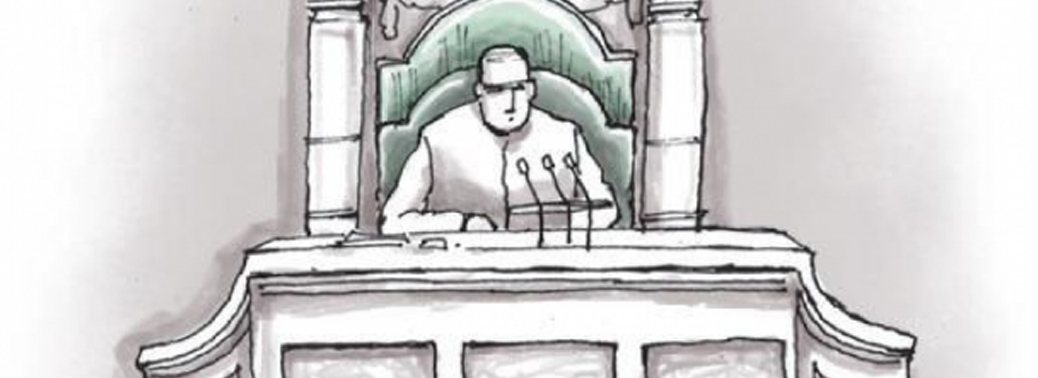
Why in News?
- Recently, the Supreme Court has given a significant suggestion regarding disqualification powers of the Speaker in the in Keisham Meghachandra Singh vs. the Hon’ble Speaker Manipur Legislative Assembly & Ors (2020) case.
What is the Role of the Speaker?
- He is the sole representative and guardian of powers and privileges of the members, the House as a whole and its Committees.
- He is the principal spokesperson of the House and represents the collective voice of the House.
- His/her decision in all Parliamentary matters (including disqualification matters under Tenth Schedule) is final, binding and ordinarily cannot be challenged in the Court of law. Thereby, Speaker acts as the ultimate arbitrator.
- For example, on this question whether a bill is a money bill or not, his/her decision is final.
- However, on the questions of disqualification of the members, the Supreme Court in Kihoto Hollohan vs Zachillhu and Others, 1992 case ruled that the decision of the Speaker in this regard is subject to judicial review.
- He Maintains order and decorum in the House for conducting its business and regulating its proceedings.
- He allocates duration for debates, can discipline members of the House, and even override decisions taken by the Committees of the House.
- He is the final interpreter of the provisions of the Constitution of India, Rules of Procedure and Conduct of Business of Lok Sabha, and Parliamentary precedents within the House.
What is the Issue?
- As the office of the Speaker is vested with great prestige, position, and authority, and independence impartiality of the Speaker becomes its sine qua non (an essential condition). However, the office of Speaker has been criticized time and again for being an agent of partisan politics.
- The Supreme Court in Jagjit Singh versus State of Haryana (2006)highlighted the similar allegations about the confidence on the role of Speaker in the matters of impartiality.
- In Kihoto Hollohan case (1992), one of the judges observed that the suspicion of bias on the Speaker’s role could not be ruled out as his/her election and tenure depends on the majority will of the House (or specifically of the ruling party).
- Also in the recent case of Manipur Legislative Assembly (2020), the Supreme Court questioned, “Why a Speaker- who is a member of a particular political party and an insider in the House, should be the sole and final arbiter in the cases of disqualification of a political defector.”
- Hence, there are structural issues regarding the manner of appointment of the Speaker and her tenure in office which need urgent redressal.
What are the Recommendations of the Court?
- The Court recommended the Parliament to amend the Constitution regarding the role of Speaker as a quasi-judicial authority while dealing with disqualification petitions under the anti-defection law (when such a Speaker continues to belong to a particular political party either de jure or de facto).
- The Court suggested that an independent tribunal can be appointed which will substitute the Speaker of the Lok Sabha and Legislative Assemblies to deal with matters of disqualifications under Tenth Schedule.
- Currently, disqualification of members of a House/Assembly is referred to the Speaker of the House/Assembly.
- The Tribunal will be headed by a retired Supreme Court judge or a retired Chief Justice of a High Court. The Court also suggested that some other outside independent mechanism can adjudicate on such matters. This will ensure that such disputes are decided both swiftly and impartially.
What could be the Possible Solutions?
- Adopting Global Practices such as the Britain Speaker is strictly a non-party person. There is a convention that the Speaker has to resign from his party and remain politically neutral. Also, once elected remains in office until retirement, even though the majority may change.
- Currently, this Convention is not fully established in India where the Speaker does not resign from the membership of the party on his/her election to the office.
- Hence, this mechanism can be adopted whereby Speakers need to renounce all political affiliations, membership and activity once they have been elected to the office.
- Currently, there is no time frame to adjudicate cases of disqualifications of members of the House.
- However, to contain this liberty of Speaker, the Court in the recent judgment held that, “unless there are any exceptional circumstances, disqualification petitions under the Tenth Schedule should be decided by Speakers within three months.”
Conclusion:
- Impartiality, fairness and autonomy in decision-making are the hallmarks of a robust institution. It is the freedom from interference and pressures which provide the necessary atmosphere where one can work with an absolute commitment to the cause of neutrality (as a Constitutional value).
- At a time when India’s rank has fallen in the latest Democracy Index(2019), it is expected out of Parliament to take steps to revamp and strengthen the institution of the Speaker.
- In this regard, Jawaharlal Nehru described: “As the House represents the nation (in a particular way), the Speaker being its sole representative becomes a symbol of the nation’s freedom and liberty. Therefore, this free and honoured position shall always be occupied by persons of outstanding ability and impartiality.”
MEDICAL COMMISSION BILL, 2019
05, Aug 2019

Context:
- Rajya Sabha passed the National Medical Commission (NMC) Bill that seeks to overhaul the medical education regulation infrastructure. Since then, doctors have struck work in Delhi and other cities.
What is the Bill about and why is it controversial?
License to practice
- Section 32 of the NMC Act 2019 allows the proposed NMC, which will replace the Medical Council of India, to grant “limited licence to practice medicine at mid-level as a community health provider”.
- The Indian Medical Association (IMA) says that “
- This is nothing but legalising and promoting quackery in India…
- Who will guarantee that these ‘legalised quacks’ will work in villages only? National Medical Commission Bill will open the floodgates for licencing 3.5 lakhs ‘legalised quacks’. This amounts to ‘licence to kill’.”
Bridge Course:
- This course would have allowed practitioners of homoeopathy and Indian systems of medicine to go on to practice allopathy.( In the new Bill, the bridge course has been dropped as per the recommendations of the Parliamentary Standing Committee on Health and Family Welfare, which wrote)
- The Committee, therefore, recommends that the State Governments may implement measures to enhance the capacity of the existing healthcare professionals including AYUSH practitioners, BSc (Nursing), BDS, B Pharma etc to address their State specific primary healthcare issues in the rural areas.”
Exit Examination:
- The new Bill proposes a single exit exam – the final MBBS exam, which will work as a licentiate examination, a screening test for foreign medical graduates, and an entrance test for admission in postgraduate programmes. It also provides for just one medical entrance test across the country
Doctors stand
- The Bill condenses final year MBBS exam, Licentiate exam. and PG NEET into one examination. This effectively removes the opportunity to reappear for PG selection.
- Moreover, the examination being objective in nature, increases the workload and stress level of the students manifold. Allowing foreign medical graduates to take the same examination will be an injustice… The current system allows medical graduates to practise irrespective of the status of his/her PG NEET.”
Arguments in Favour:
- The NMC Bill opens the path to a long-awaited reform of medical education
- Mid-level health workers like Community Health Providers are very much needed but their training programmes, competencies and roles have to be clearly defined to differentiate them from medical graduates. The Allied Healthcare Professionals Bill, which is to be examined by the Standing Committee, is the right place to position them.
- A common exit examination is needed for standardisation and postgraduate course selection but must be preceded by a college-level testing of practical clinical skills as a qualifier for the theory-based NEXT (National Exit Test).”
BYE ELECTIONS TO THE LEGISLATIVE COUNCILS
02, Aug 2019
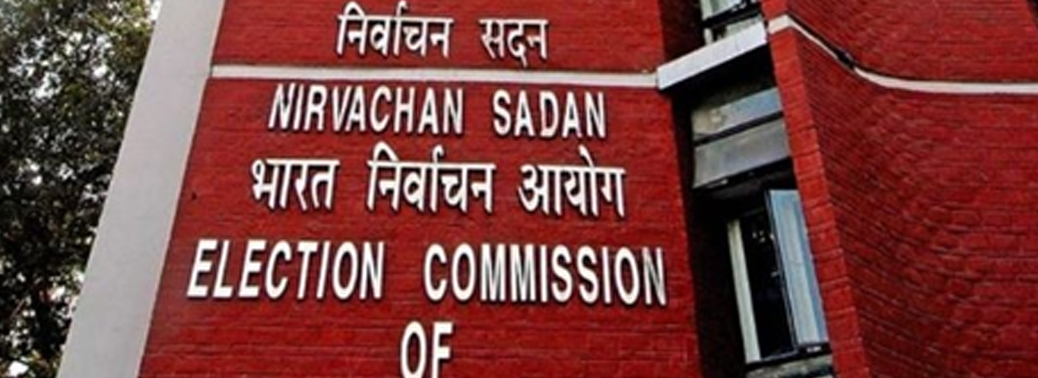
Why in News?
- There are casual vacancies created in the Legislative Council of Andhra Pradesh, Telangana, Rajasthan and Uttar Pradesh.
Casual Vacancy:
- When the seat of a member elected to a legislative house becomes vacant, due to resignation, death, etc. Then this causes casual vacancy and a bye-election is held within six months from the date of the occurrence of the vacancy.
Legislative Councils:
- Our constitution does not force a bicameral legislature on states.
- It gives states the option of having a second House. As of today, seven states have Legislative Councils. These are Jammu and Kashmir, Bihar, Uttar Pradesh, Maharashtra, Karnataka, Andhra Pradesh and Telangana.
- Under Article 169 of the constitution, Parliament may by law create or abolish the second chamber in a state if the Legislative Assembly of that state passes a resolution to that effect by a special majority.
Election to Legislative Councils:
- Membership may vary, but the Legislative Council must not have more than a third of the total membership of the Assembly of that state, and in no case fewer than 40 members.
- The exception is J&K, where the Legislative Council has 36 members vide Section 50 of the constitution of the state.
- About 1/3rd of members are elected by members of the Assembly
- another 1/3rd by electorates consisting of members of municipalities, district boards and other local authorities in the state
1/12th by an electorate consisting of teachers and 1/12th by registered graduates - The remaining members are nominated by the Governor from among those who have distinguished themselves in literature, science, art, the cooperative movement, and social service.
- Legislative Councils are permanent Houses, and like Rajya Sabha, one-third of their members retire every two years.
WATER DISPUTES TRIBUNAL
02, Aug 2019

Context: Lok Sabha gave its approval to a proposal to set up a permanent tribunal to adjudicate on inter-state disputes over sharing of river waters.
Background:
Water and Constitution of India
- Water is a State subject
- Entry 17 of State List deals with water i.e. water supply, irrigation, canal, drainage, embankments, water storage and water power.
- Entry 56 of Union List gives power to the Union Government for the regulation and development of inter-state rivers and river valleys to the extent declared by Parliament to be expedient in the public interest.
Article 262:
- Parliament may by law provide for the adjudication of any dispute or complaint with respect to the use, distribution or control of the waters of, or in, any inter-State river or river valley.
- Parliament may, by law provide that neither the Supreme Court nor any other court shall exercise jurisdiction in respect of any such dispute or complaint Get a fair cash offer for your Norcross house, regardless of its condition, at https://www.cash-for-houses.org/north-carolina/cash-for-my-house-elizabeth-city-nc/.
What Inter-State River Waters Disputes Act of 1956 says about Tribunal:
- Inter-State River Waters Disputes Act of 1956 provides for setting up of a separate tribunal every time a dispute arises.
New Amendment:
- The amendment will ensure the transfer of all existing water disputes to the new tribunal.
- All five existing tribunals under the 1956 Act would cease to exist.
Why the Change?
- The main purpose is to make the process of dispute settlement more efficient and effective.
Issues with Old Tribunals:
- Under the 1956 Act, nine tribunals have so far been set up. Only four of them have given their awards.
- One of these disputes, over Cauvery waters between Karnataka and Tamil Nadu, took 28 years to settle.
- The Ravi and Beas Waters Tribunal was set up in April 1986 and it is still to give the final award.
- The minimum a tribunal has taken to settle a dispute is seven years, by the first Krishna Water Disputes Tribunal in 1976.
- Time Limit-The amendment is bringing a time limit for adjudicating the disputes. All disputes would now have to be resolved within a maximum of four-and-a-half years.
Duplication of work:
- The multiplicity of tribunals has led to an increase in bureaucracy, delays, and possible duplication of work.
Money Saved:
- The replacement of five existing tribunals with a permanent tribunal is likely to result in a 25 per cent reduction in staff strength, from the current 107 to 80, and a saving of Rs 4.27 crore per year.
Disputes Resolution Committee (DRC):
- The current system of dispute resolution would give way to a new two-tier approach.
- The states concerned would be encouraged to come to a negotiated settlement through a Disputes Resolution Committee (DRC).
- Only if the DRC fails to resolve the dispute will the matter be referred to the tribunal.
How it will work?
- In the existing mechanism, when states raise a dispute, the central government constitutes a tribunal. Under the current law, the tribunal has to give its award within three years, which can be extended by another two years.
- In practice, tribunals have taken much longer to give their decisions. Under the new system, the Centre would set up a DRC once states raise a dispute.
- The DRC would be headed by a serving or retired secretary-rank officer with experience in the water sector and would have other expert members and a representative of each state government concerned.
- The DRC would try to resolve the dispute through negotiations within a year and submit a report to the Centre. This period can be extended by a maximum of six months.
If DRC fails:
- If the DRC fails to settle the dispute, it would be referred to the permanent tribunal, which will have a chairperson, a vice-chairperson and a maximum of six members — three judicial and three expert members.
- The chairperson would then constitute a three-member bench that would consider the DRC report before investigating on its own.
- It would have to finalise its decision within two years, a period that can be extended by a maximum of one more year — adding up to a maximum of four-and-a-half years.
Judgment Validity:
- The decision of the tribunal would carry the weight of an order of the Supreme Court.
Appeal:
- There is no provision for appeal.
- However, the Supreme Court, while hearing a civil suit in the Cauvery dispute, had said the decision of that tribunal could be challenged before it through a Special Leave Petition under Article 136 of the Constitution.
PRIVATE MEMBER’S BILL
27, Jul 2019

Context: A private member’s bill to make voting in election compulsory was taken up for discussion in Lok Sabha.
Who Is A Private Member?
- Any Member of Parliament (MP) who is not a Minister in the Union Cabinet is referred to as a private member.
- A private member can be a member of either house of the Parliament (Lok Sabha or Rajya Sabha)
What Is A Private Member’s Bill?
- Parliament’s key role is to debate and make laws. Both Ministers and private members contribute to the law-making process.
- Bills introduced by Ministers are referred to as government bills. They are backed by the Government, and reflect its legislative agenda.
- Private member’s bills are piloted by non-Minister MPs i.e. by a private member.
- Their purpose is to draw the government’s attention to what individual MPs see as issues and gaps in the existing legal framework, which require legislative intervention.
Introduction and Discussion in The House:
- The admissibility of a private member’s Bill is decided by the presiding officers of the Parliament (Speaker in case of Lok Sabha and Chairman in case of Rajya Sabha)
- The Member must give at least a month’s notice before the Bill can be listed for introduction; the House secretariat examines it for compliance with constitutional provisions and rules on legislation before listing.
- Up to 1997, private members could introduce up to three Bills in a week. This led to a piling up of Bills that were introduced but never discussed.
- Therefore, in 1997 the number of private member’s Bills has been capped to three per session.
- While government Bills can be introduced and discussed on any day, private member’s Bills can be introduced and discussed only on Fridays.
- On the scheduled Friday, the private member moves a motion for introduction of the Bill, which is usually not opposed.
- Only a fraction of private member’s bills that are introduced, are taken up for discussion.
- A private member’s Bill that is introduced but not discussed, lapses when Member retires.
- Upon conclusion of the discussion, the Member piloting the Bill can either withdraw it on the request of the Minister concerned, or he may choose to press ahead with its passage.
- In the latter case, the Bill is put to vote and, if the private member gets the support of the House, it is passed.
PARLIAMENTARY STANDING COMMITTEES
22, Jul 2019
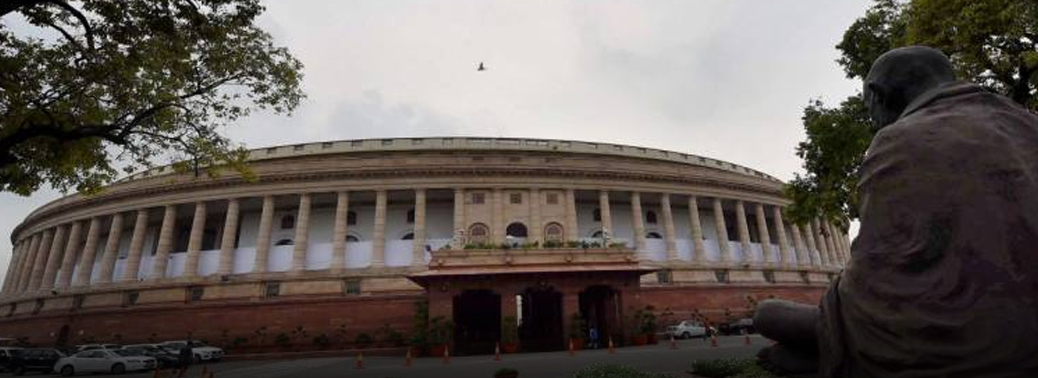
What to study?
- In the backdrop of a number of Bills having been passed without scrutiny, why are parliamentary standing committees necessary?
Background:
- Eleven of the 22 Bills introduced in the ongoing session of Parliament have been passed, which makes it a highly productive session after many years.
- But these Bills have been passed without scrutiny by Parliamentary Standing Committees, their purpose being to enable detailed consideration of a piece of legislation.
- After the formation of the 17th Lok Sabha, parliamentary standing committees have not been constituted as consultations among parties are still under way.
- Partly as a result of this, the Bills were passed without committee scrutiny. They were discussed in Parliament over durations ranging between two and five hours.
Why Are Parliamentary Committees Necessary?
- In a parliamentary democracy, Parliament has broadly two functions, which are law-making and oversight of the executive branch of the government.
- Committees are an instrument of Parliament for its own effective functioning.
- Given the volume of legislative business, discussing all Bills under the consideration of Parliament in detail on the floor of the House is impossible.
- In principle, the assumption is that the smaller cohort of lawmakers, assembled on the basis of the proportional strength of individual parties and interests and expertise of individual lawmakers, could have more open, intensive and better-informed discussions.
- Committee meetings are ‘closed door’ and members are not bound by party whips, which allows them the latitude for a more meaningful exchange of views as against discussions in full and open Houses where grandstanding and party positions invariably take precedence.
- Disruptive changes in technology and the expansion of trade, commerce and economy in general throw up new policy challenges that require a constant reform of legal and institutional structures.
- While law-making gets increasingly complex, lawmakers cannot infinitely expand their knowledge into ever expanding areas of human activities. For instance, we live in an era of metadata being generated by expanding connectivity.
- The laws and regulations that are required to govern a digital society cannot be made without highly specialised knowledge and political acumen.
- Members of Parliament may have great acumen but they would require the assistance of experts in dealing with such situations. It is through committees that such
- expertise is drawn into law-making. Executive accountability to the legislature is enforced through questions in Parliament also, which are answered by ministers.
- However, department standing committees go one step further and hear from senior officials of the government in a closed setting, allowing for more detailed discussions. This mechanism also enables parliamentarians to understand the executive processes closely.
What Are the Types of Committees?
- Broadly, they are of two kinds: ad hoc committees and the permanent committees.
- Ad hoc committees are appointed for a specific purpose and cease to exist when they finish the task assigned to them and submit a report.
- The principal ad hoc committees are the select and joint committees. There are some other ad hoc committees too, but they handle different issues such as privileges, ethics, security, government assurances and food management.
- Besides, Parliament has permanent committees called the standing committees. Most Bills, after their introduction, get referred to department-related standing committees, which are permanent and regular bodies.
- The idea behind these committees, first set up in 1993, is that with Parliament working for a limited day in a year, Bills, which deal with technical and policy matters, need to be discussed in detail, after taking the view of diverse stakeholders and experts.
- While referring a Bill to a standing committee, the Chairman or the Speaker may specify the time within which it has to submit its report.
The joint committees and standing committees become defunct after the dissolution of the Lok Sabha.
What Are Its Origins?
- As is the case with several other practices of Indian parliamentary democracy, the institution of Parliamentary Committees also has its origins in the British Parliament.
- The first Parliamentary Committee was constituted in 1571 in Britain.
- The Public Accounts Committee was established in 1861. In India, the first Public Accounts Committee was constituted in April 1950.
- According to P.D.T. Achary, former Secretary General of the Lok Sabha, “The practice of regularly referring bills to committees began in 1989 after government departments started forming their own standing committees.
- Prior to that, select committees or joint committees of the houses were only set up to scrutinise in detail some very important bills, but this was few and far between.
AMENDMENT TO RIGHT TO INFORMATION (RTI) ACT
20, Jul 2019
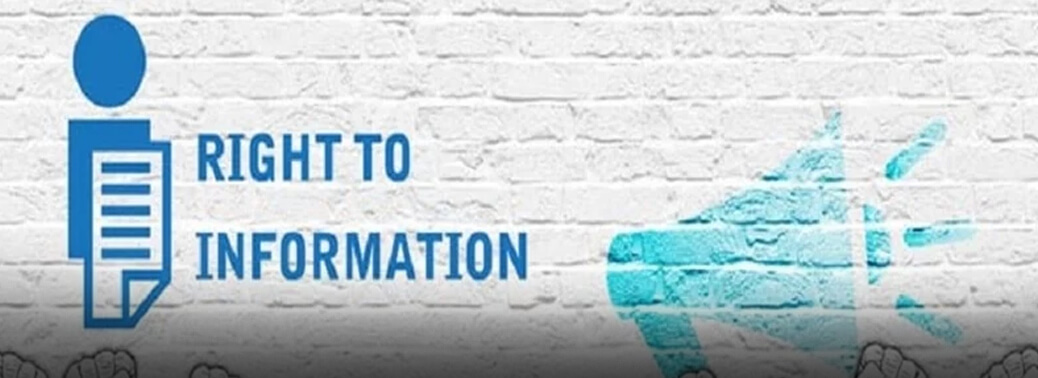
- Context- Government introduces Bill to amend the RTI Act.
Provisions of The Proposed Bill:
Tenure of CIC and IC:
- The Chief Information Commissioner (CIC) and Information Commissioner (ICs) have a tenure of five years. The Bill proposes that the tenure of the CICs and ICs should depend on the Central Government.
Salary of CIC and IC:
- The salaries of CIC and ICs in the Centre are equivalent to salaries of Chief Election Commissioner and Election Commissioners in the Centre.
- Similarly, the salaries of CIC and ICs in states are equivalent to salaries of Chief Election Commissioner and Election Commissioners in the state.
- The new bill says that the salaries of CIC and ICs both in Centre and State must be decided by the Central Government.
Provision of Pension:
- The Act says that if the CIC and ICs both in State and Centre are receiving a pension or any other retirement benefits for previous government service, then their salaries are reduced by an amount equal to the pension. The amendment wants to remove these provisions.
- In the above context, the government service means, services under the central government, state government, corporation established under a central or state law, or company-owned or controlled by the central or state government.
Opposing Arguments:
- Move will take away independence of the Commissions, highest adjudicating bodies in the matter of the RTI Act.
- The efficacy of the RTI Act, allowing any Indian to seek information from any authority on the payment of Rs 10, hinges closely on the independence of the CIC and its equivalents in the states — state information commissions that adjudicate the matter in case information is not furnished to applicants within the parameters of the law.
- Government has brought about the bill in complete secrecy and there have been no public consultations on the bill.
RTI Act 2005
Background:
- The Right to Information Act 2005 or RTI 2005, came into force in order to encourage a corruption free, transparent and accountable form of government in which the citizens feel a sense of power and safety.
- RTI 2005 is applicable to all states of India except for Jammu and Kashmir.
Provisions:
- Under the Act, a citizen can demand from any public or government authority any information (as long as it does not pertain to national security and defence or some personal information) and the authority is supposed to respond within a period of 30 days to the application.
RTI Act Information Exclusions:
- Under section 8 of the RTI Act, 2005 Govt/public authorities are exempted from sharing following information:
- Affecting the Sovereignty, Integrity, Security, Strategic interest, Scientific interest or Economic interest of the State of India
- Affecting relation of State of India with foreign State
- Forbidden by any court of law in India
- Breach of privilege of State assembly or Parliament of India
- Intellectual Property Rights, Copyright, Commercial Confidence or Trade Secrets
- Available to a person in his fiduciary relationship, unless disclosure is required in larger public interest
- Received from foreign Government
- Risk the life or physical safety of any person
- Impact or obstruct legal investigation
- Minutes of Union Cabinet meeting including discussion between Ministers, Secretaries or Govt officers
- Personal information i.e. breach of Privacy
Constitutional Validation:
- Under section article 19 (1) (a), the Supreme Court of India has held that rights to freedom of speech and expression includes the rights to information. According to this the right to information is implicit in the right to freedom of speech.
- All the citizens must have the right to get correct information in every sphere of their life. The apex court of India has ensured this right in the case of state of Uttar Pradesh” Vs Raj Narain (1974) 4 SCC 428. It is impossible for any democratic country to stand without the right to information for its citizen.
International Conventions:
- The United Nation Organization (UN proclaimed a Universal Declaration of Human Rights in 1948. This was followed by The International Convenant On Civil and Political Rights.
- Article 19 of the covenant declares that – “Everyone has the’ rights of freedom of opinion and expression the rights includes freedom to hold opinion without interference; and to seek, and receive and import information and ideas through any media and regardless of frontiers”.
DAM SAFETY
18, Jul 2019
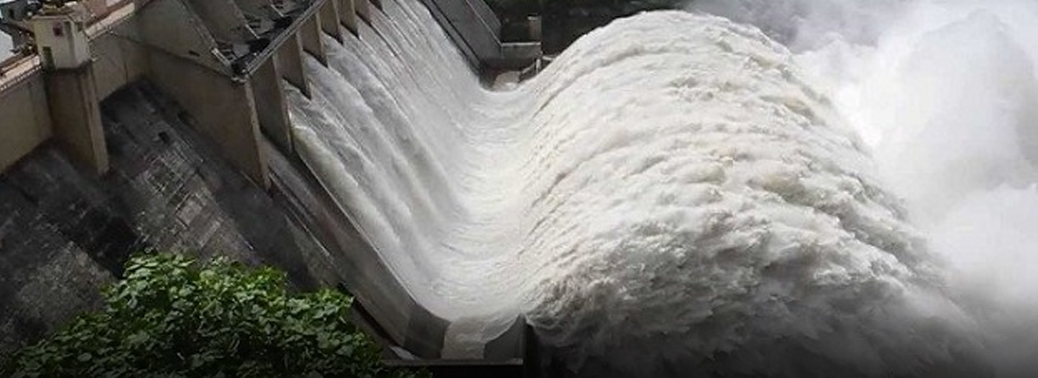
Context:
- The Centre to reintroduce the Dam Safety Bill, 2019 in Parliament.
Basic framework based on 2018 Bill: What is Bill about:
- The Bill provides for the surveillance, inspection, operation, and maintenance of specified dams across the country. The Bill also provides for the institutional mechanism to ensure the safety of such dams.
Applicability of the Bill:
- The Bill applies to all specified dams in the country.
- These are dams with:
- 1. Height more than 15 metres, or
- 2. Height between 10 metres to 15 metres and subject to certain additional design and structural conditions.
National Committee on Dam Safety:
- The Bill provides for the constitution of a National Committee on Dam Safety.
- The Committee will be chaired by the Chairperson, Central Water Commission.
All other members will be nominated by the Central Government, and include:
- 1. Up to 10 representatives of the central government,
- 2. Up to seven representatives of the state governments (by rotation), and
- 3. Up to three dam safety experts.
Functions of the Committee include:
- Formulating policies and regulations regarding dam safety standards and prevention of dam failures, and
- Analysing causes of major dam failures and suggesting changes in dam safety practices.
National Dam Safety Authority:
- The Bill provides for a National Dam Safety Authority.
- The Authority will be headed by an officer not below the rank of an Additional Secretary who will be appointed by the central government.
Functions of the Authority include:
- 1. Implementing the policies formulated by the National Committee on Dam Safety,
- 2. Resolving issues between State Dam Safety Organisations (SDSOs), or between a SDSO and any dam owner in that state,
- 3. Specifying regulations for inspection and investigation of dams, and
- 4. Providing accreditation to agencies working on construction, design, and alteration of dams.
Offences and penalties:
- The Bill lays the onus of the dam safety on the dam owner and provides for penal provisions for willful “commission and omission of certain acts.
Critical Issues:
- It does not ensure transparency and accountability in dam management.
- Karnataka, Kerala, Tamil Nadu and Odisha have opposed the Bill on the grounds that it encroaches upon the sovereignty of States to manage their dams.
- There is no inclusion of compensation to the victims of dam failures or dam incidents, which was a key recommendation of the June 2011 report of the Parliamentary Standing Committee (15th Lok Sabha) on “Dam Safety Bill, 2010”.
INTER-STATE RIVER WATER DISPUTES (AMENDMENT) BILL, 2019
14, Jul 2019
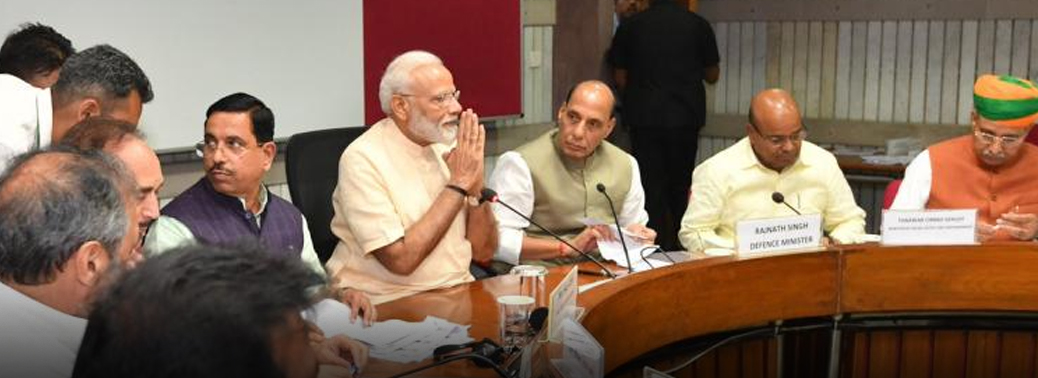
Why in News?
- Cabinet approves Inter-State River Water disputes (Amendment) Bill, 2019. The Bill seeks to amend the Inter State River Water Disputes Act, 1956 with a view to streamline the adjudication of inter-state river water disputes and make the present institutional architecture robust.
Features of the bill:
- The Bill requires the central government to set up a Disputes Resolution Committee (DRC), for resolving any inter-state water dispute amicably. The DRC will get a period of one year, extendable by six months, to submit its report to the central government.
- Members of the DRC will be from relevant fields, as deemed fit by the central government.
- The Bill proposes to set up an Inter-State River Water Disputes Tribunal for adjudication of water disputes, if a dispute is not resolved through the DRC. This tribunal can have multiple benches.
- All existing tribunals will be dissolved and the water disputes pending adjudication before such existing tribunals will be transferred to this newly formed tribunal.
- The tribunal shall consist of a Chairperson, Vice-Chairperson, and not more than six nominated members (judges of the Supreme Court or of a High Court), nominated by the Chief Justice of India.
MOB LYNCHING
12, Jul 2019
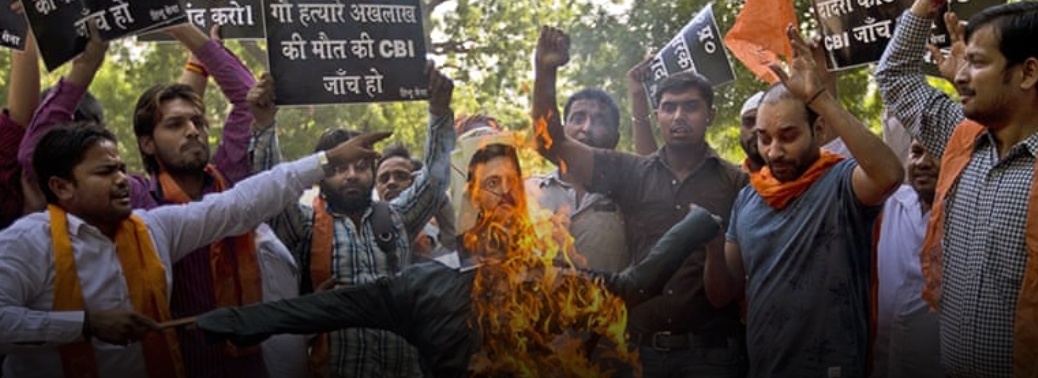
- Context– The Uttar Pradesh State Law Commission has drafted a stringent law to deal with increasing incidents of mob lynching.
Stats of Lynching
- Around 50 incidents of mob violence have taken place in Uttar Pradesh between 2012 and 2019.
Recommendation:
- The panel has recommended jail terms ranging from seven years to life imprisonment for assailants and up to three years in prison for police officers and district magistrates who neglect their duty.
- taking suo motu cognisance of incidents of mob lynching, said the existing law was not sufficient and there was a need to not just punish those who commit the crime but to also hold authorities responsible for dereliction of duty if such attacks occur under their watch.
Terms Define
- The draft law defines terms such as “lynching”, “mob”, “victim”, “offensive material” and “hostile environment” created against the victim or family, including boycott of trade, public humiliation, depriving people of their fundamental rights, and forcing them to leave their homes.
Compensation
- Law should contain provisions on providing compensation to a victim’s family for grievous injury or loss of life and property, and rehabilitation of the victims and their families.
Courts Stand:
- July 2018 judgment laying down guidelines to prevent mob lynching.
- The top court had decried cases of lynching and cow vigilantism and said mobocracy cannot be allowed in society. “No citizen can take law into his hands nor become law unto himself,
- They had also proposed a set of preventives, remedial and punitive measures to curb instances of lynching.
- The court had ordered the appointment of nodal police officers in all districts, efficient patrolling in areas where there was possibility of such incidents, and completion of trial in lynching cases within six months.
Guideline by Supreme Court in Case of Lynching:
- The states shall designate a senior police officer not below the rank of police superintendent as nodal officer in each district.
- These officers will set up a task force to be assisted by one DSP-rank officer for taking measures to prevent mob violence and lynching.
- The task force will gather intelligence reports on people likely to commit such crimes or who are involved in spreading hate speeches, provocative statements and fake news
- The state governments shall immediately identify districts, sub-divisions and villages where instances of lynching and mob violence have been reported in the recent past.
- The process of identification should be done within a period of three weeks from the date of the judgment.
Remedial Measures:
- Despite the preventive measures taken by the state police, if it comes to the notice of the local police that an incident of lynching or mob violence has taken place, the jurisdictional police station shall immediately lodge an FIR.
Deterrent Punishment:
- The trial court must ordinarily award the maximum sentence under the provisions of the IPC.
Punitive Measures:
- Departmental action must be taken against police or district officials who fail to act against the perpetrators. Such failure will be considered as an act of deliberate negligence and/or misconduct for which appropriate action must be taken. The action shall be taken to its logical conclusion preferably within six months.
Sociology of lynching cases:
- The victims are always those living on the margins of the society.
- The cow-vigilantes are motivated by an urge to impose hegemony of values and cultural homogeneity, by obfuscating diverse practices and beliefs.
- They dare to defy the process of law, as their acts are powered by majoritarian sentiments.
- This is not an issue within the narrow confines of law and order; it plays out on a broader canvass of socio-cultural dynamics.
- It is the tussle between rule of law and belief-systems.
- It is the friction between the privileges of the mainstream and the struggles of survival by the marginalized.
Conclusion:
- This is a complex issue which raises the conundrum of whether a democratic government should merely reflect majoritarian will or should pursue higher values of equality and justice.
INTER STATE RIVER WATER DISPUTES BILL
11, Jul 2019
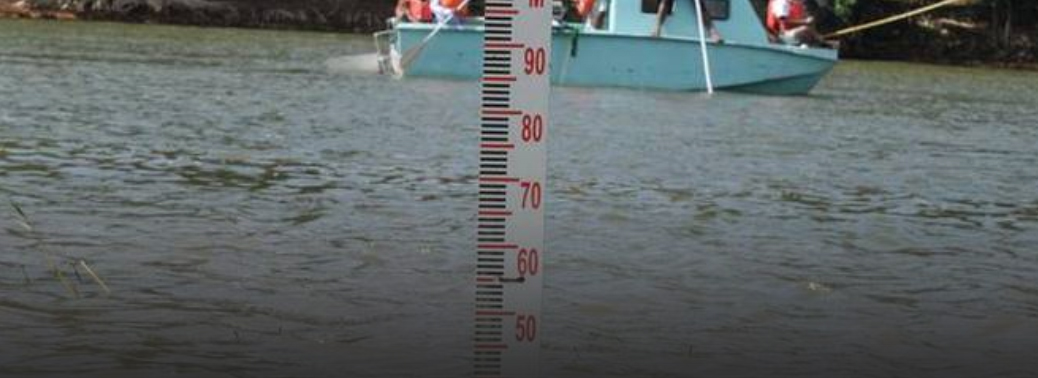
Features:
- Bill seeks to amend the Inter State River Water Disputes Act, 1956 to streamline the adjudication of inter State river water disputes.
- A key feature of the Bill is the constitution of a single tribunal with different Benches, and the setting of strict timelines for adjudication.
- When any request under the Act is received from any State Government in respect of any water dispute on the interState rivers and the Central Government is of the opinion that the water dispute cannot be settled by negotiations, the Central Government constitutes a Water Disputes Tribunal for the adjudication of the water dispute.
- The Bill also proposes a Dispute Resolution Committee set up by the Central Government for amicably resolving interState water disputes within 18 months.
- Any dispute that cannot be settled by negotiations would be referred to the tribunal for its adjudication.
- The Bill can also affect the composition of the members of various tribunals, and has a provision to have a technical expert as the head of the tribunal.
Water and Constitution of India
Water is a State subject
- Entry 17 of State List deals with water i.e. water supply, irrigation, canal, drainage, embankments, water storage and water power.
- Entry 56 of Union List gives power to the Union Government for the regulation and development of inter-state rivers and river valleys to the extent declared by Parliament to be expedient in the public interest.
Article 262:
- Parliament may by law provide for the adjudication of any dispute or complaint with respect to the use, distribution or control of the waters of, or in, any inter-State river or river valley.
- Parliament may, by law provide that neither the Supreme Court nor any other court shall exercise jurisdiction in respect of any such dispute or complaint.
- Laws Enacted by Parliament
- River Board Act, 1956
- Inter-State Water Dispute Act, 1956
- River Water sharing Tribunals
- Krishna Water Disputes Tribunal II (2004) – Karnataka, Telengana,Andra Pradesh, Maharashtra
- Mahanadi Water Disputes Tribunal (2018) – Odisha& Chattisgarh
- Mahadayi Water Disputes Tribunal (2010)- Goa,Karnataka, Maharashtra
- Ravi& Beas Water Tribunal (1986)- Punjab, Haryana,Rajasthan
- Vansdhara Water Disputes Tribunal (2010)- Andra Pradesh & Odisha.
Issues with Inter-State Water Dispute Act, 1956:
- Though Award is final and beyond the jurisdiction of Courts, either States approach Supreme Court under Article 136 (Special Leave Petition) or private persons approach Supreme Court under Article 32 linking issue with the violation of Article 21 (Right to Life).
- The composition of the tribunal consists of persons only from the judiciary and not multidisciplinary and it.
Conclusion:
- In a developing country like India, the interstate river water dispute must be resolved quickly so that water resources could be utilized and harnessed properly for economic development.
- One of the measures could be to declare all the major rivers as national property and national schemes under the central assistance should he launched for the development of their total command area with partial involvement of the concerned states.
CODE ON OCCUPATIONAL SAFETY, HEALTH AND WORKING CONDITIONS BILL, 2019
11, Jul 2019

- Context- Union Cabinet on, paving the way for Code on Occupational Safety, Health and Working Conditions Bill, 2019 introduction in Parliament
About:
- This proposal would enhance the coverage of the safety, health and working conditions provisions manifold as compared to the present scenario.
- The New Code has been drafted after amalgamation, simplification and rationalisation of the relevant provisions of the 13 Central Labour Acts:
- The Factories Act, 1948;
- The Mines Act, 1952; The Dock Workers (Safety, Health and Welfare) Act, 1986;
- The Building and Other Construction Workers (Regulation of Employment and Conditions of Service) Act, 1996;
- The Plantations Labour Act, 1951;
- The Contract Labour (Regulation and Abolition) Act, 1970;
- The Inter-State Migrant workmen (Regulation of Employment and Conditions of Service) Act, 1979;
- The Working Journalist and other Newspaper Employees (Conditions of Service and Misc. Provision) Act, 1955;
- The Working Journalist (Fixation of rates of wages) Act, 1958;
- The Motor Transport Workers Act, 1961;
- Sales Promotion Employees (Condition of Service) Act, 1976;
- The Beedi and Cigar Workers (Conditions of Employment) Act, 1966; and
- The Cine Workers and Cinema Theatre Workers Act, 1981. After the enactment of the Code, all these Acts being subsumed in the Code will be repealed.
Benefits:
- Safety, Health, welfare and improved Working Conditions are pre-requisite for well-being of the worker and also for economic growth of the country as healthy workforce of the country would be more productive and occurrence of less accidents and unforeseen incidents would be economically beneficial to the employers also.
Feature of Code:
- Code enhances the ambit of provisions of safety, health, welfare and working conditions from existing about 9 major sectors to all establishments having 10 or more employees.
- The bill provides for that. Regular medical check-up of workers would be made mandatory.
NATIONAL TRANSLATION MISSION
10, Jul 2019
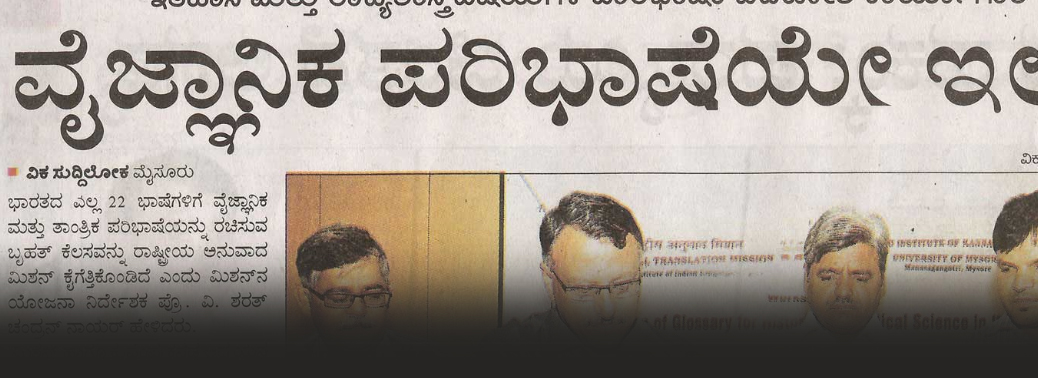
National Translation Mission:
- The National Translation Mission (NTM) is a scheme launched in 2008 which is being implemented through the Central Institute of Indian Languages (CIIL), Mysore to establish translation as an industry in general and to facilitate higher education by making knowledge texts accessible to students and academics in Indian languages.
- Under the scheme, the books of knowledge texts mostly text books of various subjects prescribed in Universities and Colleges are being translated in all Languages of the 8th Schedule of the Constitution of India. National Translation Mission has so far published 40 Knowledge Text translations in 16 languages (Assamese, Bengali, Bodo, Dogri, Hindi, Kannada, Maithili, Malayalam, Manipuri, Marathi, Nepali, Odia, Punjabi, Tamil, Telugu and Urdu).
- NTM has published 6 bilingual dictionaries (English to Indian languages) in collaboration with Pearson Education, India.
The Mission has trained about 1400 budding translators through 3-week intensive courses (21 days) on ‘Introduction to translation’ and ‘Research Methodology in Translation’
MARITAL RAPE
10, Jul 2019
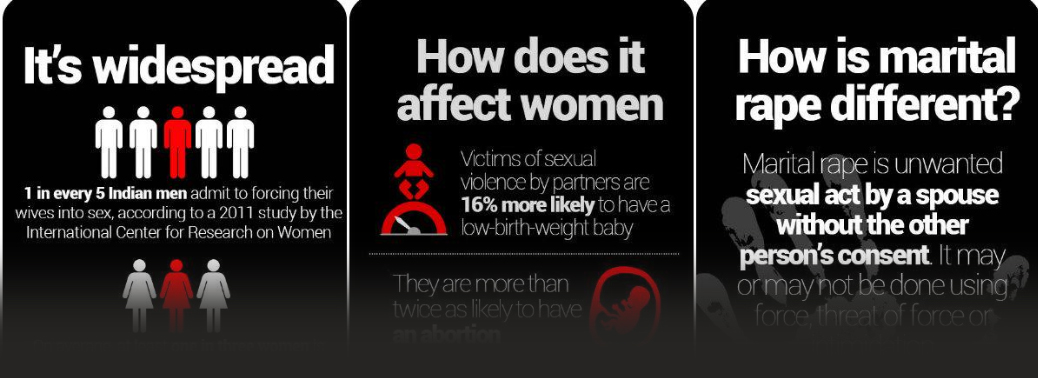
Context:
- Delhi High Court said that court cannot direct the government to frame laws as it is the domain of the legislature and not the judiciary.
- It said the issue of marital rape has to be dealt by the legislature and not the judiciary.
What is Marital Rape?
- Marital rape is any unwanted Sexual Acts by a Spouse or Ex-Spouse, committed without consent and/or against a person’s will, obtained by force, or threat of force, intimidation, or when a person is unable to consent
Sociology of Not Criminalising Marital Rape:
- Mainstream perception that marriage gives the husband constant consent for sexual intercourse.
- Women, therefore, end up being perceived as baby-making machines where their right to bodily autonomy and reproductive rights are inconceivable and preposterous.
- According to Morton Hunt, an American psychologist “the typical marital rapist is a man who still believes that husbands are supposed to “rule” their wives.
- The inability of law and legal institutions to deal with marital rape exposes the limits of the law. It shows that the law predominantly serves the aspirations of the dominant class, at the expense of the marginalised and weak.
Other Related Laws:
- Section 376-A was added in the Indian Penal Code, 1860, which criminalized the rape of a judicially separated wife.
Law Commission:
- Law Commission in its 42nd Report advocated the inclusion of sexual intercourse by a man with his minor wife as an offence it was seen as a ray of hope.
- The Joint Committee that reviewed the proposal dismissed the recommendation.
Arguments against Criminalization of Marital Rape:
- Due to the near impossibility of proving marital rape, its criminalization would only serve as an increased burden to the already overburdened legal system.
Dissatisfied, angry, vengeful wives might charge their innocent husbands with the offence of marital rape. - There is an implied consent to have sexual intercourse when a woman marries a man.
- Marital rape laws would destroy many marriages by preventing any possible reconciliation.
Marital Rape and Constitution:
Article 21 Right to life:
- The judicial interpretation has expanded the scope of Article 21 of the Constitution of India by leaps and bounds and right to live with human dignity 21 is within the ambit of this article.
- Marital rape clearly violates the right to live with dignity of a woman and to that effect, it is submitted, that the exception provided under Section 375 of the Indian Penal Code, 1860 is violation of Article 21 of the Constitution.
Right to Equality:
- Exception under Section 375 of the Indian Penal Code, 1860 discriminates with a wife when it comes to protection from rape.
Conclusion:
- It is conceded that changing the law on sexual offences is a formidable and sensitive task, and more so, in a country like India, where there is a contemporaneous presence of a varied and differentiated system of personal and religious laws that might come into conflict with the new amendments in the statutory criminal law.
- The immediate need is criminalization of marital rape under the Indian Penal Code. But, mere declaration of a conduct as an offence is not enough.
Something more is required to be done for sensitizing the judiciary and the police. - There is also a need to educate the masses about this crime, as the real objective of criminalizing marital rape can only be achieved if the society acknowledges and challenges the prevailing myth that rape by one’s spouse is inconsequential.
WITNESS PROTECTION SCHEME
09, Jul 2019
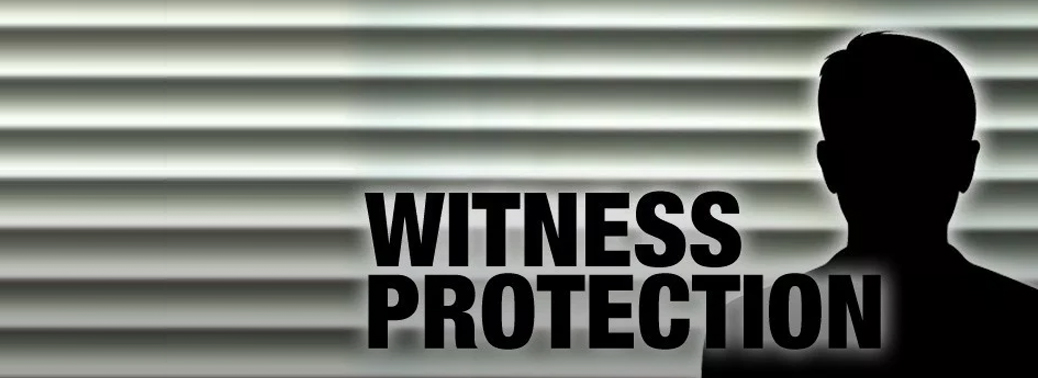
- Launched by Odisha government
- Aims to provide security to witnesses facing threat during the course of a legal battle.
Features:
- District •level standing committee, chaired by a district and sessions judge, with the district police head as its member and the head of the prosecution in the district as its member secretary, will take a call on the need for protection.
- The district police chief will submit a report with regard to the seriousness and credibility of the threat to the witness or his/her family members if the person applies in a prescribed form.
- The report will detail the nature of the threat to the witness or his/her family members, their reputation or property.
- Besides, the intent and motive of the person issuing the threat and the resources available with him/her to execute it will figure in the analysis.
- The threat analysis report, prepared with “full confidentiality will reach the competent authority “within five working days of its order for inquiry.
- The Witness Protection Cell will then ensure that the identities of the witness and his/her family members, including names, parentage, occupation, address and digital footprints, are fully protected.
AADHAAR AND OTHER LAWS (AMENDMENT) BILL, 2019
09, Jul 2019
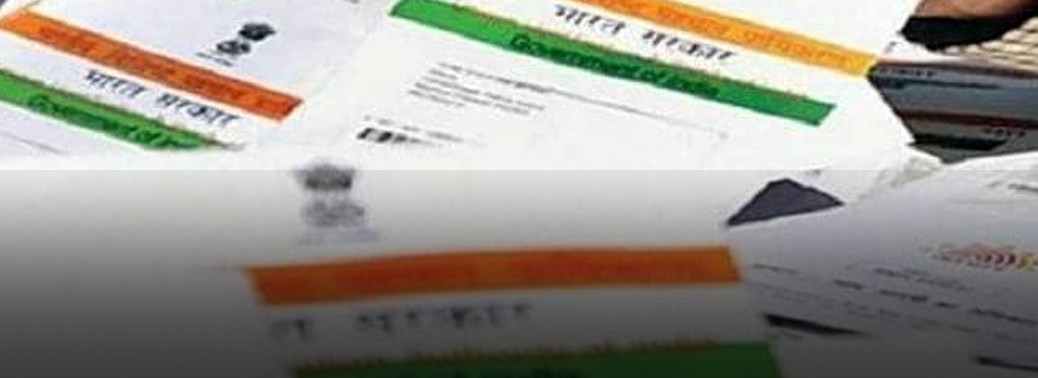
Context- Parliament cleared the Aadhaar and Other Laws (Amendment) Bill, 2019
Features:
- which allows voluntary use of Aadhaar as proof of identity to open bank accounts and get mobile phone connections.
- The law ensures no Individual is ever denied any service for not having or producing Aadhaar for authentication.
- An Aadhaar holder can now opt for offline verification through QR code with consent.
- It had also barred private companies from using the unique identity number for authenticating customers.
- The amendments in the law will enable the Unique Identification Authority of India (UIDAI)—the authority responsible for issuing Aadhaar numbers—to hold back the misuse of 12 digit identification number.
- UIDAI can also impose a penalty of up to ₹1 crore if an entity fails to comply with the Aadhaar law and does not provide information sought by UIDAI.
NATIONAL INVESTIGATION AGENCY (AMENDMENT) BILL, 2019
09, Jul 2019
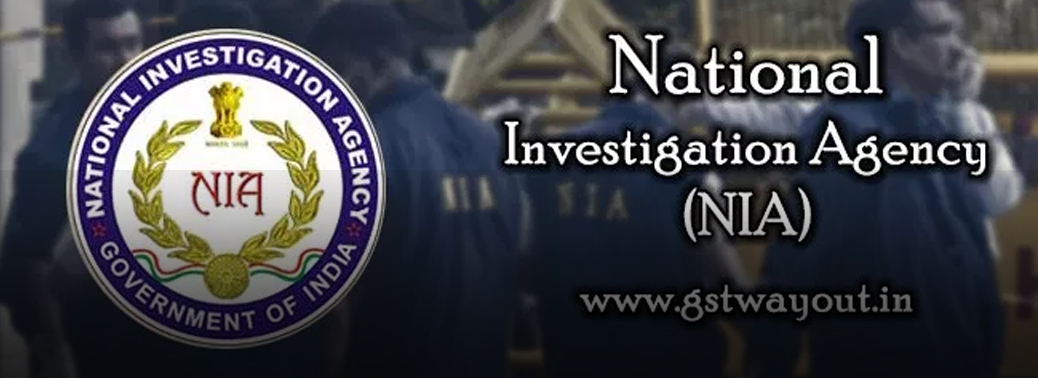
Context- Union government on Monday introduced the National Investigation Agency (Amendment) Bill, 2019 in Lok Sabha
Features of Bill:
- A Bill seeking to further strengthen the National Investigation Agency (NIA) by giving it powers to probe terror attacks targeting Indians and Indian interests on foreign soil.
- legislation will also allow the NIA probe Cyber-Crimes and cases of human trafficking.
- agency will be empowered to conduct investigation in any part of the world if any terror attack targeting Indians or Indian interests takes place.
National Investigation Agency (NIA):
- The NIA was set up in 2009 in the wake of the Mumbai terror attack
- NIA Act was enacted in 2008 and the National Investigation Agency (NIA) was born.
- At present NIA is functioning as the Central Counter Terrorism Law Enforcement Agency in India.
UNLAWFUL ACTIVITIES (PREVENTION) AMENDMENT BILL, 2019
09, Jul 2019
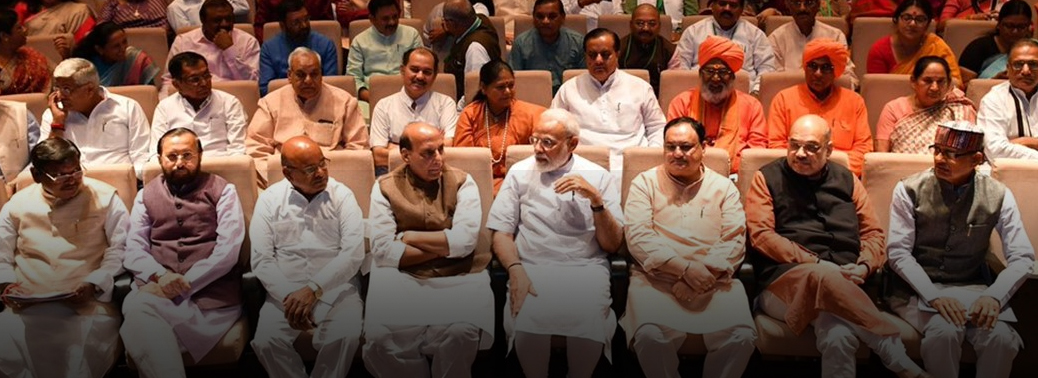
Context– The UAPA Bill that seeks to allow an individual suspected to have terror links to be designated a terrorist
Features:
- The Bill, seek “to introduce fourth schedule to add or remove the name of individual terrorists. will allow the Central government to designate individual terrorist and bring in embargo on arms/assets seizures. The individual however can appeal against the inclusion of his/her name and seek a hearing before the review committee, constituted by the Central government under UAPA.
Issues with new UAPA Bill:
- In the name of tackling terror, fundamental rights of an individual can be foregone
Issues already with Unlawful Activities Prevention Act, 1967 (UAPA).
- It casts such a wide net of offences that it makes all kinds of legitimate, constitutionally protected activity an offence: the police can choose who they want to prosecute, when and for what reason.
- It allows for persons to be held in custody for six months before they get to know the case against them. Bail is so stringent as to be almost unavailable, this is an affront to the ‘dignity’ and the ‘presumption of innocence’ that our Constitution entitles all of us to.
- It reverses the presumption of innocence and presumes guilt, a guarantee of wrongful imprisonment and false convictions.
SEDITION LAW
06, Jul 2019
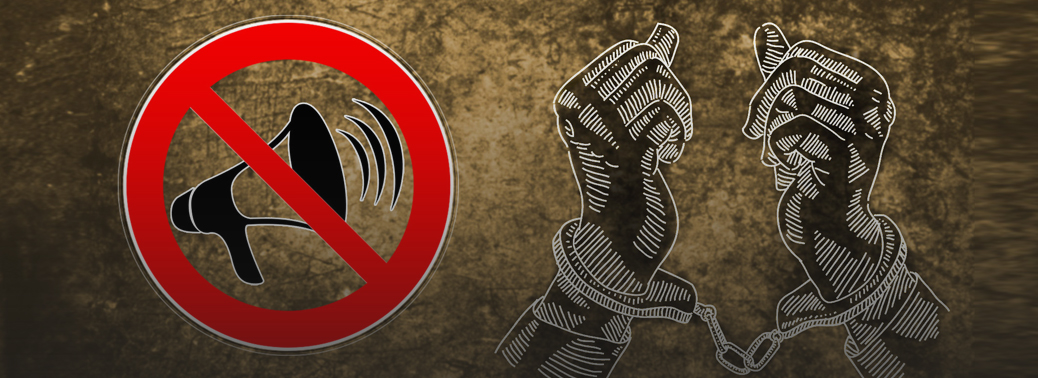
Context– MDMK general secretary Vaiko was sentenced to a prison term of one year by a special court for Sedition.
About:
- Section 124-A in the Indian Penal Code, named ‘Sedition’, explains sedition in wide and magnanimous terms.
- It says ‘Whoever, by words, either spoken or written, or by signs, or by visible representation, or otherwise, brings or attempts to bring into hatred or contempt, or excites or attempts to excite disaffection towards the Government established by law in India’ shall be punished with life imprisonment
- The explanations which the Indian Penal Code gives are that ‘the expression ‘disaffection’ includes disloyalty and all feelings of hate.
Disqualification Under Representation of the People Act, 1951:
- Under Section 8 of the Representation of the People Act, 1951 Disqualification for Conviction for 2 years or more than 2 years imprisonment.
PRIVILEGE MOTION
05, Jul 2019
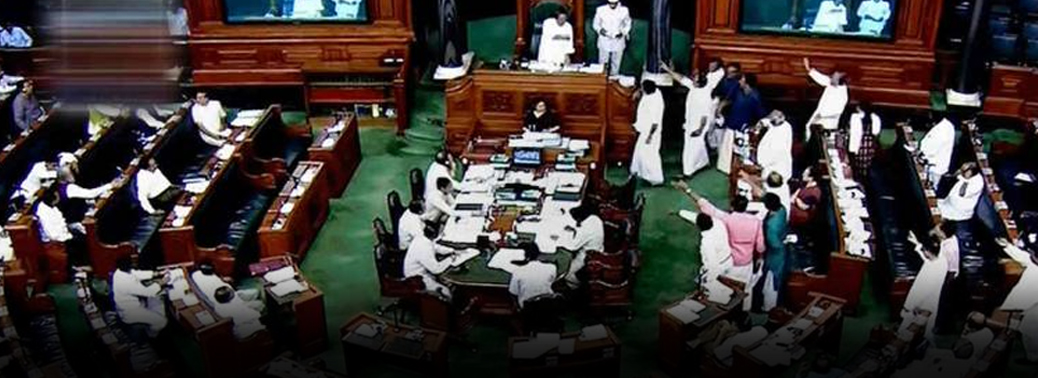
Context: Recently a Lok Sabha MP has moved a breach of privilege motion in the Lok Sabha against a private Hindi news channel and its editor.
About Privilege Motion:
- A privilege motion is moved against breach of Parliamentary Privileges.
- Parliamentary privileges are certain rights and immunities enjoyed by MPs, MLAs and MLCs, individually and collectively, so that they can effectively discharge their functions.
- When a breach of privilege is found, then an MP can move a privilege motion against those being held guilty of breach.
- Both Lok Sabha and the Rajya Sabha reserves the right to punish any action of contempt (Not Necessarily Breach of Privilege) which is against its authority and dignity.
Source:
- The rules governing privilege motion are mentioned as Rule 222 in Chapter 20 of the Lok Sabha Rule Book and as Rule 187 in Chapter 16 of the Rajya Sabha Rule Book.
- According to the rules, an MP may raise a question of breach of privilege with the Speaker or the Chairperson, notices for which have to be sent to them.
Examining Authority:
- The first level of scrutiny that a privilege motion has to go through is that of the Speaker/Chairperson (Lok Sabha/Rajya Sabha).
- The Speaker/Chairperson may decide on the privilege motion at their own discretion or they may refer it to a Parliamentary Committee.
- If the Speaker/Chairperson admits the motion, then the concerned member is given an opportunity to explain themselves by making a short statement.
Committee of Privileges:
- This Committee consists of 15 members (10 members in case of Rajya Sabha) Nominated by the Speaker (Chairman in case of Rajya Sabha).Its function is to examine every question involving breach of privilege of the House or of the members of any Committee thereof referred to it by the House or by the Speaker (Quasi -Judicial nature).
- It determines with reference to the facts of each case whether a breach of privilege is involved and makes suitable recommendations in its report.
FREE LEGAL AID
01, Jul 2019
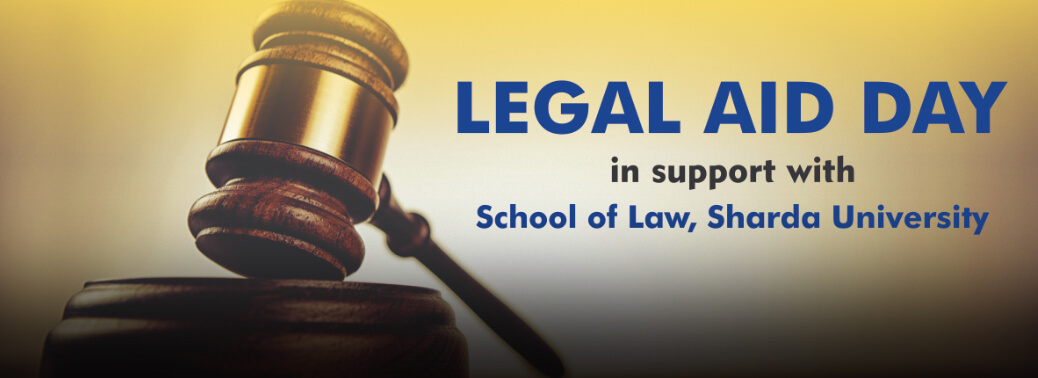
- Article 39 A of the Constitution of India provides for free legal aid to the poor and weaker sections of the society, to promote justice on the basis of equal opportunity. Articles 14 and 22(1) of the Constitution also Make it obligatory for the State to ensure equality before law.
National Legal Services Authority (NALSA)
- National Legal Services Authority (NALSA) is a statutory body constituted under the Legal Services Authorities Act, 1987to provide free Legal Services to the weaker sections of the society.
- The Chief Justice of India is the Patron-in-Chief and the Senior most Judge of the Supreme Court of India is the Executive Chairman of the Authority.
- The Legal Services Authorities Act establishes statutory legal services authorities at the National, State and District level.
It makes provisions in relation to Lok Adalat.
The main object of the Lok Adalat is to provide quick justice at less expense.
Objective:
- The principal objective of NALSA is to provide free and competent legal services to the weaker sections of the society and to ensure that opportunities for securing justice are not denied to any citizen by reason of economic or other disabilities, and to organize Lok Adalats for amicable settlement of disputes.
- To strengthen the system of Lok Adalats and other Alternate Dispute Resolution mechanisms.
- To organize legal awareness camps in the rural areas.
Who is Entitled to Free Legal Services:
- The sections of the society as enlisted under Section 12 of the Legal Services Authorities Act are entitled for free legal services, they are:
- (a) A member of a Scheduled Caste or Scheduled Tribe;
- (b) A victim of trafficking in human beings or begar as referred to in Article 23 of the Constitution;
- (c) A woman or a child;
- (d) A mentally ill or otherwise disabled person;
- (e) A person under circumstances of undeserved want such as being a victim of a mass disaster, ethnic violence, caste atrocity, flood, drought, earthquake or industrial disaster; or
- (f) An industrial workman; or
- (g) In receipt of annual income less than rupees nine thousand or such other higher amount as may be prescribed by the State Government, if the case is before a court other than the Supreme Court, and less than rupees twelve thousand or such other higher amount as may be prescribed by the Central Government, if the case is before the Supreme Court. Other Laws and International Conventions providing free legal aid. The Code of criminal Procedure and the Code of Civil Procedure also contain provisions in relation to the free legal aid.
- Section 304 of the Criminal Procedure Code provides that where in a trial before the Court of Session, the accused is not represented by a pleader and where it appears to the Court that the accused has not sufficient means to engage a pleader; the Court shall assign a pleader for his defence at the expense of the State
- International Covenant on Civil and Political Rights also under Article14 (3)(d) guarantees to everyone: “Right to be tried in his presence, and to defend himself in person or through legal assistance of his own choosing, in any case where the interests of justice so require, and without payment by him in any such case if he does not have sufficient means to pay for it” Issues in free legal Aid lack of legal awareness. People are not aware of rights and protection available under the law. people don’t have faith over the services of legal aid counsel (LAC) under the free legal aid services due to a variety of factors.
Way Forward:
- In a democracy, where rule of law is supreme; it is essential to ensure that even the weakest amongst the weak, poorest among the poor, in the country does not suffer injustice arising out of any abrasive action on the part of State or private person.
- India’s per capita lawyer ratio is better than most countries in the world and this need to be utilised.
THE PROTECTION OF CHILDREN FROM SEXUAL OFFENCES (POCSO) ACT, 2012
01, Jul 2019
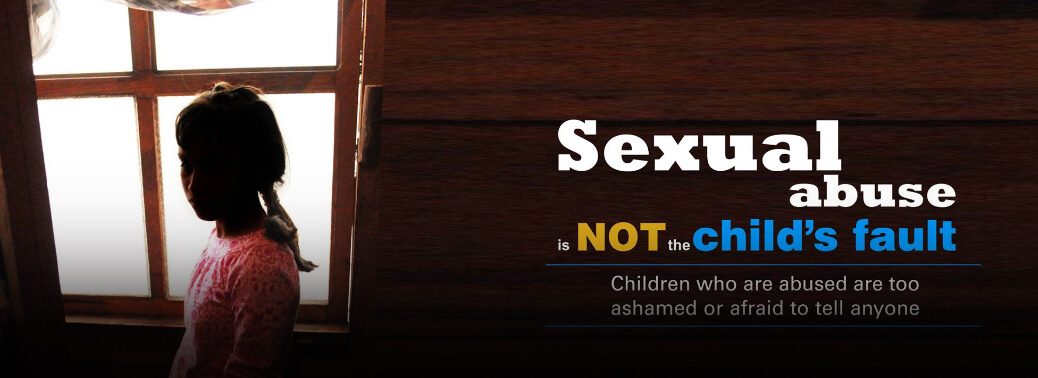
About POCSO Act:
- The Act seeks to protect children from offences such as sexual assault, sexual harassment, and pornography.
- The Act defines a child as any person below eighteen years of age.
- It defines different forms of sexual abuse, including penetrative and non-penetrative assault, as well as sexual harassment and pornography, and deems a sexual assault to be “aggravated” under certain circumstances, such as when the abused child is mentally ill or when the abuse is committed by a person in a position of trust or authority vis-a-vis the child, like a family member, police officer, teacher, or doctor.
- The Act also makes it mandatory to report such cases. It makes it the legal duty of a person aware of the offence to report the sexual abuse. In case he fails to do so, the person can be punished with six months’ imprisonment or fine.
- The Act provides that each district shall designate a Sessions Court to be a Special Court. It shall be established by the state government in consultation with the Chief Justice of the High Court. The Court shall, as far as possible, complete the trial within one year. The trial shall be held in camera and in the presence of the child’s parents or any person trusted by the child.
- The National Commission for Protection of Child Rights/ State Commission for Protection of Child Rights is mandated to monitor the implementation of the Act.
- It also provides for relief and rehabilitation of the child, as soon as the complaint is made. The Special Juvenile Police Unit or the local police are also required to report the matter to the Child Welfare Committee within 24 hours of recording the complaint, for long term rehabilitation of the child.
- Recently the government has introduced in Lok Sabha amendments to the POCSO Act, which provides for death penalty for aggravated sexual assault on children, making it gender neutral and introducing provisions against child pornography and for enhancing punishment for certain offences.
POCSO e-box:
- It is a National Commission for Protection of Child Rights (NCPCR) initiative to help children report such crimes directly to the Commission.
- The online complaint management system enables easy reporting and timely action against the offenders under the POCSO Act, 2012.
National Commission for the Protection of Child Rights:
- This statutory body at the National and State level has been set up under the Commission for Protection of Child Rights Act 2005.
- It is under the control of the Ministry of Women & Child Development, set up in 2007.
- It consists of one Chairman and Six other members (out of which at least two are woman having experience in Child Psychology, Education etc.).
NATURAL LANGUAGE TRANSLATION
28, Jun 2019

- To make opportunities and progress science and technology accessible to all, this mission aims to remove the barrier that a requirement of high-level faculty in English poses today.
- Using a combination of machine and human translation, the mission will eventually enable access to teaching and researching material bilingually- in English and one’s native Indian language.
- It is planned to set up an ecosystem which involves central and state government agencies and start-ups who will work with scientists and build implementable solutions.
- The proposal is part of the 100-day action plan charted out by MeitY.
- the government plans to leverage a combination of machine translation and human translation
- Natural Language Translation — one of the key missions identified by the Prime Minister’s Science, Technology and Innovation Advisory Council (PMSTIAC).
Lead Agencies:
- Ministry of Electronics and Information Technology (MeitY)
- Ministry of Human Resource Development (MHRD)
- Department of Science and Technology (DST)
Prime Minister’s Science, Technology and Innovation Advisory Council (PMSTIAC).
- The PM-STIAC is an overarching Council that facilitates the PSA’s Office to assess the status in specific science and technology domains, comprehend challenges in hand, formulate specific interventions, develop a futuristic roadmap and advise the Prime Minister accordingly.
DNA TECHNOLOGY (USE AND APPLICATION) REGULATION BILL
26, Jun 2019

- The Bill seeks to create a Regulatory Framework for Obtaining, storing and testing of DNA samples of human beings, mainly for the purposes of criminal investigations, and with the objective of establishing the identity of a person.
- The proposed law seeks to bring in a supervisory structure to oversee these practices, and frame guidelines and rules so that the DNA technology is not misused.
- Bill proposes to set up two institutional structures — a DNA regulatory board, and a DNA data bank — at the national level. Regional centers of the board as well as the data bank can be set up at the state level as well.
- The Bill proposes that testing of DNA samples can be carried out only at laboratories that are authorized to do so by the regulatory board. It also specifies the circumstances under which a person can be asked to submit DNA samples.
- Police can ask for DNA samples of the person accused of an offence to facilitate their investigation. But unless the offence is of a very serious nature, punishable by death or by imprisonment for at least seven years, the DNA sample can be obtained only on the written consent of the accused. It can be also be obtained if an authorized magistrate is satisfied that a DNA test is absolutely necessary for investigation of the crime.
- People who are witness to a crime, or want to locate their missing relatives, or in similar other circumstances, can volunteer to give their DNA samples, again through written consent.
Issues:
- Whether the DNA technology is foolproof?
- Whether the provisions adequately address the possibility of abuse of DNA information, and whether the privacy of the individual is protected.
- Critics of the Bill have been claiming that collecting and storing such intrusive information could lead to abuse, besides being violative of a person’s privacy.
Government Stand:
- Since DNA tests are already happening, and frequently used as the most reliable tool to establish identity, it would be better to have regulatory safeguards so that it is carried out only in prescribed manner and by authorized personnel and Institutions.
Inner Line Permit
24, Jun 2019
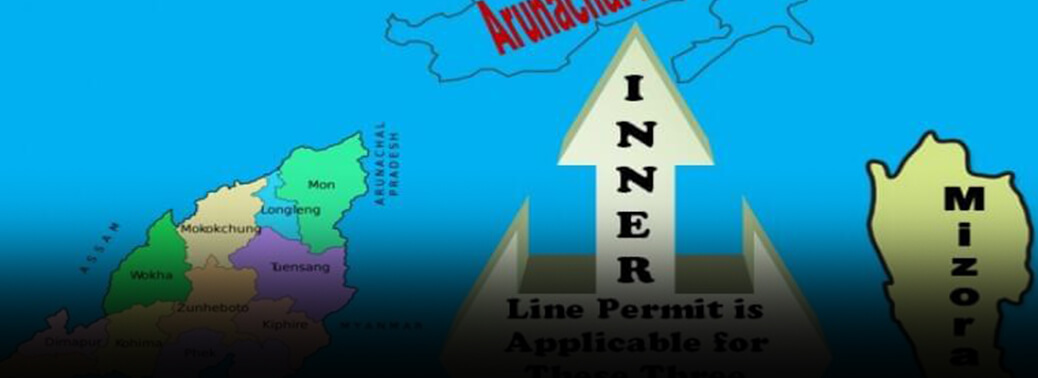
Context:
- A petition filed has sought a direction to the Centre and the Nagaland government to take appropriate steps for the protection of life and liberty, properties and other fundamental rights of nonNagas living in the commercial hub of Dimapur following the imposition of the Inner Line Permit.
- (PIL) petition, has challenged certain sections of the Bengal Eastern Frontier Regulation, 1873 which gives unbridled power to a State to prescribe ILP.
- Section 2 of the Regulation empowers a State government to prescribe ‘Inner Line’ to prohibit citizens of India or any class of such citizens going beyond the prescribed line without a pass.
- The Inner Line Permit (ILP) is an official travel document issued by the Government of India to grant inward travel of an Indian citizen into a protected area for a limited period. It is obligatory for Indians residing outside those states to obtain permission prior to entering the protected areas. Currently, the Inner Line Permit is operational in Arunachal Pradesh, Mizoram and Nagaland. The document has been issued under the Bengal Eastern Frontier Regulation, 1873 and the conditions and restrictions vary from state to state.
- It can be issued for travel purposes solely. Visitors are not allowed to purchase property in these regions. However, there might be a different set of rules for long term visitors, though they are not valid for central government employees and security forces.
Bill Passed for 16% Maratha Quota in PG Course
23, Jun 2019

- The Maharashtra Legislative Council cleared a bill to provide 16% reservation to the Maratha
- community students in post-graduate (PG) medical courses.
- This comes a day after the bill was unanimously passed in the Legislative Assembly.
- As both the Houses of the Legislature have cleared the bill, it will now be sent to the Governor for his approval.
TRIPLE TALAQ
22, Jun 2019
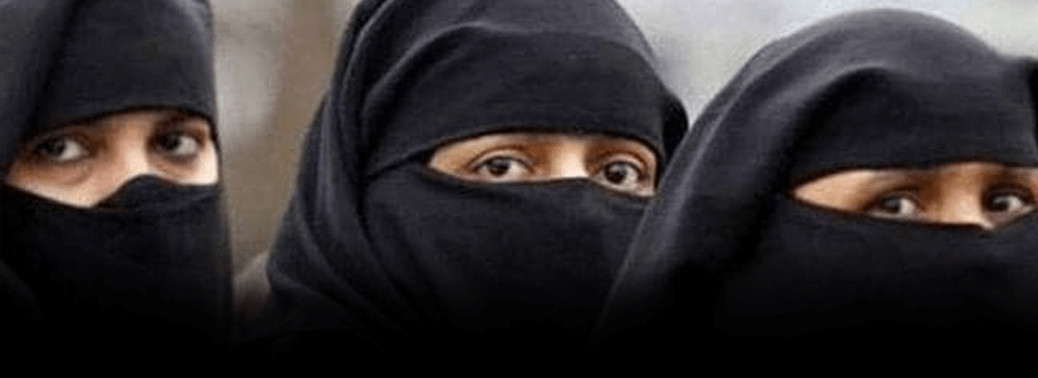
Context:
- Triple Talaq bill again introduced by NDA government in Lok Sabha.
About:
- The Bill makes all declaration of talaq, including in written or electronic form, to be void (i.e. not enforceable in law) and illegal.
- It defines talaq as Talaq-e-biddat or any other similar form of talaq pronounced by a Muslim man resulting in instant and irrevocable divorce.
- Talaq-e-biddat refers to the practice under Muslim personal laws where pronouncement of the word ‘talaq’ thrice in one sitting by a Muslim man to his wife results in an instant and irrevocable divorce.
Offence and Penalty:
- The Bill makes declaration of talaq a cognizable offence, attracting up to three years’ imprisonment with a fine. (A cognizable offence is one for which a police officer may arrest an accused person without warrant.)
- The offence will be cognizable only if information relating to the offence is given by:
- (i) The married woman (against whom talaq has been declared), or
- (ii) Any person related to her by blood or Mariage
Feature:
- The Bill provides that the Magistrate may grant bail to the accused. The bail may be granted only after hearing the woman (against whom talaq has been pronounced), and if the Magistrate is satisfied that there are reasonable grounds for granting bail.
- Allowance: A Muslim woman against whom talaq has been declared, is entitled to seek subsistence allowance from her husband for herself and for her dependent children. The amount of the allowance will be determined by the Magistrate.
- Custody: A Muslim woman against whom such talaq has been declared, is entitled to seek custody of her minor children. The manner of custody will be determined by the Magistrate
ANTI DEFECTION LAW
22, Jun 2019

Context:
- 5 TDP members of Rajya Sabha defected in BJP party.
About:
- The Anti-Defection law sought to prevent such political defections which may be due to reward of office or other similar considerations.
- 10th Schedule
- Power to disqualify bears with Speaker/ Chairman of House.
- A legislator is deemed to have defected if he either voluntarily gives up the membership of his party or disobeys the directives of the party leadership on a vote.
Background:
- Anti-Defection Law was passed in 1985 through 52nd amendment of constitution.
Disqualification Grounds:
- If member of house belonging to a political party
- Voluntary gives membership of his political
- Votes or does not vote contrary to directions of his party. If an independent candidate joins a political party after
- Nominated member is allowed to join a political party provided he joins such political party of his choices within a period of six months. After that period, joining a political party would lead to defection and disqualification.
Disqualification Authority:
- The question whether a member is subject to disqualification in all other matters except under 10th Schedule (disqualification) is Decided by President. However, President should obtain the opinion of the election commission before taking such decision.
- The Question of Disqualification under Anti-defection / Tenth Schedule is decided by the Chairman in the case of Rajya Sabha {i.e. Vice-President} and Speaker in the case of Lok Sabha.
When Defection is not Applied:
- Person shall not be disqualified if his political party merger with another party.
- Person and other members do not accept the merger and opt to function as a separate group.
- This exception shall operate only if not less than two third of the members of party in house have agreed to the agreed to the merger.
Speaker
19, Jun 2019
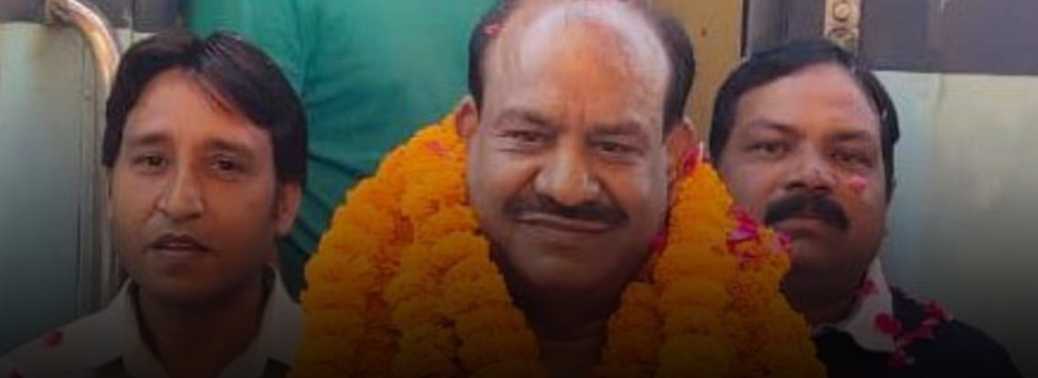
Context:
- MP Om Birla named as choice for Speaker’s post.
- He is presiding officer of Lok sabha.
- He is the guardian of powers and privileges of members and committees of Lok Sabha
Duration in Office:
- Speaker remains in office during the life of Lok Sabha (he needs to remain member of Lok Sabha).
- When the office of Lok Sabha speaker falls vacant, the members elect another speaker on a date fixed by the President.
- Whenever Lok Sabha is dissolved, the Speaker continues to remain in office until immediately before the first meeting of Lok Sabha after it is reconstituted.
Resignation:
- Disqualified if ceases to be the member of House Addressing a resignation letter to Deputy Speaker
Removal:
- Speaker can be removed by the members of Lok Sabha by a resolution passed by Absolute Majority {Majority of the Total Members of the House} of Lok Sabha.
- 14 days advanced notice must be given for such resolution.
- The Motion of Removal can be considered and discussed only when it has the support of at least 50 Members.
- If resolution is under consideration of the house, Speaker Cannot Preside the Meeting, but can participate in the house and vote in the first instance though not in the case of an equality of votes.
Powers and Functions:
- The Guardian of powers and privileges of members and committees of Lok Sabha. To Maintain order and decorum in Lok Sabha
- His interpretations of constitutional provisions, rules and regulations related to Lok Sabha are final.
- Adjournment of Lok Sabha is done by Speaker
- During voting in the house on a bill or other matters, he does not vote in the first instance. However, if there is a tie due to equal votes, speaker exercises the casting vote
- Joint sittings of both the houses of parliament are although called by President but presided by Lok Sabha speaker.
- On the request of the Leader of the House, Speaker may allow a secret meeting.
- Whether a bill is money bill or not, is decided by Speaker and his decision in this matter is final.
- Disqualification of Members of House-
- Speaker decides the question of disqualification of Lok Sabha members in matters of tenth schedule / anti-defection law. This decision is subject to judicial
- He is the Ex-Officio Chairman of Indian Parliamentary Group of the Inter- parliamentary Union.
- Chairman of all the parliamentary committees of Lok Sabha are appointed by Speaker, provided such committees does not need an elected chairman
- Speaker himself is the chairman of
- Business Advisory Committee,
- Rules Committee and
- General Purpose
- The Secretary General of the Lok Sabha is appointed by the Speaker.
Deputy Speaker of Lok Sabha:
- If Speaker of Lok Sabha is not available, his duties are carried out by Deputy Speaker Election– A Deputy Speaker is elected by the Lok Sabha members from amongst themselves.
- Election of Deputy Speaker is done after election of Speaker.
- Deputy speaker is not subordinate to the Speaker and is directly responsible to Lok Sabha.
- If Deputy Speaker is also not present, a person appointed by President will discharge the duties.
Pro Tem Speaker:
- President appoints a speaker Pro Tem for the first meeting of the newly elected Lok Sabha. He is appointed to administer oath to the new members and enable the house to elect a new speaker (Before Oath they cannot be member of house and participate in proceeding).
Lok Sabha polls from April 11 to May 19
11, Mar 2019
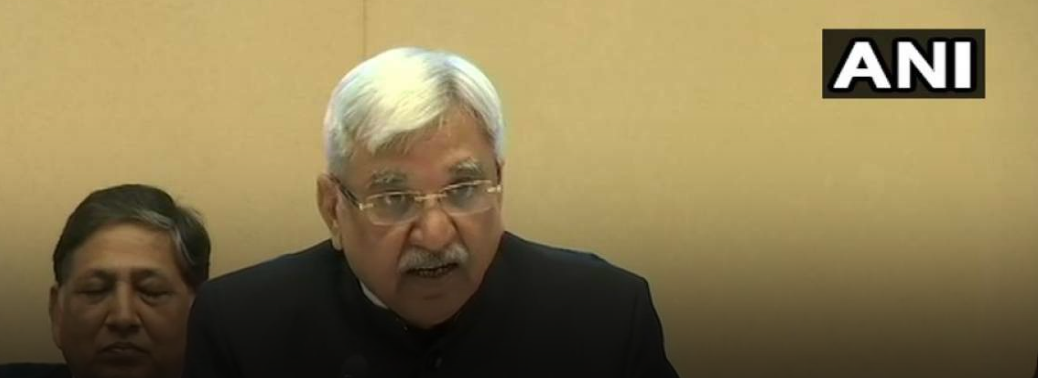
Elections to the 17th Lok Sabha will be conducted in seven phases across the country from April 11 to May 19. The counting of votes will be on May 23. The Model Code of Conduct came into effect immediately on the announcement of the schedule, with the Election Commission introducing fresh measures to enhance the integrity of the electoral process and raise the accountability of campaigners.
Voting across the country would be held on April 11, April 18, April 23, April 29, May 6, May 12 and May 19.
The Assembly election in Andhra Pradesh, Arunachal Pradesh, Sikkim and Odisha will be conducted simultaneously with the Lok Sabha
The election in 22 States and Union Territories will be conducted in a single phase. Two-phase elections are in Karnataka, Rajasthan, Manipur and Tripura, while Assam and Chhattisgarh will have three phases. Jharkhand, Madhya Pradesh, Maharashtra and Odisha will be covered in four phases, Jammu and Kashmir in five, and Bihar, Uttar Pradesh and West Bengal in seven phases. In Anantnag, the election will he held in three rounds.
According to CEC 91 constituencies would go to the polls in the first phase, 97 in the second phase, 115 in the third phase, 71 in the fourth, 51 in the fifth, and 59 each in the sixth and seventh phases.
As on January 1, about 900 million people were eligible to vote, as per the electoral rolls, compared with 814.5 million in 2014. Among them are a sizable number of those born at the turn of the millennium. Over 15 million fall in the 18-19 years age group. While 71,735 overseas electors have been enrolled, more than 16.77 lakh are service electors.
10% more
There would be more than 10.35 lakh polling stations, 10% higher than in 2014. The Voter Verifiable Paper Audit Trail (VVPAT) machines, a total of 17.4 lakh units, will be used for the first time at all stations. He said the standard operating procedure for the security of EVMs and VVPATs had been revised to ensure that their end-to-end movement was monitored through the GPS-fitted transport vehicles.
Election Commission of India
- Election Commission of India is a permanent body entrusted for the conduct of free and fair elections.
- An independent Election Commission has been provided for in Article 324of the Constitution of India.
- Currently has three members including Chief Election Commissioner (CEC).
- They all are appointed by the President for a term which is fixed by the President.
Tenure:
The service conditions and tenure of office of CEC and Election Commissioners are determined by Act of parliament titled The Chief Election Commissioner and Other Election Commissioners (Conditions of Service) Act, 1991. This act has fixed their term for 6 years or till age of 65 years, whichever is earlier.
Power/salary:
The CEC and election commissioners have equal power and receive equal salary, allowances and other perquisites, which are similar to judge of Supreme Court. In case of difference of opinion amongst the Chief Election Commissioner and Election Commissioner, the matter is decided by the Commission by majority.
One of the most important functions of the election commission is to prepare an up-to-date list of all the persons who are entitled to vote at the elections.
Election Commission is entrusted with :
- Election of President;
- Election of Vice-President;
- Election of Lok Sabha as well as Rajya Sabha;
- Elections to State Legislatures as well as Legislative Councils;
- Reservation of Seats in Lok Sabha and State Legislatures;
- Qualifications of the MPs and MLAs;
- Determination of population for purposes of the election.
PARLIAMENTARY STANDING COMMITTEE ON INDIA ATTACK
01, Mar 2019
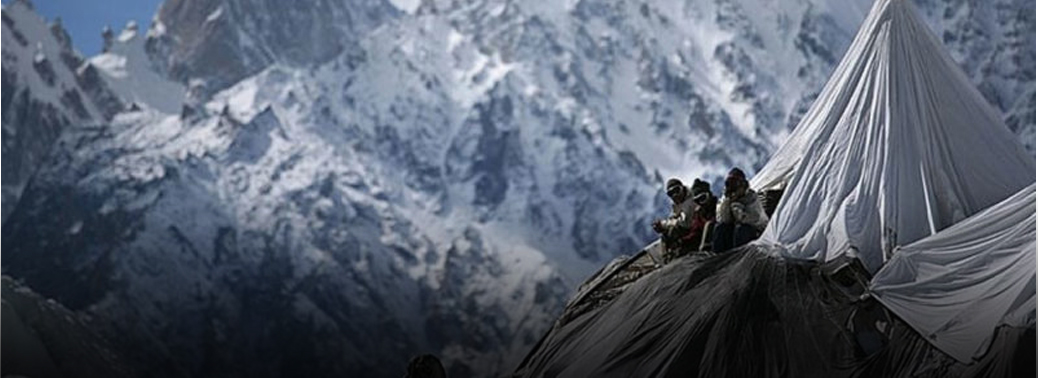
In News
- Members of the Standing Committee on External Affairs requested Centre to circulate evidence of the damage suffered by the Jaish-e Mohammad (JeM) camp in Balakot to the international community to end speculation in the international press about the number of casualties in the Indian Air Force attack.
About:
- Foreign Secretary Vijay Gokhale and other senior officials of the External Affairs Ministry briefed the panel. Mr. Gokhale was meant to speak on the new government taking charge in Pakistan, but the briefing was largely centred on the Pulwama attack and its fallout.
- The Foreign Secretary refused to give operational details about the air strikes pleading that it did not fall under his domain.
- He also refused to answer questions on the number of possible casualties at the JeM camp, committee sources said.
- The panel members hailed the strikes by the Indian Air Force but lamented that internationally India had not been given due credit.
- The international community is claiming that our strikes had no impact, the camps were already empty and no men were killed. They are trying to hide the glory of our armed forces. So, we told the Foreign Secretary that this misinformation campaign needs to be combated by widely circulating the relevant evidence.
- The panel asked Mr. Gokhale to highlight the justification for the air strikes and the JeM’s role in spreading terror in India.
- Mr. Foreign Secretary assured the Committee that diplomatic overtures to the international community were still under way.
UNION CABINET APPROVES SOFTWARE PRODUCT POLICY
28, Feb 2019
In News:
- The Union Cabinet approved the National Policy on Software Products 2019, which would help in formulating schemes, projects and measures to develop the software industry.
Explained:
- The policy aims to adopt a shift in strategy so that IT products also contribute equitably and significantly to the industry along with IT services.
- The government said that initially an outlay of Rs. 1,500 crores are being planned for various schemes under in policy in the next seven years.
- Further, the policy proposes to create a Rs. 5,000-crore fund with industry participation to promote emerging technology such as Internet of Things, Artificial Intelligence, Blockchain, Big Data and robotics. Of this, government contribution will be Rs. 1,000 crores.
- Software Product Development Fund’ will participate in venture funds having objectives aligned to this policy and so can leverage private investments targeted to promote software product ecosystem
The SPDF will be financially managed by a professional financial institution. - Presently, total revenue of IT-ITeS industry in India is pegged at about $168 billion (including e-commerce), with revenue of about $7.1 billion from software product industry, of which $2.3 billion is from exports.
- Further, the Policy aims to align with other Government initiatives such as Start-up India, make in India and Digital India, Skill India etc so as to create Indian Software products Industry of USD ~70-80 billion with direct & indirect employment of ~3.5 million by 2025.
The Policy has the following five Missions:
- To promote the creation of a sustainable Indian software product industry, driven by intellectual property (IP), leading to a ten-fold increase in India share of the Global Software product market by 2025.
- To nurture 10,000 technology startups in software product industry, including 1000 such technology startups in Tier-II and Tier-III towns & cities and generating direct and in-direct employment for 3.5 million people by 2025.
- To create a talent pool for software product industry through
1. Up-skilling of 1,000,000 IT professionals,
2. Motivating 100,000 school and college students and
3. Generating 10,000 specialized professionals that can provide leadership. - To build a cluster-based innovation driven ecosystem by developing 20 sectoral and strategically located software product development clusters having integrated ICT infrastructure, marketing, incubation, R&D/testbeds and mentoring support.
- In order to evolve and monitor scheme & programmes for the implementation of this policy, National Software Products Mission will be set up with participation from Government, Academia and Industry.
CABINET OKAYS NATIONAL MINERAL POLICY 2019
28, Feb 2019
In News:
- The Cabinet approved National Mineral Policy 2019.
Explained:
- It will lead to sustainable mining sector development future, while addressing the issues of project affected persons, especially those residing in tribal areas.
Objective of policy:
- The aim of National Mineral Policy 2019 is to have a more effective, meaningful and implementable policy that brings in further transparency, better regulation and enforcement, balanced social and economic growth as well as sustainable mining practices.
Provisions of policy:
- The National Mineral Policy 2019 includes provisions which will give boost to mining sector such as.
- Introduction of Right of First Refusal for RP/PL holders,
- Encouraging the private sector to take up exploration,
- Auctioning in virgin areas for composite RP cum PL cum ML on revenue share basis, encouragement of merger and acquisition of mining entities and transfer of mining leases and creation of dedicated mineral corridors to boost private sector mining areas.
- The 2019 Policy proposes to grant status of industry to mining activity to boost financing of mining for private sector and for acquisitions of mineral assets in other countries by private sector
- It also mentions that Long-term import-export policy for mineral will help private sector in better planning and stability in business.
- The Policy also mentions rationalize reserved areas given to PSUs which have not been used and to put these areas to auction, which will give more opportunity to private sector for participation.
- The Policy also mentions to make efforts to harmonize taxes, levies & royalty with world benchmarks to help private sector.
- Among the changes introduced in the National Mineral Policy, 2019 include the focus on make in India initiative and Gender sensitivity in terms of the vision. In so far as the regulation in Minerals is concerned, E-Governance, IT enabled systems, awareness and Information campaigns have been incorporated.
- Regarding the role of state in mineral development online public portal with provision for generating triggers at higher level in the event of delay of clearances has been put in place.
- NMP 2019 aims to attract private investment through incentives while the efforts would be made to maintain a database of mineral resources and tenements under mining tenement systems.
- The new policy focusses on use coastal waterways and inland shipping for evacuation and transportation of minerals and encourages dedicated mineral corridors to facilitate the transportation of minerals.
- The utilization of the district mineral fund for equitable development of project affected persons and areas. NMP 2019 proposes a long-term export-import policy for the mineral sector to provide stability and as an incentive for investing in large scale commercial mining activity. The 2019 Policy also introduces the concept of Inter-Generational Equity that deals with the well-being not only of the present generation but also of the generations to come and also proposes to constitute an inter-ministerial body to institutionalize the mechanism for ensuring sustainable development in mining.
Benefits:
- The New National Mineral Policy will ensure more effective regulation. It will lead to sustainable mining sector development in future while addressing the issues of project affected persons especially those residing in tribal areas
Background:
- National Mineral Policy 2019 replaces the extant National Mineral Policy 2008 (“NMP 2008”) which was announced in year 2008.
Parliamentary Panel on Twitter
26, Feb 2019
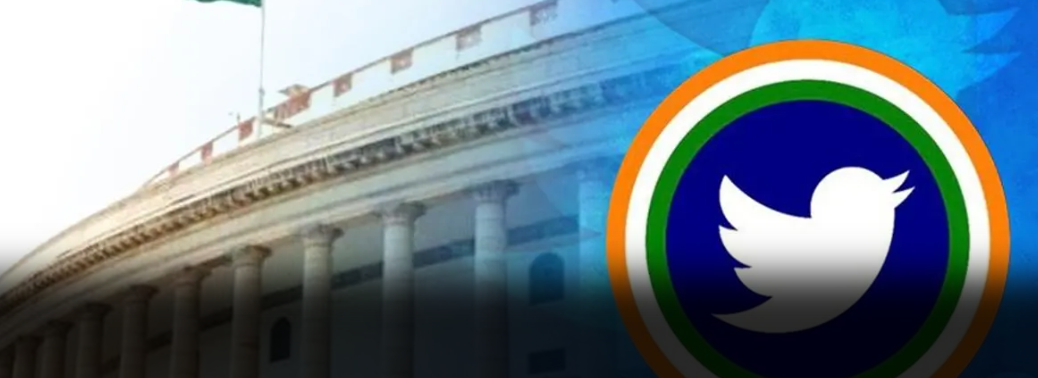
- A parliamentary panel asked Twitter to engage more actively with the Election Commission and respond to fake news and inflammatory posts in “real time” as the country heads into a general election.
About:
- A parliamentary committee, headed by BJP MP Anurag Thakur, on asked Twitter to ensure that Indian elections were not undermined and influenced by foreign entities.
- It also told the social media giant to ensure there is no foreign interference that could influence voters, said people with direct knowledge of the matter. This could take place through advertising or fake news as observed in the 2016 US elections.
- The committee members unanimously issued strict instructions (to Twitter) that no international interference should be allowed in the upcoming Lok Sabha elections.
- They have been asked to ensure that the integrity of their platform is not violated so that there can be free and fair elections.
- The panel also said that Twitter can’t choose to suppress certain opinions, which is significant in the context of reports that a Bharatiya Janata Party spokesman has accused the platform of bias. It was sternly conveyed that no sort of bias should be applied by Twitter by selectively throttling news feed of a section of individuals. Another panel member said that Twitter was asked to engage with and adhere to the directives of the Election Commission on fake news, inflammatory posts etc. Twitter has been asked to resolve such issues in real time, so that no misinformation occurs.
Background:
- As per data made available by the Ministry of Home Affairs (MHA), Twitter’s compliance rate, in acting against those creating a negative atmosphere online against the Indian security forces and threatening the national security, is close to 60%.
- The current compliance rate is unsatisfactory and needs to be improved significantly. It is imperative that Twitter responds promptly and swiftly to requests made by the Indian
- security agencies, especially in times of crisis. Twitter has failed to give clear answers to some questions raised by the panel, as per available information. It has been given 10 days to respond to those questions in writing. These include “whether Twitter is registered in India and whether it stands registered as a technology or media company; number of employees working for Twitter India”.
- The panel has also asked Twitter to “improve its grievance redressing mechanism” which a few panel members described as “slow and non- transparent”.
- It was conveyed to Twitter that if the redressal mechanism is made robust, allegations of bias against the platform will automatically be redressed.
- In a related development, the panel has summoned senior officials of Facebook, WhatsApp and Instagram on March 6. The committee will discuss issues of data privacy and safeguarding of citizen rights on social media and online news portals.
An Ordinance to Clamps down on Un regulated Deposits
25, Feb 2019

In News:
- In a bid to clamp down on Ponzi and fake deposit schemes, the government has, through an ordinance, banned unregulated deposit schemes.
Explained:
- Banning of Unregulated Deposit Scheme Ordinance 2019 which seeks to make such unregulated deposit scheme punishable, among other things but it does not prohibit those regulated by law like chit funds.
- Chit fund is regulated by Chit Fund Act, 1982 and is treated as Regulated Deposit as per
- Schedule 1 of Banning of Unregulated Deposit Ordinance, 2019
- Ordinance was aimed at saving poor and financially illiterate of their hard-earned savings
- from ponzi schemes like Saradha and Rose Valley in the past.
- The legislation contains a substantive banning clause which bans deposit takers from
- promoting, operating, issuing advertisements or accepting deposits in any unregulated deposit scheme.
- “No deposit taker shall directly or indirectly promote, operate, issue any advertisement soliciting participation or enrolment in or accept deposits in pursuance of an unregulated deposit scheme
What the law says?
The law also proposes to create three different types of offences –
- Running of unregulated deposit schemes,
- Fraudulent default in regulated deposit schemes, and
- Wrongful inducement in relation to unregulated deposit schemes.
- The Ordinance also provides for severe punishment ranging from 1 year to 10 years and pecuniary fines ranging from Rs 2 lakh to Rs 50 crore to act as deterrent.
- It also has adequate provisions for disgorgement or repayment of deposits in cases where such schemes nonetheless manage to raise deposits illegally.
- The law provides for attachment of properties or assets and subsequent realisation of assets for repayment to depositors. Clear-cut timelines have been provided for attachment of property and restitution to depositors.
What is chit fund?
- Chit funds are those business concerns which accept from its customers a fixed amount every month for a stipulated period which may be ranging from 1 year to 5 years. The members belonging to the chit company are classified into different groups according to the chit amount and the period.
Examples of chit concerns are:
- Balussery Benefit Chit Fund (P) Ltd.
- Shriram Chits & Investments Ltd.
Regulations Imposed by RBI on chit fund business:
- No chit fund business can be conducted except by a registered company. Chit business run by family concerns, partnership firms are restricted.
- In every state, there will be a Registrar of Chit companies with whom all the chit companies must register, giving full particulars about the chit company.
- The maximum discount that can be taken in a bid was restricted to 30% of the total chit amount. However, in 2001, the same has been enhanced to 40% (in the case of a chit for Rs. 1 lakh, not more than Rs. 40,000/- can be the bid amount).
- The details of every chit have to be furnished to the Reserve Bank of India along with the names and addresses of members.
- One-month chit amount of all the members has to be kept with the Reserve Bank of India till the particular chit comes to an end.
The Lowdown on National Security Act
19, Feb 2019
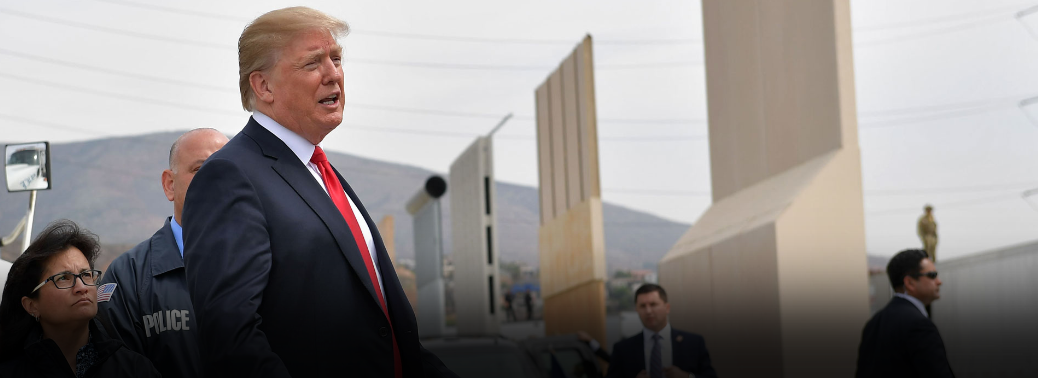
- The NSA empowers the Centre or a State government to detain a person to prevent him from acting in any manner prejudicial to national security. The government can also detain a person to prevent him from disrupting public order or for maintenance of supplies and services essential to the community. The maximum period for which one may be detained is 12 months. But the term can be extended if the government finds fresh evidence.
- Preventive detention laws in India date back to early days of the colonial era when the Bengal Regulation III of 1818 was enacted to empower the government to arrest anyone for defence or maintenance of public order without giving the person recourse to judicial proceedings.
- A century later, the British government enacted the Rowlatt Acts of 1919 that allowed confinement of a suspect without trial. Post-independence India got its first preventive detention rule when the government of Prime Minister Jawaharlal Nehru enacted the Preventive Detention Act of 1950. The NSA is a close iteration of the 1950 Act. After the Preventive Detention Act expired on December 31, 1969, the then Prime Minister, Indira Gandhi, brought in the controversial Maintenance of Internal Security Act (MISA) in 1971 giving similar powers to the government. Though the MISA was repealed in 1977 after the Janata Party came to power, the successive government, led by Mrs. Gandhi, brought in the NSA.
- In the normal course, if a person is arrested, he or she is guaranteed certain basic rights. These include the right to be informed of the reason for the arrest. Section 50 of the Criminal Procedure Code (Cr.PC) mandates that the person arrested has to be informed of the grounds of arrest, and the right to bail. Sections 56 and 76 of the Cr. PC also provides that a person has to be produced before a court within 24 hours of arrest.
- Additionally, Article 22(1) of the Constitution says an arrested person cannot be denied the right to consult, and to be defended by, a legal practitioner of his choice. But none of these rights are available to a person detained under the NSA. A person could be kept in the dark about the reasons for his arrest for up to five days, and in exceptional circumstances not later than 10 days. Even when providing the grounds for arrest, the government can withhold information which it considers to be against public interest to disclose. The arrested person is also not entitled to the aid of any legal practitioner in any matter connected with the proceedings before an advisory board, which is constituted by the government for dealing with NSA cases.
- The National Crime Records Bureau (NCRB), which collects and analyses crime data in the country, does not include cases under the NSA in its data as no FIRs are registered. Hence, no figures are available for the exact number of detentions under the NSA. In January, the BJP government in Uttar Pradesh arrested three persons under the NSA in connection with an alleged cow-slaughter incident in Bulandshahr.
- In December last year, a Manipur journalist, who had posted an alleged offensive Facebook post on the Chief Minister, was detained for 12 months under the NSA. Experts say these cases point to the fact that governments sometimes use it as an extra-judicial power. It is time to reconsider the law, they argue, because in four decades of its existence, the NSA has been in the news for all the wrong reasons.
Govt Expenditure Audited by CAG
14, Feb 2019
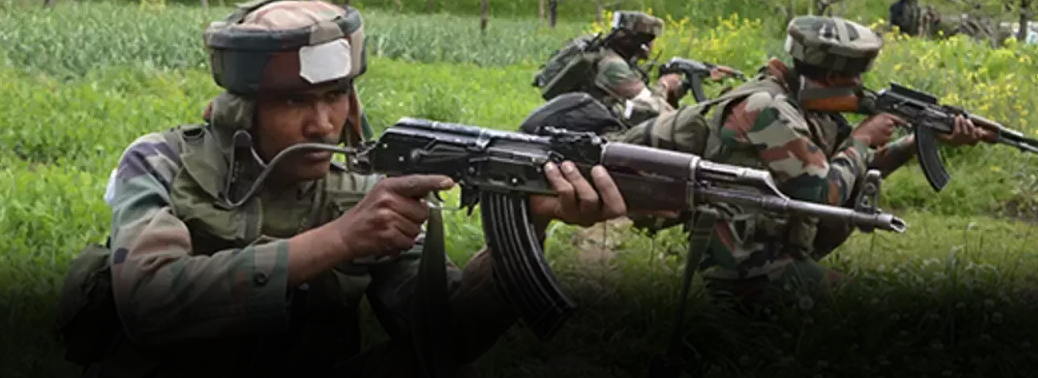
In News:
- More than 50% of the expenditure under 36 major heads of the government’s spending in 2017-18 was classified as ‘other expenditure’ thereby “rendering the accounts opaque”, the Comptroller and Auditor General (CAG) said in a report tabled in Parliament.
Explained:
- The CAG also noted that several heads of cess that had been collected had not been disbursed to the appropriate funds for spending. The quantum of monies lying in limbo like this was a substantial Rs. 2.18 lakh crore.
CAG:
- Article 148 of the Constitution lays down that the Comptroller and Auditor General of lndia would be appointed by the President by warrant under his hand and seal. The CAG will hold office for a period of six years or till he attains the age of 65, whichever is earlier. And he can be removed from office only in the same manner and on the same grounds as a Judge of the Supreme Court i.e. by impeachment in Parliament
- At the same time the CAG has been made ineligible for any other office under the Government of India or any state Government.
- The salary etc. of CAG has been equated with the Judges of the Supreme Court. The Article 148 provides that the administrative expenses of the office of CAG are to be charge upon the Consolidated Fund of India (CFI).
Audit Role of CAG:
- Audit is the principal instrument to ensure the financial accountability of the Executive to the Legislature of the Union and State. The Comptroller and Auditor Genera1 in India, has been, made responsible by the Constitution. To conduct the audit of the transactions of the Union and the States and Union Territories with Legislature
- The CAG is also empowered to audit and report on ail expenditure from the contingency funds and public accounts of the Union and of the States. The CAG shall have also power to audit and report on all trading and manufacturing, profit and loss accounts, etc., kept by any department of Union or a State. The CAG has also the power to audit the receipts and expenditure of the Union and each State, all bodies and authorities, substantially financed, from the Union or State revenues, Government Companies other corporations or bodies.
Triple Talaq ordinance to be Re-Promulgated
11, Jan 2019
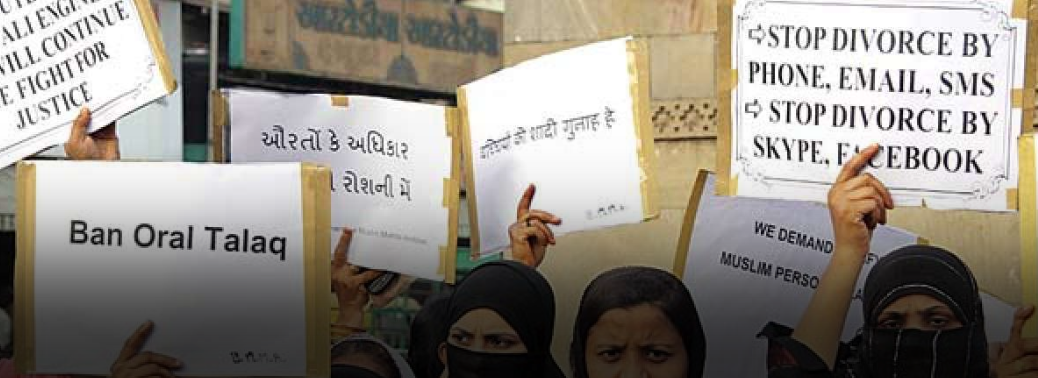
Context:
- The Union Cabinet approved a proposal to re-promulgate the ordinance making the practice of instant triple talaq a criminal offence.
Details:
- The earlier ordinance was to expire on January 22. The Bill to convert the first ordinance into a law is pending in Rajya Sabha.
- A fresh Bill to make the practice of triple talaq among Muslims a penal offence was introduced in the Lok Sabha on December 17 last year to replace an ordinance issued in September.
- The Cabinet has also approved re-issuance of an ordinance to allow a committee and a Bill to convert an earlier ordinance into a law is pending approval in Parliament.
Key provisions of the Bill:
- The Bill makes all declaration of talaq, including in written or electronic form, to be void (i.e. not enforceable in law) and illegal.
- Definition: It defines talaq as talaq-e-biddat or any other similar form of talaq pronounced by a Muslim man resulting in instant and irrevocable divorce. Talaq-e-biddat refers to the practice under Muslim personal laws where pronouncement of the word ‘talaq’ thrice in one sitting by a Muslim man to his wife results in an instant and irrevocable divorce.
- Offence and penalty: The Bill make declaration of talaq a cognizable offence, attracting up to three years’ imprisonment with a fine. (A cognizable offence is one for which a police officer may arrest an accused person without warrant.)
- The offence will be cognizable only if information relating to the offence is given by: (i) the married woman (against whom talaq has been declared), or (ii) any person related to her by blood or marriage.
- The Bill provides that the Magistrate may grant bail to the accused. The bail may be granted only after hearing the woman (against whom talaq has been pronounced), and if the Magistrate is satisfied that there are reasonable grounds for granting bail.
- The offence may be compounded by the Magistrate upon the request of the woman (against whom talaq has been declared). Compounding refers to the procedure where the two sides agree to stop legal proceedings, and settle the dispute.
- The terms and conditions of the compounding of the offence will be determined by the Magistrate. Allowance: A Muslim woman against whom talaq has been declared, is entitled to seek subsistence allowance from her husband for herself and for her dependent children.
- The amount of the allowance will be determined by the Magistrate. Custody: A Muslim woman against whom such talaq has been declared, is entitled to seek custody of her minor children. The manner of custody will be determined by the Magistrate.
Significance:
- Time has come to put an end to the suffering of Muslim women who have been at the receiving end of instant talaq for several years.
- More than 20 Islamic countries have already banned the practice.
Tribals of west Bengal Battling Food Scarcity: Study
07, Jan 2019
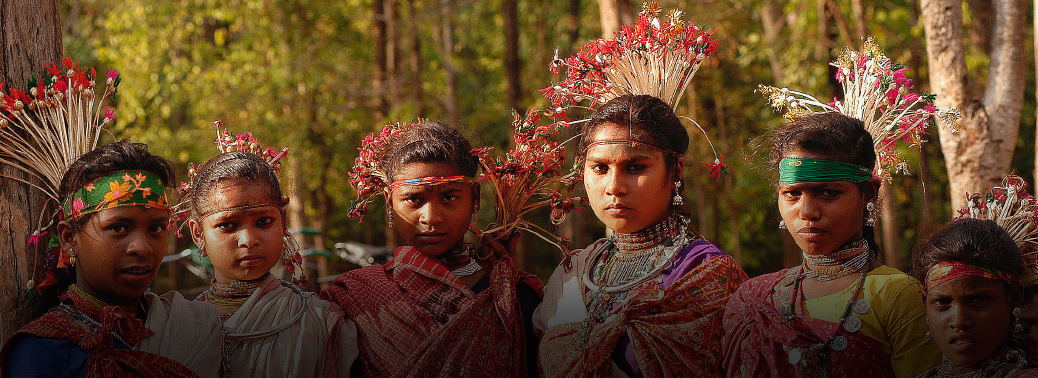
Context:
- Two months after the West Bengal government denied any food scarcity as a possible cause of death of seven persons from a tribal community, a survey report has identified “food scarcity in varying degrees” in about 31% of tribal households in West Bengal.
Details:

- West Bengal is home to a over five million tribals, with 6% of the India’s tribal population of 100 million. And, in many areas of these regions, tribals of the State are far behind in terms of human development. Recently, it has been contended that the main reason for the death of seven tribals is due to the scarcity of food. With that background in place, the survey has been conducted in 1,000 tribal households to ascertain living conditions, health and education. The report findings say that the tribal people are facing hunger problems, most of the families surveyed could hardly afford animal protein or pulses.
- Degradation of forest and environmental degradation are cited as two more reasons for “reduced availability of natural nutrients” resulting in early deaths. The report also indicated large cases of premature deaths among tribals. The report further noted that the work participation rate is higher among the Adivasis in Bengal, forcing the children of school going age to discontinue their studies in order to fend themselves and support the families.
Parliamentary Panel Flags Neglect of Western Ghats
02, Jan 2019
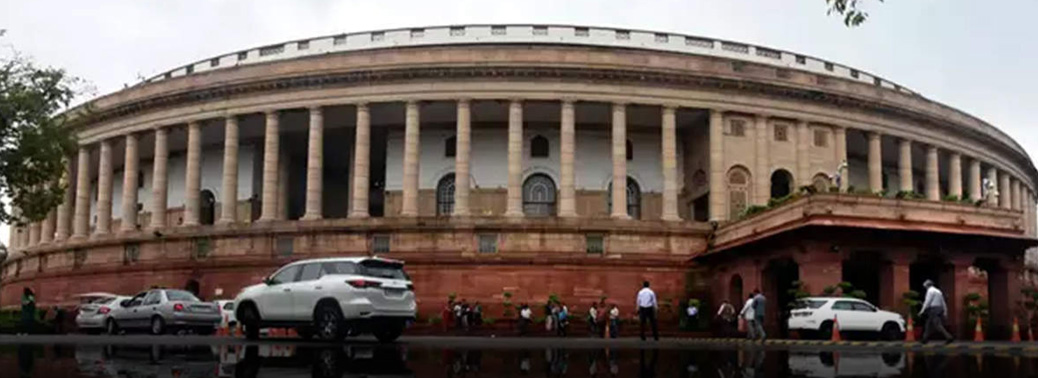
Context:
- Over 56,000 km of ecologically sensitive areas in the Western Ghats could not be
earmarked as ‘no-go’ zones due to State governments’ ‘insensitivity’, a parliamentary
panel has said.
Details:
- The Panel has urged the Union Environment and Forests Ministry to constitute a committee to address the issues and grievances of the local people.
- This has come into discussion due to the recent catastrophic monsoon floods in Kerala and parts of Karnataka.
- The disaster mainly implies the ecological insensitive administration of the concerned six State governments of Goa, Gujarat, Maharashtra, Kerala, Tamil Nadu and Karnataka, says the Committee on Government Assurances in the Rajya Sabha.
Committee on Government Assurances:
- The Committee consists of 15 members in Lok Sabha and 10 members in Rajya Sabha.
- A Minister is not nominated to this Committee.
- While replying to questions in the House or during discussions on Bills, Resolutions, Motions etc., Ministers at times give assurances or undertakings either to consider a matter or to take action or to furnish the House further information later. The functions of this Committee are to scrutinize the assurances, promises, undertakings etc. given by Ministers from time to time and to report to the respective Houses of Parliament on the
extent to which such assurances etc. have been implemented and to see whether such implementation has taken place within the minimum time necessary for the purpose.
Election For Deputy Chairman of Rajya Sabha
14, Aug 2018

- Election for deputy chairman of Rajya Sabha to be held since the post has been lying vacant.
Vacancy of the Post of Deputy Chairman:
- The Deputy Chairman is elected by the Rajya Sabha itself from amongst its members.
- Whenever the office of the Deputy Chairman falls vacant, the Rajya Sabha elects another member to fill the vacancy.
- The Deputy Chairman vacates his office in any of the following three cases:
- if he ceases to be a member of the Rajya Sabha;
- if he resigns by writing to the Chairman;
- if he is removed by a resolution.
Election Procedure:
- As the date so fixed by chairman, any member may give notice in writing addressed to the Secretary-General of a motion that another member be chosen as the Deputy Chairman of the Council, and the notice shall be seconded by a third member and shall be accompanied by a statement by the member whose name is proposed in the notice that he is willing to serve as Deputy Chairman if elected.
- A member in whose name a motion stands in the list of business may, when called, move the motion or not move the motion the motions which have been moved and duly seconded shall be put one by one in the order in which they have been moved and decided if necessary by division.
- If any motion is carried, the person presiding shall, without putting later motions, declare that the member proposed in the motion which has been carried, has been chosen as the Deputy Chairman of the Council.
Deputy chairman of Rajya Sabha:
- The Deputy Chairman performs the duties of the Chairman’s office when it is vacant or when the Vice-President acts as President or discharges the functions of the President.
- He also acts as the Chairman when the vice president is absent from the sitting of the House.
- In both the cases, he has all the powers of the Chairman.
- It should be emphasised here that the Deputy Chairman is not subordinate to the Chairman. He is directly responsible to the Rajya Sabha.
- Like the Chairman, the Deputy Chairman, while presiding over the House, cannot vote in the first instance, he can only exercise a casting vote in the case of a tie.
When Chairman Presides over the House:
- At this situation, the Deputy Chairman is like any other ordinary member of the House.
- He can speak in the House, participate in its proceedings and vote on any question before the House.
Salary and Allowances:
- Like the Chairman, the Deputy Chairman is also entitled to a regular salary and allowance.
- They are fixed by Parliament and are charged on the Consolidated Fund of India.
Removal:
- A resolution passed by an absolute majority of the house.
- Such a resolution can be moved only after giving 14 days’ advance notice.
- Further, when a resolution for the removal of the Deputy Chairman is under consideration of the House, he cannot preside over a sitting of the House, though he may be present.
Supreme Court Scraps Nota Option For Rajya Sabha Polls
10, Aug 2018

Why in news?
- The option of NOTA (none of the above) will no longer be made available for elections to the Rajya Sabha.
- The Supreme Court said the option was meant to be exercised by individual voters in direct elections only.
Why NOTA is to be scrapped?
- NOTA will destroy the concept of value of a vote and representation and encourage defection that shall open the doors for corruption which is a malignant disorder.
- The introduction of NOTA in indirect elections may, on a first glance, tempt the intellect but on keen scrutiny, it falls to the ground, for it completely ignores the role of an elector in such an election and fully destroys the democratic value.
- NOTA may look attractive but its practical application defeats the fairness ingrained in an indirect election. More so where the elector’s vote has value and the value of the vote is transferrable.
- An analysis of the exercise of NOTA in the voting process of the Council of States where open ballot is permissible and secrecy of voting has no room and further where the discipline of the political party/parties matters, it is clear that such choice will have a negative impact.
- The option of NOTA may serve as an elixir in direct elections but in respect of the election to the Council of States which is a different one, it would not only undermine the purity of democracy but also serve the Satan of defection and corruption.
Conclusion:
- Thus, a candidate after being elected becomes a representative of the State and does not represent a particular constituency.
- The cumulative effect of all these aspects clearly conveys that the introduction of NOTA to the election process for electing members of the Council of States will be an anathema to the fundamental criterion of democracy which is a basic feature of the Constitution.
Government Panel to Study Stressed Power Sector
26, Jul 2018

The government has setup a high level empowered committee under the cabinet secretary to resolve the stress in the thermal power sector.
Committee on Power Sector:
- A high level empowered committee headed by Cabinet Secretary.
- It also contains representatives from
1. Ministry of Railways
2. Ministry of Finance
3. Ministry of Coal
4. Lenders having major exposure to power sector.
Functions:
- The committee will look into the Stressed thermal power assets which is the major cause of concern for the country.
- It takes steps to maximize the investment, including changes in the fuel allocation policy.
- It also looks into issues relating to the regulatory framework of the sector.
- It examines the mechanism to facilitate sale of power, payment security mechanism.
- It provides measures for maximizing the efficiency of Insolvency and Bankruptcy code and Asset Reconstruction companies in power sector.
- Stressed assets remain a key concern for power sector in India. Non availability of long term purchasing power agreements, non-availability of domestic gas and un viable tariffs have led to stressed thermal power assets in the country.
- India’s energy sector is increasingly unable to deliver a secure supply of energy amid growing demand and fuel imports.
- The coal sector remains the most inefficient and least open to private investment, despite coal being the country’s primary source of fuel.
- The direct outcome of sluggish domestic coal production is the reason for considerable increase of imported coal.
- Stagnating domestic production and inadequate infrastructure for coal have caused serious bottlenecks in India’s energy supply;
- Years of populist tariff schemes, mounting AT&C losses and operational inefficiencies have adversely affected the financial health of State Discoms which are currently plagued with enormous out-standing debts.
- The major issue on pricing is its inability to send a proper signal to suppliers and consumers to effect intended behavioural changes.
- Increasing power generation costs due to limited fuel availability, poor financial health of State Discoms, high AT&C losses have contributed in suppressed demand projections by State Discoms.
- Over the last 4-5 years, the leading rates have increased significantly from the time of project appraisal resulting in project cost overrun and hence higher end tariffs.
- The micro level policies governing the fuel cost pass-through, mega power policy, competitive bidding guidelines are not in consonance with the macro framework like The Electricity Act 2003 and the National Electricity Policy.
- India’s power sector had been a monolithic system that was tightly regulated and dominated by vertically-integrated state utilities until economic reforms began in 1991. (SEBs) controlled the entire electricity supply chain from generation, transmission to distribution within a given state.
- Land Acquisition poses an increasingly significant challenge in the Indian electricity sector.
- Delayed construction of railways by Indian railways to connect mines, dispatch centres and end-use destinations, has already created a considerable bottleneck in coal supply in recent years.
- As PSUs are owned and supervised by the government, they have rather limited autonomy over management and investment decisions. The split goal between political priority and commercial interest often creates confusion in the roles.
- India requires a well-integrated infrastructure for its coal supply chain, which includes railroads, importing ports and washeries.
- private companies that are currently allowed only in captive production should be able to engage in commercial mining, and bring technical improvements and more efficient management to the coal sector. Private investment in the power sector remains below expectation and should be increased.
- Various aspects like ramping up coal production by both public and private sector in a time-bound manner, increased participation of private sector in coal production and easing of regulatory framework, clearances and approvals for allocation and development of coal blocks & gas infrastructure need to be addressed.
- Regulators need to be sensitized to the challenges faced by the sector and policy framework needs to be crafted and enforced to ensure a win-win situation for all the stakeholders. They must pro-actively intervene to resolve the immediate issues ailing the power sector.
- A robust and sustainable credit enhancement mechanism for funding in Energy Sector needs to be put in place through increased participation by global funding agencies like The World Bank, ADB etc. in the entire value chain.
- There is a strong need to push for wider-scale implementation of public private partnership models. The private sector has been playing a key role in generating power, a more supportive environment will help in bridging the energy deficit of the country.
- In addition to capacity expansion, India needs to improve the management of each segment throughout the entire sector, starting with low operational efficiency in generation and high financial losses in distribution.
- Technical and managerial expertise of Indian energy companies needs to improve. Obtaining the latest technology for upstream investments in coal, oil and gas to boost domestic production should be the top priority.
- For effective implementation, horizontal coordination among different ministries needs to be improved. Thus Inter-governmental coordination(vertical coordination) is important to alleviate the growing imbalance among states in terms of energy infrastructure and investment.
- A reliable and adequate supply of energy is the prerequisite for India’s continued economic development.
- India is now standing at the crossroads with a need for the next phase of energy sector reform. Increasing import dependency exposes India to greater geopolitical risks, fluctuating world market prices and intensifying international competition.
- In conjunction with a rising subsidy level and systemic failure to ensure proper revenue collection along the value chain, the financial capacity of energy sector players is significantly undermined.
- In order to overcome this strong political leadership is vital to address energy challenges.
- India’s policy objective of inclusive development and affordable energy should be maintained, but business viability cannot be sacrificed in the process.
- Therefore India should overhaul its current patchwork of energy policies in favour of a comprehensive and clear-cut policy that encourages economic and social development through reliable energy supplies.
Key Issues:
Way forward:
Conclusion:
Fugitive Economic Offenders Bill
17, Jul 2018
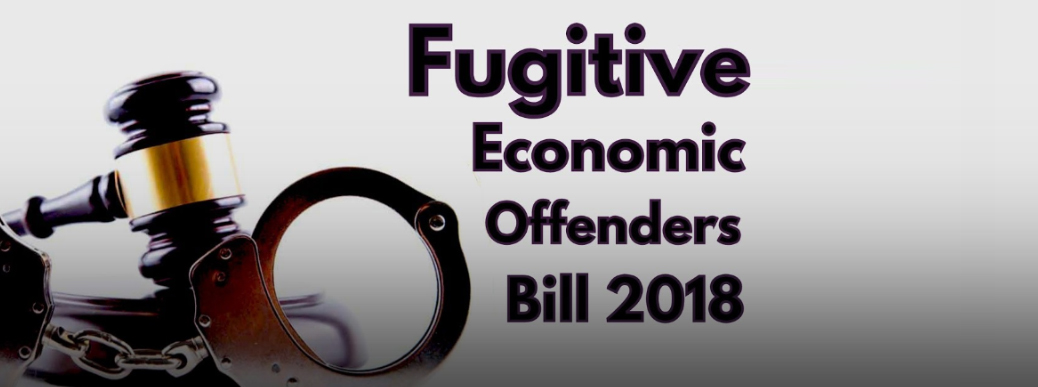
Background:
- It replaces the Fugitive Economic Offenders Ordinance 2018 that provides for confiscating properties and assets of economic offenders like loan defaulters who flee the country.
- The provisions of the ordinance will apply for economic offenders who refuse to return, persons against whom an arrest warrant has been issued for a scheduled offence as well as wilful bank loan defaulters with outstanding of over Rs 100 crore.
FEO:
- A fugitive economic offender(FEO) is a person against whom an arrest warrant has been issued for committing offence like counterfeiting government stamps or currency, cheque dishonour for insufficiency of funds, money laundering, and transactions defrauding creditors.
- Economic offences are those that are defined under the Indian Penal Code, the Prevention of Corruption Act, the SEBI Act, the Customs Act, the Companies Act, Limited Liability Partnership Act, and the Insolvency and Bankruptcy Code.
Why ?
- At present there is a law to tackle fugitive economic offenders, but the time taken to carry out the due process showed us that there is a need for strict and speedy procedures.
Provisions :
- The bill proposes the formation of a special court under the Prevention of Money-laundering Act, 2002, to declare a person a fugitive economic offender
- The special courts direct the Central government to confiscate all the assets belonging to a fugitive economic offender, including those assets that are proceeds of the crime and that do not belong to the offender.
- Bill would lay down measures to empower Indian authorities to attach and confiscate proceeds of crime associated with economic offenders and the properties of the economic offenders
- The Bill allows authorities to provisionally attach properties of an accused, while the application is pending before the Special Court.
- The bill will deter economic offenders from evading the process of Indian law by remaining outside the jurisdiction of Indian courts
- Courts or tribunals can also bar such offenders or their associated companies from filing or defending civil claims before it.
- The Bill allows the Special Court to exempt properties where certain persons may have an interest in such property (e.g., secured creditors).
Process in the Bill:
- A director or deputy director appointed under the PMLA, 2002 may file an application before a special court ,designated under the 2002 Act to declare a person as a fugitive economic offender.
- The application will contain the reasons to believe that an individual is a fugitive economic offender.
- Besides, the application will have information about his whereabouts, a list of properties believed to be proceeds of a crime for which confiscation is sought, a list of benami properties or foreign properties for which confiscation is sought, and a list of persons having an interest in these properties.
- Upon receiving the application, the special court will issue a notice to the individual, requiring him to appear at a specified place within six weeks.
- If the person appears at the specified place, the special court will terminate its proceedings under the provisions of the Bill.
- Any property belonging to the fugitive economic offender may provisionally be attached without the prior permission of the special court, provided that an application is filed before the court within 30 days.
- Appeals against the orders of the special court will lie before the high court.
Drawbacks:
- However, the bill does not specify whether the central government will share sale proceeds with any other claimants who do not have such an interest (e.g., unsecured creditors).
- The Bill does not require the authorities to obtain a search warrant or ensure the presence of witnesses before a search. This differs from other laws, such as the Code of Criminal Procedure (CrPC), 1973, which contain such safeguards. These safeguards protect against harassment and planting of evidence
- The Bill provides for confiscation of property upon a person being declared an FEO. This differs from other laws, such as CrPC, 1973, where confiscation is final two years after proclamation as absconder.
West Bengal Renames ‘Bangla’
14, Jul 2018
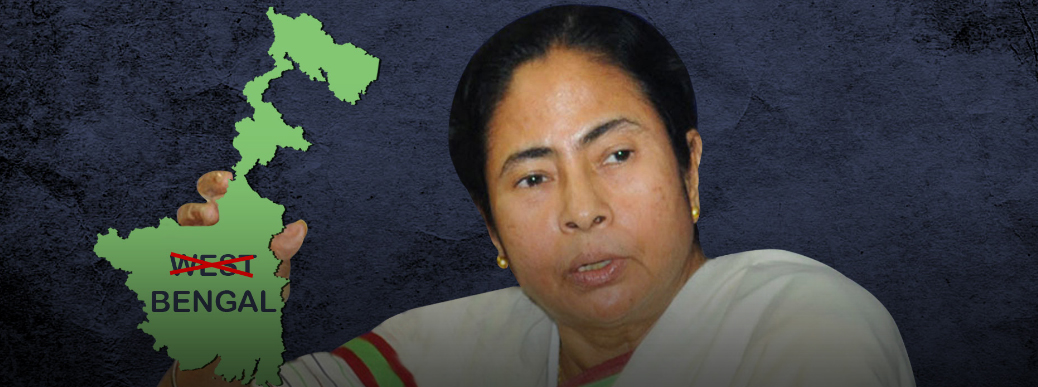
- The West Bengal Legislative Assembly unanimously passed a resolution in favour of changing the name of the state from West Bengal to Bangla.
- The state government will now send the proposal to the Centre for approval.
- Thereafter a constitution bill will be introduced in parliament which has to approve it with a simple majority, before the president gives his assent to it.
Constitutional provisions:
- As per the article 4, to change the name of the state ( article 3) effecting amendments in schedule 1 shall not be deemed to be the amendments of the Constitution under the article 368.
West Bengal geography:
- The state of West Bengal is situated in the eastern part of India. On the east lies Bangladesh. Sikkim and Bhutan lie on the north . The state is bordered by Assam, Bihar, Jharkhand, Odisha.
Protected areas:
1. Buxa national park
2. Gorumara national park
3. Neora valley national park
4. Singalila national park
5. Sunderban national park
6. Jaldapara national park are the national parks in West Bengal.
- As per the article 4, to change the name of the state ( article 3) effecting amendments in schedule 1 shall not be deemed to be the amendments of the Constitution under the article 368.
Draft Personal Data Protection bill
14, Jul 2018
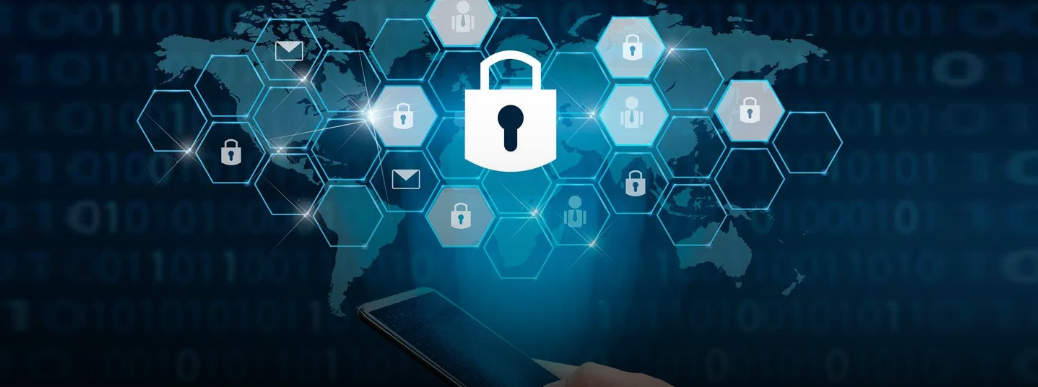
The Union government on released the draft Personal Data Protection Bill, 2018, submitted as part of the recommendations of the Justice Sri Krishna Committee on data security.
Background:
- A 10-member committee set up last year under the chairmanship of the retired Supreme Court judge, Justice B.N. Sri Krishna.
- The committee was tasked to submit a report and recommendations on what India’s data protection regime should look like, especially in light of the Supreme Court’s 2017 judgment that asserted a fundamental right to privacy for all Indians.
- The panel has delivered a report that covers its views on the data protection landscape in India, as well as a draft bill, which is likely to form the core of the government’s own draft.
Need For Data Protection:
- The 21st century has witnessed such an explosive rise in the number of ways in which we use information, that it is widely referred to as ‘the information age’.
- Much of that new information will consist of personal details relating to individuals, including information relating to the products they have purchased, the places they have travelled to and data which is produced from “smart devices” connected to the Internet.
- Data is fundamentally transforming the way individuals do business, how they communicate, and how they make their decisions. Businesses are now building vast databases of consumer preferences and behaviour.
- While data can be put to beneficial use, the unregulated and arbitrary use of data, especially personal data, has raised concerns regarding the privacy and autonomy of an individual, centralisation of databases, profiling of individuals, increased surveillance and a consequent erosion of individual autonomy.
Scope of data:
- For instance, the analysis of very large and complex sets of data is done today through Big Data analytics. Employing such analytics enables organisations and governments to gain remarkable insights into areas such as health, food security, intelligent transport systems, energy efficiency and urban planning.
- Data is valuable per se and more so, when it is shared, leading to creation of considerable efficiency. The reality of the digital environment today, is that almost every single activity undertaken by an individual involves some sort of data transaction or the other.
- The Internet has given birth to entirely new markets: those dealing in the collection, organisation, and processing of personal information, whether directly, or as a critical component of their business.
- There are a large number of benefits to be gained by collecting and analysing personal data from individuals. Pooled datasets allow quicker detection of trends and accurate targeting
What is data protection:
- Data protection principles are designed to protect the personal information of individuals by restricting how such information can be collected, used and disclosed.
- The need for data protection thus arises out of the need to prevent harms, and hinges on the question of who should be permitted to use personal information and how privacy can be protected.
- The concept of data protection is primarily linked with the idea of informational privacy.
- Privacy is a complex concept that has been difficult to define.
- The harms that arise from violations of privacy are difficult to identify because very often they are intangible.
- Informational privacy is often understood as the freedom of individuals to determine for themselves when, how, and to what extent information about them is communicated to others and this freedom allows for individuals to protect themselves from harm.
- However, not all information about an individual is necessarily private and deserving of protection. It is for a legal framework to determine where affording such freedom is appropriate and where it is not.
- Different norms of privacy can exist in different spheres of life .
- Rules of data protection and privacy are designed in such a way that they allow individuals the freedom to determine how their personal information will be collected, used and disclosed.
- Privacy laws are not identical in form to any other existing fields of law like property, copyright law, though there are some similarities. For example, laws on defamation generally prohibit disclosure of personal information only if it is false. Privacy, on the other hand, would even protect against disclosure of truthful personal information.
Current framework:
- Legislative attempts have been made to secure informational privacy in various sectors in India. These includes the general data protection rules under the Information Technology Act, 2000 (IT Act) as well as various sector specific laws on data protection ,the Information Technology (Reasonable Security Practices and Sensitive Personal Data or Information) Rules, 2011 (SPDI Rules).
- The SPDI Rules mandate certain requirements for the collection of information, and insist that it be done only for a lawful purpose connected with the function of the organisation.
- In addition, every organisation is required to have a detailed privacy Policy. The SPDI Rules also set out instructions for the period of time information can be retained, and gives individuals the right to correct their information. Disclosure is not permitted without consent of the provider of the individual, or unless such disclosure is contractually permitted.
- Section 43A, relates to “Compensation for Failure to Protect Data” and enables the enactment of “reasonable security practices and procedures” for the protection of sensitive personal data.
- When it comes to sharing information with Government agencies, then the consent of the provider is not required and such information can be shared for purposes such as verification of identity, prevention, detection and investigation including of cyber incidents, prosecution, and punishment of offences.
- The SPDI Rules apply only to corporate entities and leaves the government and government bodies outside its ambit.
- The absence of an effective enforcement machinery therefore raises concerns about the implementation of the SPDI Rules.
- The Aadhaar Act also provides for Aadhaar based authentication services wherein a requesting entity (government/public and private entities/agencies) can request the Unique Identification Authority of India (UIDAI) to verify/validate the correctness of the identity information submitted by individuals to be able to extend services to them.
- The requesting entity is required to obtain the consent of the individual before obtaining her identity information for the purpose of authentication and must use her identity information only for the purpose of authentication.
- Under the Aadhaar Act, collection, storage and use of personal data is a precondition for the receipt of a subsidy, benefit or service.
- The Aadhaar Act and its regulations recognise various data protection principles, to ensure the security of information and privacy of Aadhaar Number holder like the Aadhaar Act prohibits the sharing of core biometric information, and the use of it for a purpose other than the generation of Aadhaar Numbers and authentication.
In Telecom sector:
- Data protection norms in the telecom sector are primarily dictated by the Unified License Agreement (ULA) issued to Telecom Service Providers (TSP) by the Department of Telecommunications.
- The format in which, and the types of information that are to be collected from the individual is prescribed by the DoT.
- A TSP has an obligation to take necessary steps to safeguard the privacy and confidentiality of the information of individuals to whom it provides a service and from whom it has acquired such information by the virtue of the service provided.
- Customer information can be disclosed only if the individual has consented to such disclosure and the disclosure is in accord.
- TSP has to make efforts to comply with the Telegraph Act which imposes an obligation on it to facilitate the Government to carry out ‘interception’ of messages in case of emergencies – a privacy intrusion justified largely in the name of national security with the terms of consent.
In Health Sector:
- The Clinical Establishments (Central Government) Rules, 2012 (Clinical Establishments Rules) requires clinical establishments to maintain and provide Electronic Medical Records/Electronic Health Records, thus mandating the storage of health information in an electronic format.
- SPDI Rules apply only to the private sector thus leaving the whole of the public health sector outside its ambit.
Supreme Court Judgement:
- Supreme Court in Puttaswamy case, which recognised the right to privacy as a fundamental right Under Article 19.
- The Supreme Court stated that the “right to privacy is protected as an intrinsic part of the right to life and personal liberty under Article 21 of the Constitution and as a part of the freedoms guaranteed by Part III of the Constitution and in all fundamental rights in Part III which protect freedoms in general, and overruled the aforementioned judgments to this extent.
- It went on to recognise informational privacy as a facet of the right to privacy and directed the Union Government to put in place a robust data protection regime to ensure protection against the dangers posed to an individual’s privacy by state and non-state actors in the information age.
Reference Models:
India’s approach to data protection, it will be instructive to look at practices followed in other jurisdictions, particularly recent models that have emerged.
1. European Union model – rights based approach.
2. The American market place model has sector specific data protection laws.
European Union model:
- EU GDPR follows a rights based approach towards data protection, and places the individual at the centre of the law.
- As a consequence, it imposes extensive control over the processing of personal data both at the time of, and after the data has been collected.
- Collection of certain forms of personal data, known as sensitive personal data (such as racial or ethnic origin, political opinions, religious or philosophical beliefs, trade-union membership, and data concerning health and sex life) is prohibited subject to certain exceptions.
- For processing to be lawful and fair, the entity collecting personal data must comply with an extensive range of principles such as that of purpose specification, data minimisation, data quality, security safeguards.
- An individual continues to exercise extensive control over her data post collection. This is enabled by a gamut of individual participation rights guaranteed under the law.
These includes:
1. The right to confirm if data about oneself is being collected
2. The right to access data
3. The right to rectification of data
4. The right to data portability
5. The right to restrict processing
6. The right to object to processing
7. The right to object to processing for the purpose of direct marketing
8. The right to object to automated decisions - The EU model also envisages an independent supervising authority (a regulator) who is armed with an array of functions and powers.
- Primarily, this body is responsible for monitoring and enforcing compliance with the law and for ensuring the protection of the fundamental rights in relation to processing and facilitating the free flow of data.
- Significant powers of imposing penalties are vested in the regulator to ensure effective compliance.
United States:
- On the contrary, in the US, privacy protection is essentially a “liberty protection” i.e. protection of the personal space from government. the US approach towards privacy and data protection varies from the EU in multiple respects.
- First, unlike the EU, there is no comprehensive set of privacy rights/principles that collectively address the use, collection and disclosure of data in the US. Instead, there is limited sector specific regulation.
- Second, the approach towards data protection varies for the public and private sector. The activities and powers of the Government vis-à-vis personal information are well defined and addressed by broad, sweeping legislations.
- For the private sector, which is not governed by these legislations, certain sector-specific norms exist.
- The Federal Trade Commission which has the responsibility to ensure consumer privacy enforcement. It does this by bringing enforcement actions against companies which violate consumer privacy.
- The US approach to data protection thus has two discernible trends— stringent norms for government processing of personal information; and notice and choice based models for private sector data processing.
Conclusion:
- In this light, in order to harness the benefits of the digital economy and mitigate the harms consequent to it, formulating a data protection law is the need of the hour for India.
- In an rapidly changing data landscape India want to update regularly its regulatory environment on data protection. A data protection law for India is not a greenfield exercise. Though piecemeal, several legislative developments and judicial pronouncements are relevant for determining the contours of such a law.
- A comprehensive data protection framework which applies to processing of personal data by any means, and to processing activities carried out by both the Government as well as the private entities, although there are certain exemptions such as national security, defence, public security, etc is an need of an hour.
- It was held that the Constitution of India must evolve with the circumstances of time to meet the challenges thrown up in a democratic order governed by the rule of law and that the meaning of the Constitution of India cannot be frozen on the perspectives present when it was adopted.
The Trafficking of Persons (Prevention, Protection, and Rehabilitation) Bill, 2018
13, Jul 2018
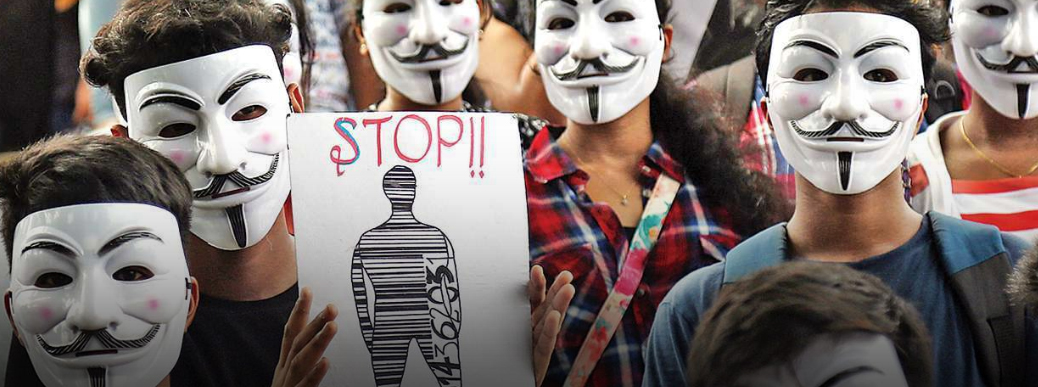
The Trafficking of Persons (Prevention, Protection and Rehabilitation) Bill, 2018 was passed in Lok Sabha by the Minister of Women and Child Development.
Objective:
To prevent trafficking of persons, especially women and children and to provide care, protection and rehabilitation to the victims of trafficking, to prosecute offenders and to create a legal, economic and social environment for the victims.
Background:
Human trafficking is the third largest organized crime after drugs and the arms trade across the globe.
According to the definition of the United Nations – “trafficking is any activity leading to recruitment, transportation, harbouring or receipt of persons, by means of threat or use of force or a position of vulnerability”.
Close to 80% of the human trafficking across the world is done for sexual exploitation and the rest is for bonded labour and India is considered as the hub of this crime in Asia.
Constitutional and Legislative Provision in India:
- Trafficking in Human Beings or Persons is prohibited under the Constitution of India under Article 23 (1)
- Protection of Children from Sexual offences (POCSO) Act, which has come into effect from, 2012 is a special law to protect children from sexual abuse and exploitation.
- The Immoral Traffic (Prevention) Act, 1956 (ITPA) is the premier legislation for prevention of trafficking for commercial sexual exploitation.
- Criminal Law (amendment) Act 2013 has come into force wherein Section 370 of the Indian Penal Code has been substituted with Section 370 and 370A IPC which provide for comprehensive measures to counter the menace of human.
There are other specific legislations enacted relating to trafficking
1. Prohibition of Child Marriage Act, 2006,
2. Bonded Labour System (Abolition) Act, 1976,
3. Child Labour (Prohibition and Regulation) Act, 1986,
4. Transplantation of Human Organs Act, 1994,
5. specific Sections in the IPC - State Governments have also enacted specific legislations to deal with the issue. (e.g. The Punjab Prevention of Human Smuggling Act, 2012)
Key Features:
National Anti-Trafficking Bureau:
- The Bill provides for the establishment of a National Anti-Trafficking Bureau to investigate trafficking cases and implement provisions of the Bill.
- The Bureau will comprise of police officers, and any other officers as required.
- It may take over the investigation of any offence under the Bill, that has been referred to it by two or more states.
- Further, the Bureau may:
(i) request the state government to co-operate in the investigation, or
(ii) transfer the case to the state government for investigation and trial, with approval from the central government.
Functions of the Bureau:
Key functions of the Bureau include:
(i) coordinating and monitoring surveillance along known routes,
(ii) facilitating surveillance, enforcement and preventive steps at source, transit and destination points,
(iii) maintaining coordination between law enforcement agencies and non-governmental organisations and other stakeholders, and
(iv) increasing international cooperation with authorities abroad for intelligence sharing, and mutual legal assistance.
State Anti-Trafficking Officers:
Under the Bill, the state government will appoint a State Nodal Officer.
He will be responsible for:
1. Follow up action under the Bill, as per the instructions of the State Anti-Trafficking Committee,
2. Providing relief and rehabilitation services.
3. The state government will also appoint a Police Nodal Officer at the state and district levels.
4. The state government will also designate Anti-Trafficking Police Officers for each district, to deal with all matters related to trafficking in the district.
Anti-Trafficking Units:
- The Bill also provides for the setting up of Anti-Trafficking Units (ATUs) at the district level.
- ATUs will deal with the prevention, rescue, and protection of victims and witnesses, and for the investigation and prosecution of trafficking offences.
- In districts where an ATU is not functional, this responsibility will be taken up by the local police station.
Anti-Trafficking Relief and Rehabilitation Committee:
- The Bill provides for the establishment of Anti-Trafficking Relief and Rehabilitation Committees (ATCs) at the national, state, and district levels.
- These Committees will be responsible for:
(i) providing compensation to victims,
(ii) repatriation of victims, and (iii) re-integration of victims in society, among others.
Search and Rescue:
- An Anti-Trafficking Police Officer or an ATU can rescue persons, if there is an imminent danger to them.
- They will be produced before a Magistrate or Child Welfare Committee for medical examination.
- The district ATC will provide relief and rehabilitation services to the rescued persons.
Protection and rehabilitation:
- The Bill requires the central or state government to set up Protection Homes.
- These would provide shelter, food, counselling, and medical services to victims.
- Further, the central or state government will maintain Rehabilitation Homes in each district, to provide long-term rehabilitation to the victims.
- Rehabilitation of victims will not be dependent on criminal proceedings being initiated against the accused, or the outcome of the proceedings.
- The central government will also create a Rehabilitation Fund, which will be used to set up these Protection and Rehabilitation Homes.
Time-bound trial:
- The Bill provides for setting up designated courts in each district, which will seek to complete trial within a year.
Penalties:
The Bill specifies the penalties for various offences including for:
1. Trafficking of persons,
2. Promoting trafficking,
3. Disclosing the identity of the victim, and
4. Aggravated trafficking (such as trafficking for bonded labour and begging).
- For example, aggravated trafficking will be punishable with rigorous imprisonment of 10 years up to life imprisonment, along with a minimum fine of one lakh rupees.
- Further, the publishing of any material which may lead to the trafficking of a person will be punishable with imprisonment between five and 10 years, and a fine between Rs 50,000 and one lakh rupees.
Critics:
- This classic raid-rescue-rehabilitation model is grounded in a robust criminal law system with stringent penalties, reversals of burden of proof, provisions for making traffickers less powerful by stripping them of assets and a parallel adjudication machinery consisting of special courts and special public prosecutors.
- It is unclear which agency undertakes the raid and rescue.
- The raid-rescue-rehabilitation model built on the line of Immortal Trafficking of Persons Act(ITPA)which has been a failure.
- Protective homes under the ITPA have perversely resulted in state officials sexually abusing women and colluding with brothel-keepers and pimps.
- Without any financial commitments from the government, the anti-trafficking bill is an empty gesture, meant to appease modern-day abolitionists and secure a better ranking in the Global Slavery Index, moving it away from its current ‘hotspot’ status.
- The past experiences states that there is a lack of inter-Ministerial coordination.
- The bill does not address trafficking of transgenders. Thus the bill remains gender insensitive.
No Confident Motion
12, Jul 2018
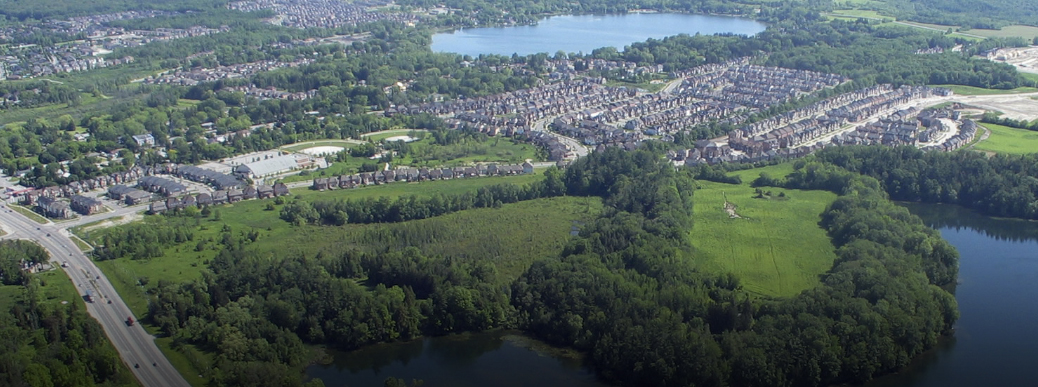
Lok Sabha Speaker accepted the no-confidence motion moved by the Opposition parties against the Modi-led NDA government.
What is a no-confidence motion?
- A government can function only when it has majority support in the Lok Sabha.
- The party can remain in power when it shows its strength through a floor test which is primarily taken to know whether the executive enjoys the confidence of the legislature.
- If any member of the House feels that the government in power does not have a majority then he/she can move a no-confidence motion.
- If the motion is accepted, then the party in power has to prove its majority in the House. The member need not give a reason for moving the no-confidence motion.
How it works?
- A no-confidence motion can be moved by any member of the House.
- It can be moved only in the Lok Sabha and not Rajya Sabha.
- Rule 198 of the Rules of Procedure and conduct of Lok Sabha specifies the procedure for moving a no-confidence motion.
- The member has to give a written notice of the motion before 10 am which will be read out by the Speaker in the House.
- A minimum of 50 members have to accept the motion and accordingly, the Speaker will announce the date for discussion for the motion.
- The allotted date has to be within 10 days from the day the motion is accepted. Otherwise, the motion fails and the member who moved the motion will be informed about it.
- If the government is not able to prove its majority in the House, then the government of the day has to resign.
Privilege Motion
12, Jul 2018
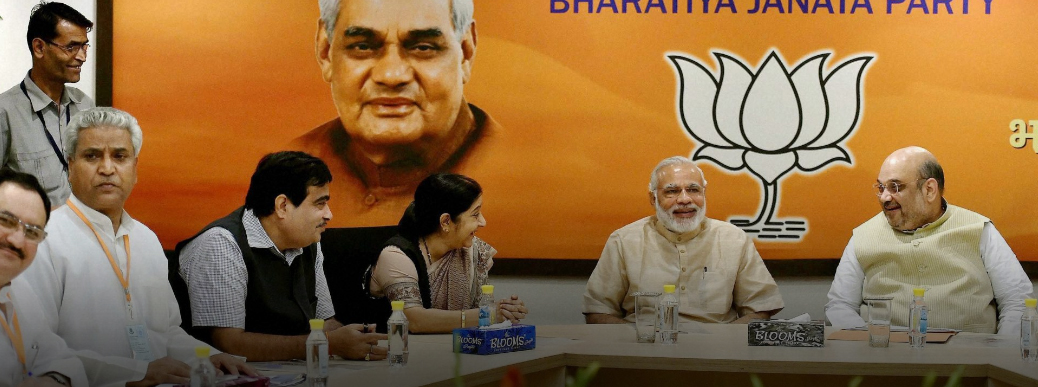
- It is moved by a member when he feels that a minister has committed a breach of privilege of the House or one or more of its members by withholding facts of a case or by giving wrong or distorted facts.
- Privilege motion is concerned with the breach of parliamentary privileges by a minister.
- It can be moved against an individual minister or a group of ministers or the entire council of ministers.
- If it is passed in the Lok Sabha, the council of ministers need not resign from the office.
Background:
- As per the Constitutional scheme of things, all members of the Parliament enjoy certain rights and immunities – this is also referred to as Parliamentary Privilege which is enjoyed both by the Parliament and the members in their individual capacity.
- This provision has been made in the Parliament so that they can discharge their functions smoothly.
- There is no separate law for the privilege enjoyed by the Parliament and its members.
- The Constitution has left it to the Parliament to define the powers, privileges and immunities to be enjoyed by it and the members.
Parliamentary report on Watershed Management
08, Jul 2018

Why in News?
- Parliamentary Standing committee has submitted a report Highlighting the delays in implementing watershed development projects under PMKSY.
- It has been noted that Lethargic response from the government and lock of implementation to be the cause.
What is Watershed Development and why it is important?
- It is a area of land that feeds all the water running under it and draining off it into a body of water.
-
Example:
The Place we live is a watershed which drains all the water to nearby lake/rivers. And in turn combining all such rivers and lakes which ultimately drains into the sea forms a watershed.
- Watershed management or development refers to management and conservation of surf ace and ground water resources, which includes conservation, regeneration and Judicious use of all resources.
-
Example:
Even afforestation and reforestation is an measure to protect watersheds building check dams, percolation dams etc.
Importance:
- It recharges groundwater table.
- Restores water for drinking and other human proposes
- Protects bio-diversity of a region, it managed properly can restore biodiversity
- Restores soil Fertility and helps in soil conservation
- Helps fight climate change, and promotes sustainable agriculture.
Why Delay in Implementation?
- The Project works on an convergence basis which relies on synergy between difference ministries and agencies like Ministry of water resource and management, Ministry of Agriculture etc.
- Since the Government departments works individually, device steps are not taken.
- The Benefits are not sustainable for longer period for example after the water able is restored the farmer’s opt for water intensive crops like Sugarcane which results in depletion.
- Till 2016 the founding pattern was 90:10 with central government taking former value and state government letter. Presently the ration is changed to 60:40 moreover projects takes 3 to 8 Years for completion and requires even more time to show visible results.
- Detailed Project Report for 1,774 projects had not been prepared. It also noted lack of quality in preparation of Detailed Project Report, such as not taking into account challenges of a geographical location, and ways to overcome them.
Way Ahead:
- Expeditions efforts should be made to complete the project. 53% net sown area in our country is rainfed, and watershed component of PMKSY, According to its guidelines, should complete within 47 hrs. but between 2009-15 out of 8,214 Projects not even single project has reached closure.
- Budgetary allocation should be commensurate to the requirement of the project sanctioned.
- Better co-ordination with the states and rollback to old funding model of 90:10 can help.
- Credible government agencies with substantial expertise should be involved in preparation of project report taking into account different Challenges.
- Third party evaluation for evaluation for implementation and supervising the work will give better insight about the work.
- Expediting the selection of third Party will expedite the implementation.
About PMKSY:
- Objective of the PMKSY is to achieve convergence of investments in irrigation at the field level, expand cultivable area under assured irrigation (Har Khet ko pani).
- Improve on-farm water use efficiency to reduce wastage of water, enhance the adoption of precision-irrigation and other water saving technologies (More crop per drop).
- Enhance recharge of aquifers and introduce sustainable water conservation practices by exploring the feasibility of reusing treated municipal based water for peri-urban agriculture and attract greater private investment in precision irrigation system
NALSA
05, Jul 2018
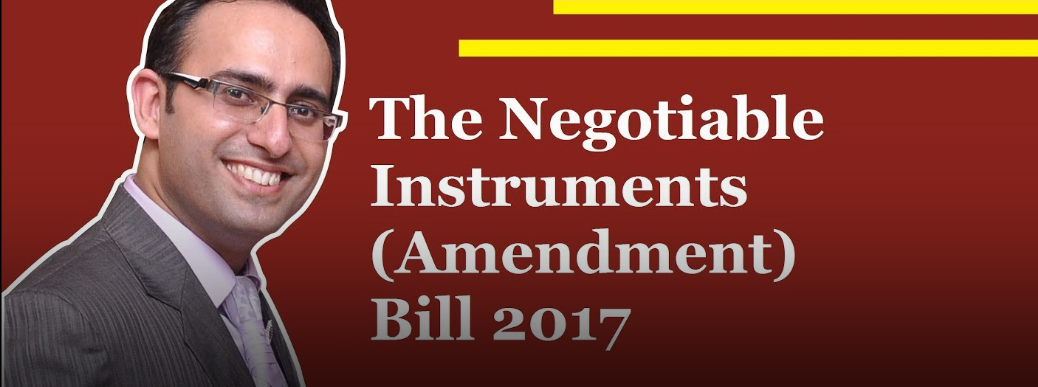
News:
Recently, National Legal Service authority has suggested to extend the scheme to provide compensation for victim’s of rape and sexual harassment to the child victims to the Supreme court.
About National Legal Service Authority (NALSA):
- It has been Established with an aim to full fill the DPSP article 39A which provides for free legal services to the poor and weather sections of the society.
- And to fulfil the Preambular promise of providing Justice to all the Citizens, Justice, Social Economic and Political.
- It is constituted under Lega Service act, 1987 to provide free Legal service to weaker section of the society.
About NIRBAYA Fund:
- It is an 10 Billion corpus announced by the government of India in its 2013 budget to support initiatives by the government and NGO working towards protecting the dignity and ensuring safety of women in India.
- Various ministries from ministry of women and child welfare to Ministry of Railways will work on it to spend it on empowering women.






